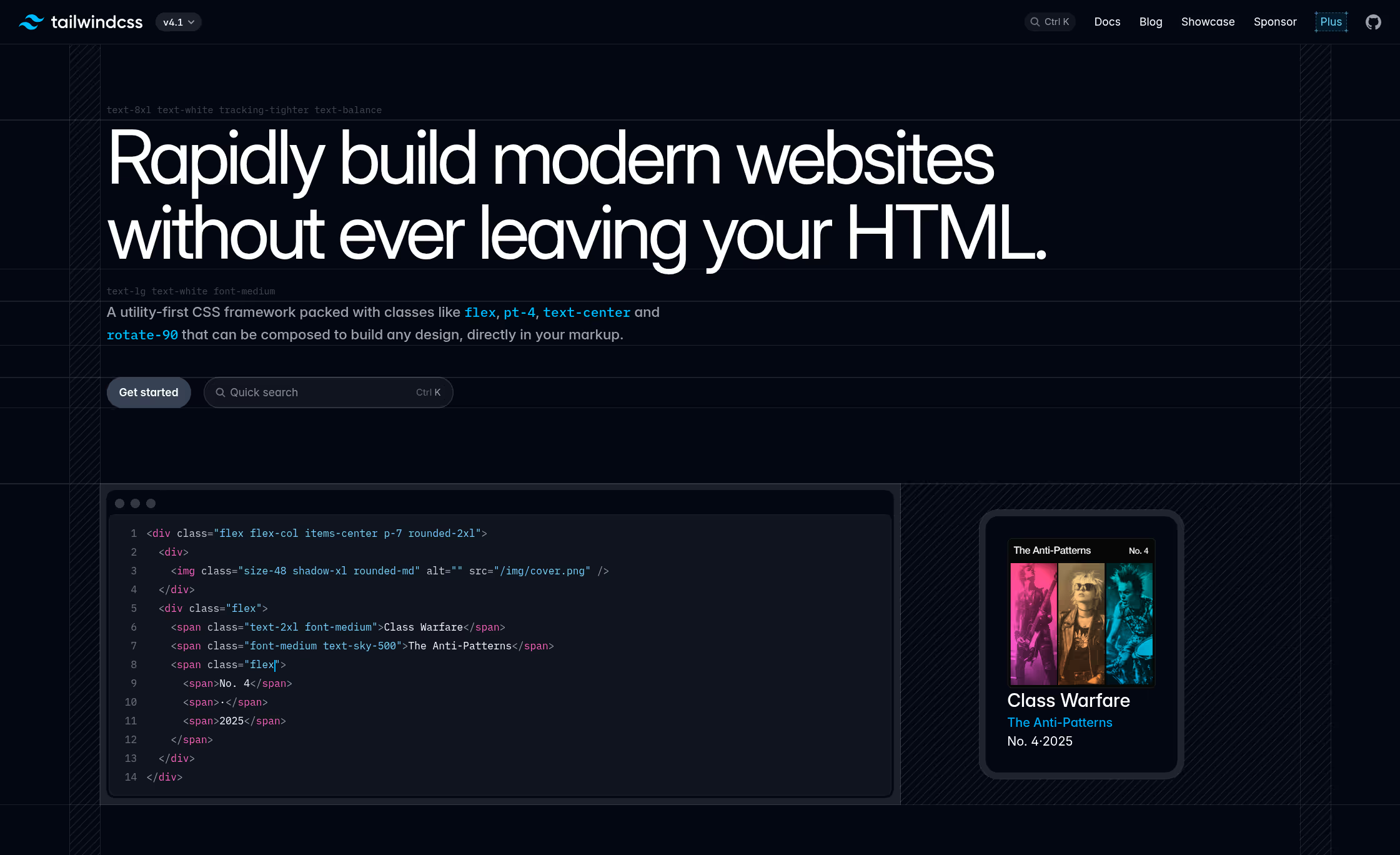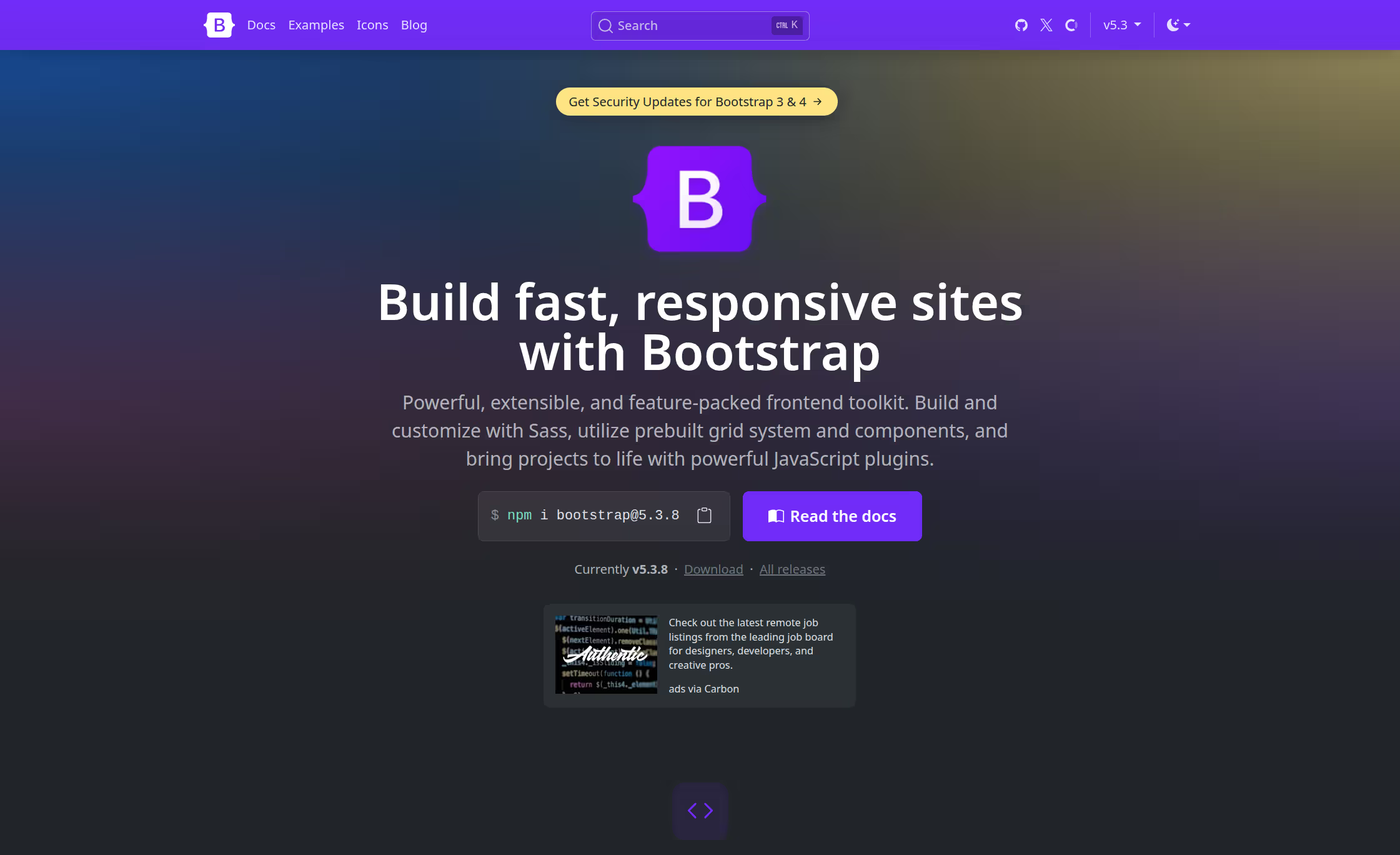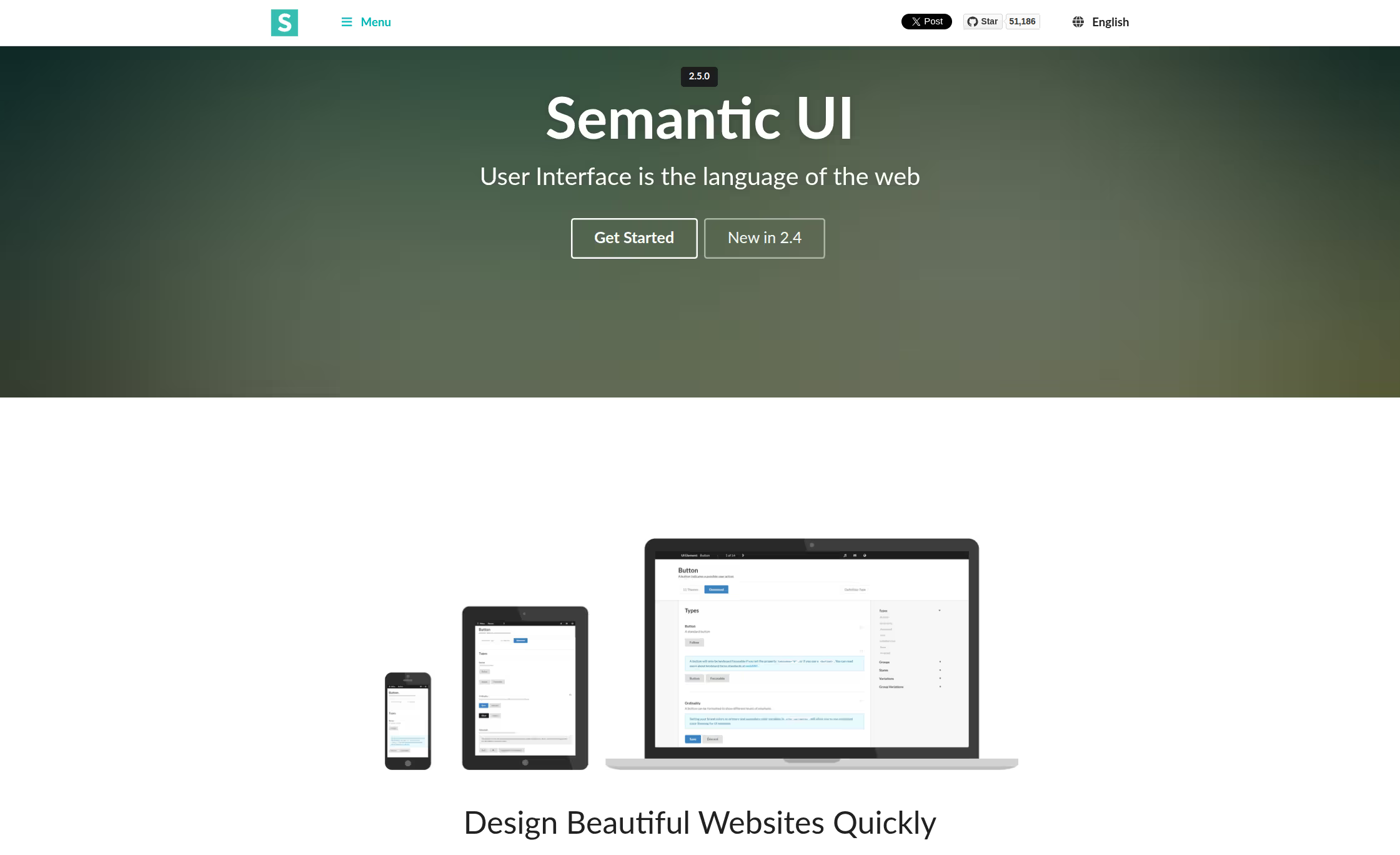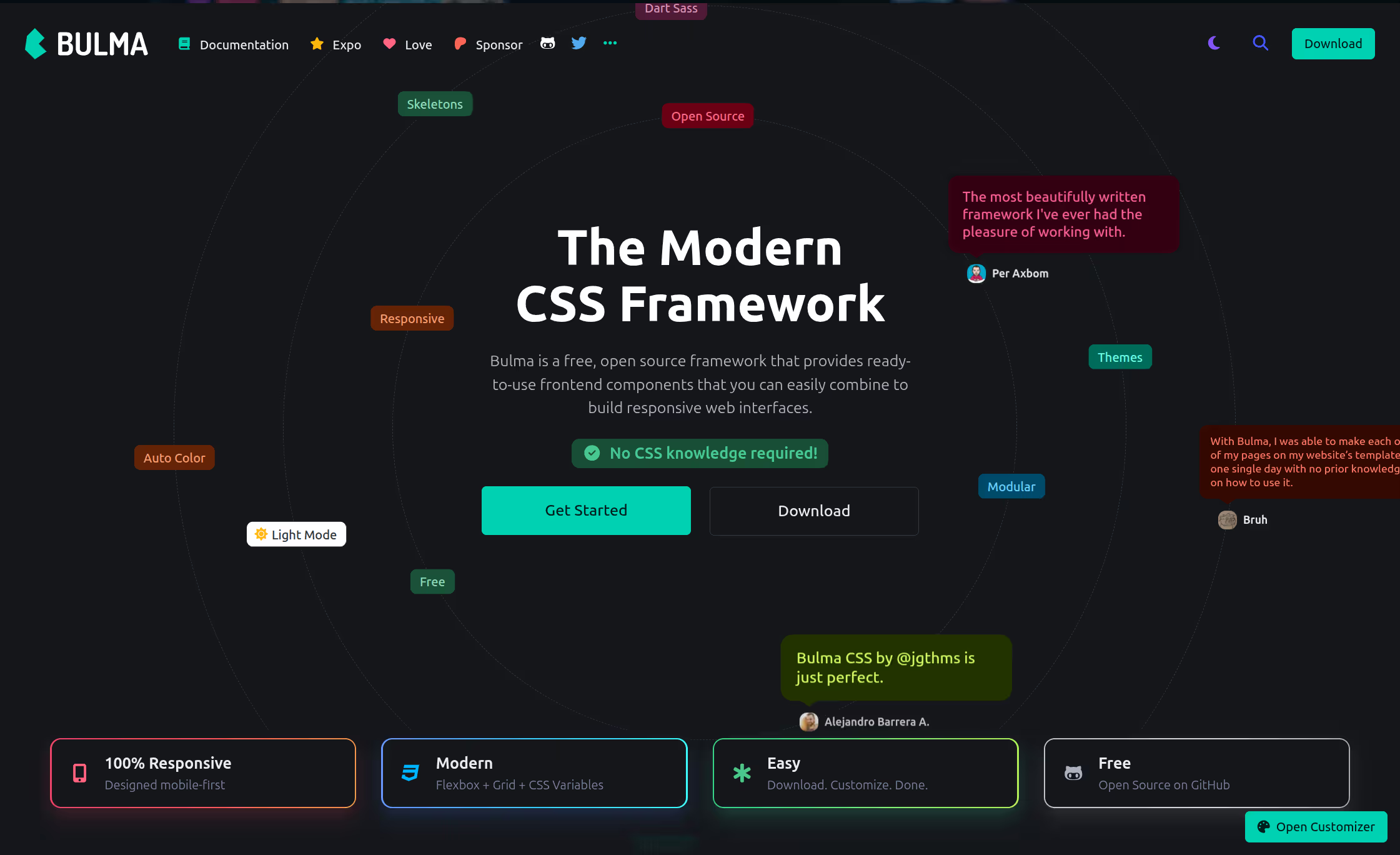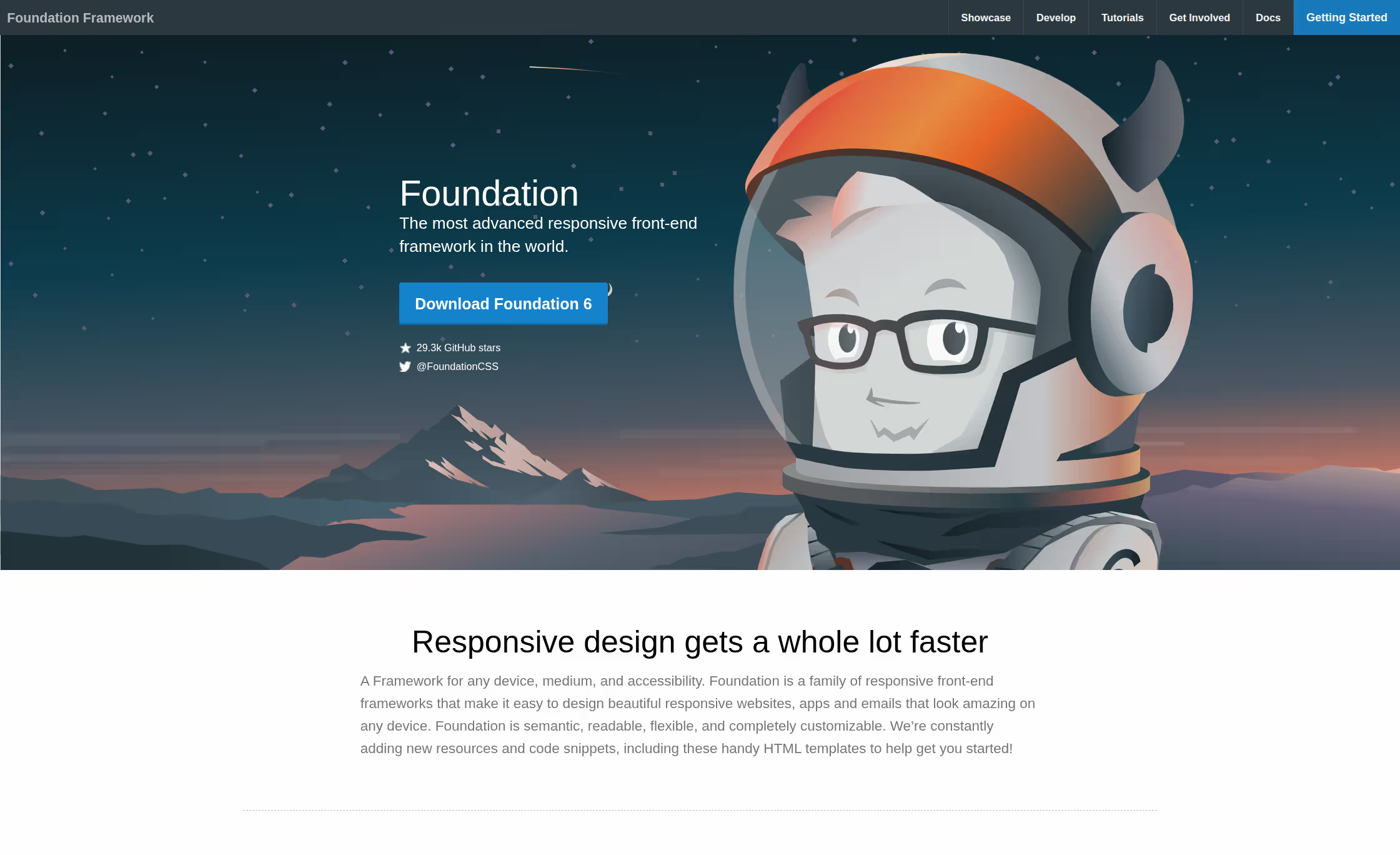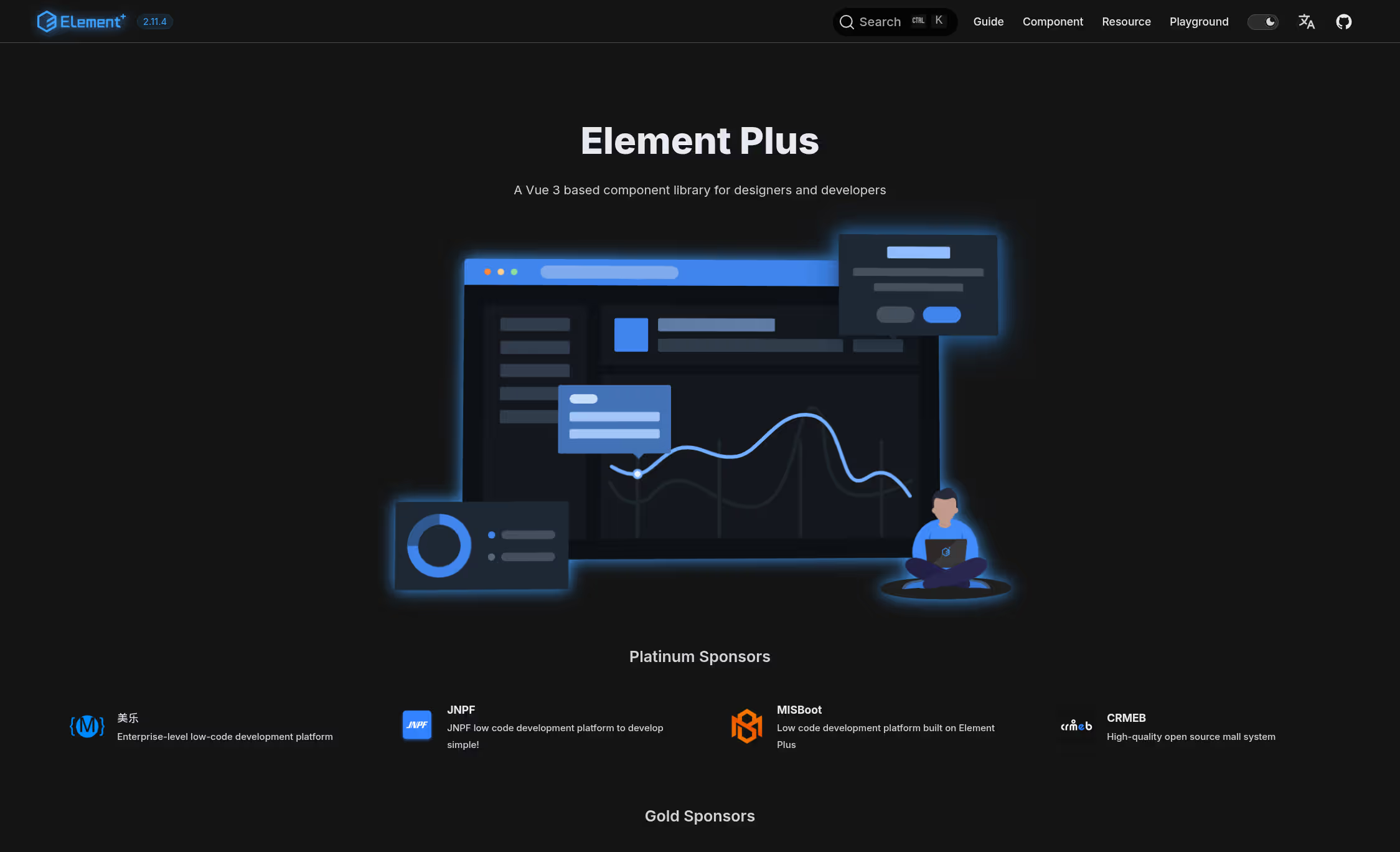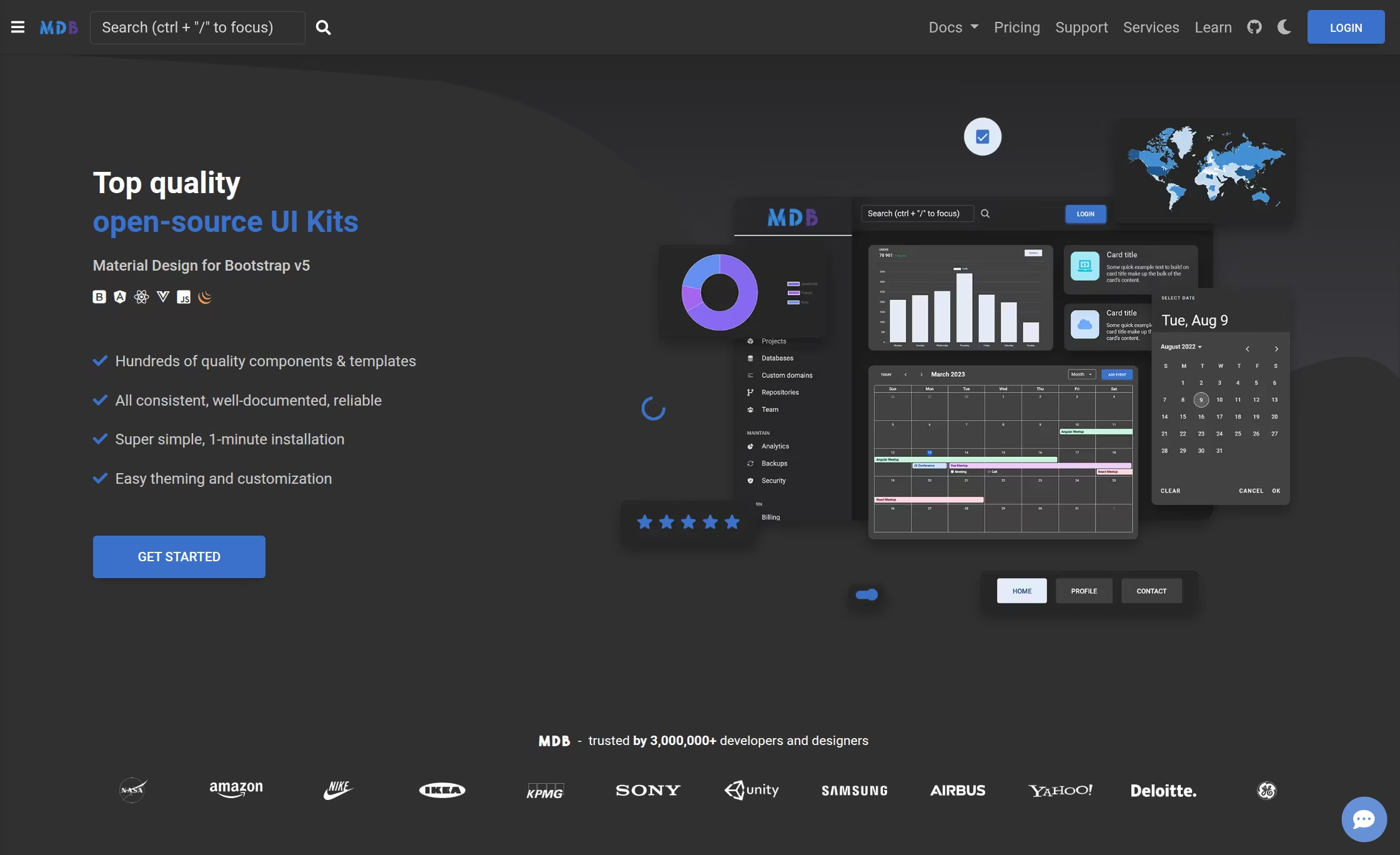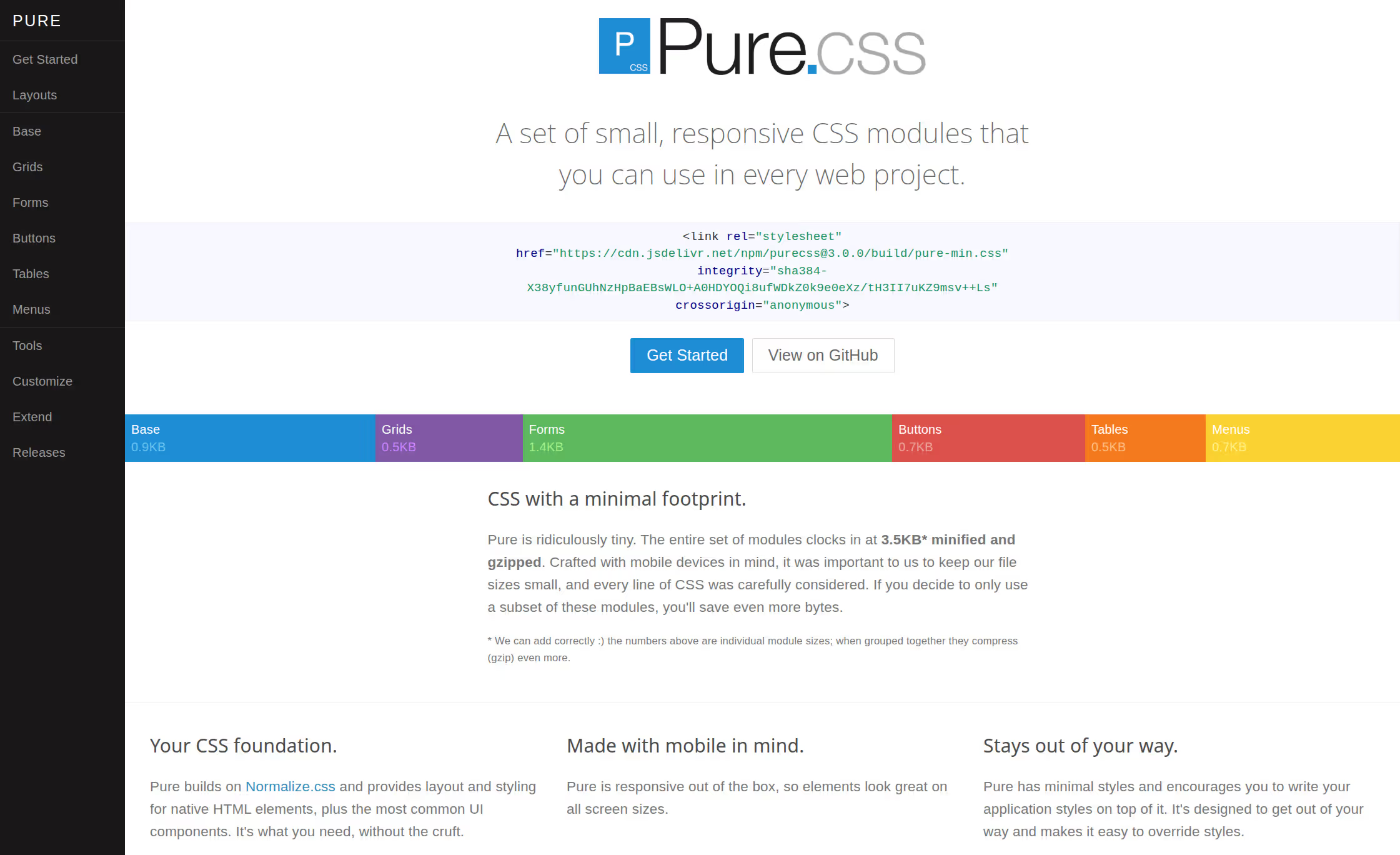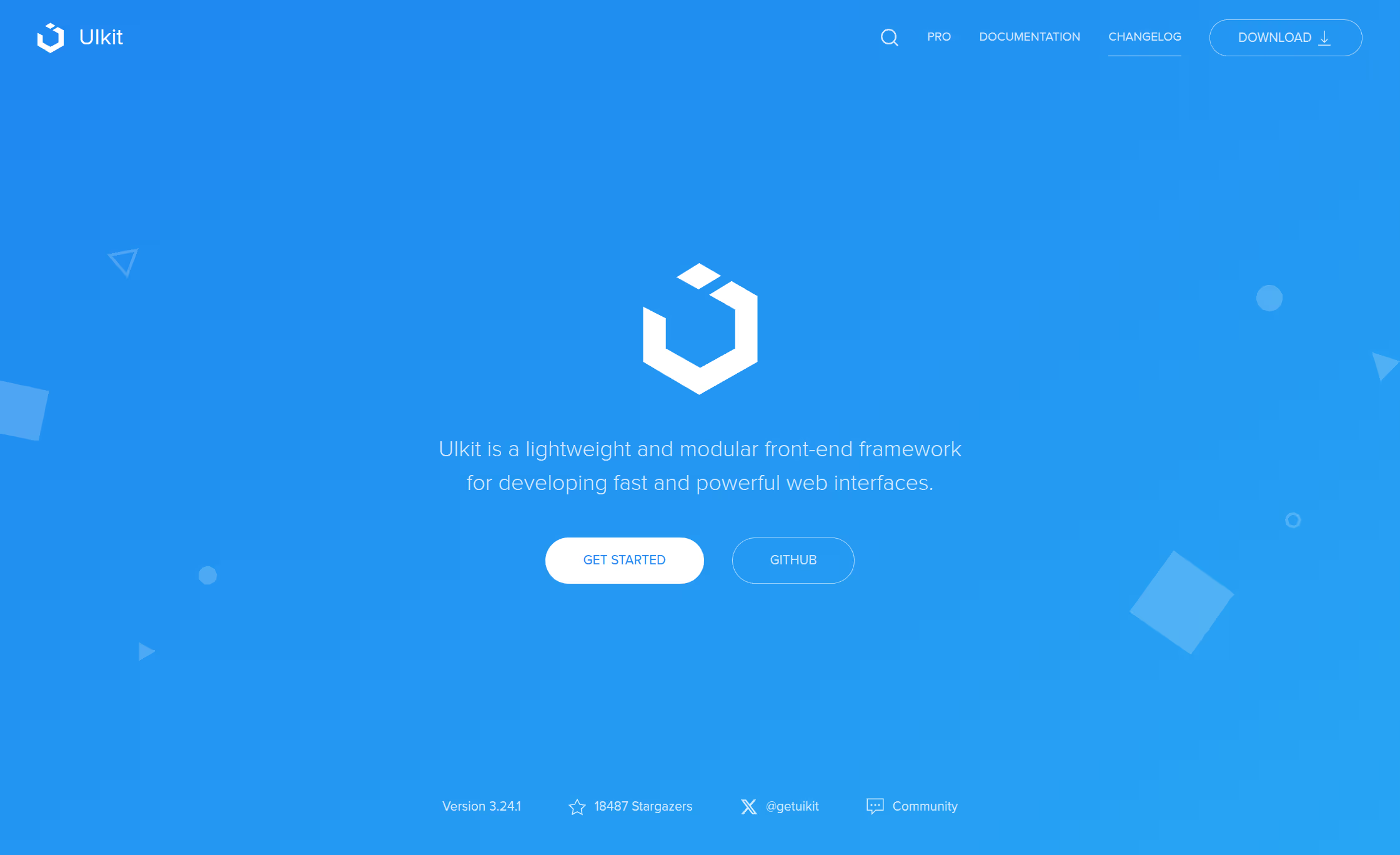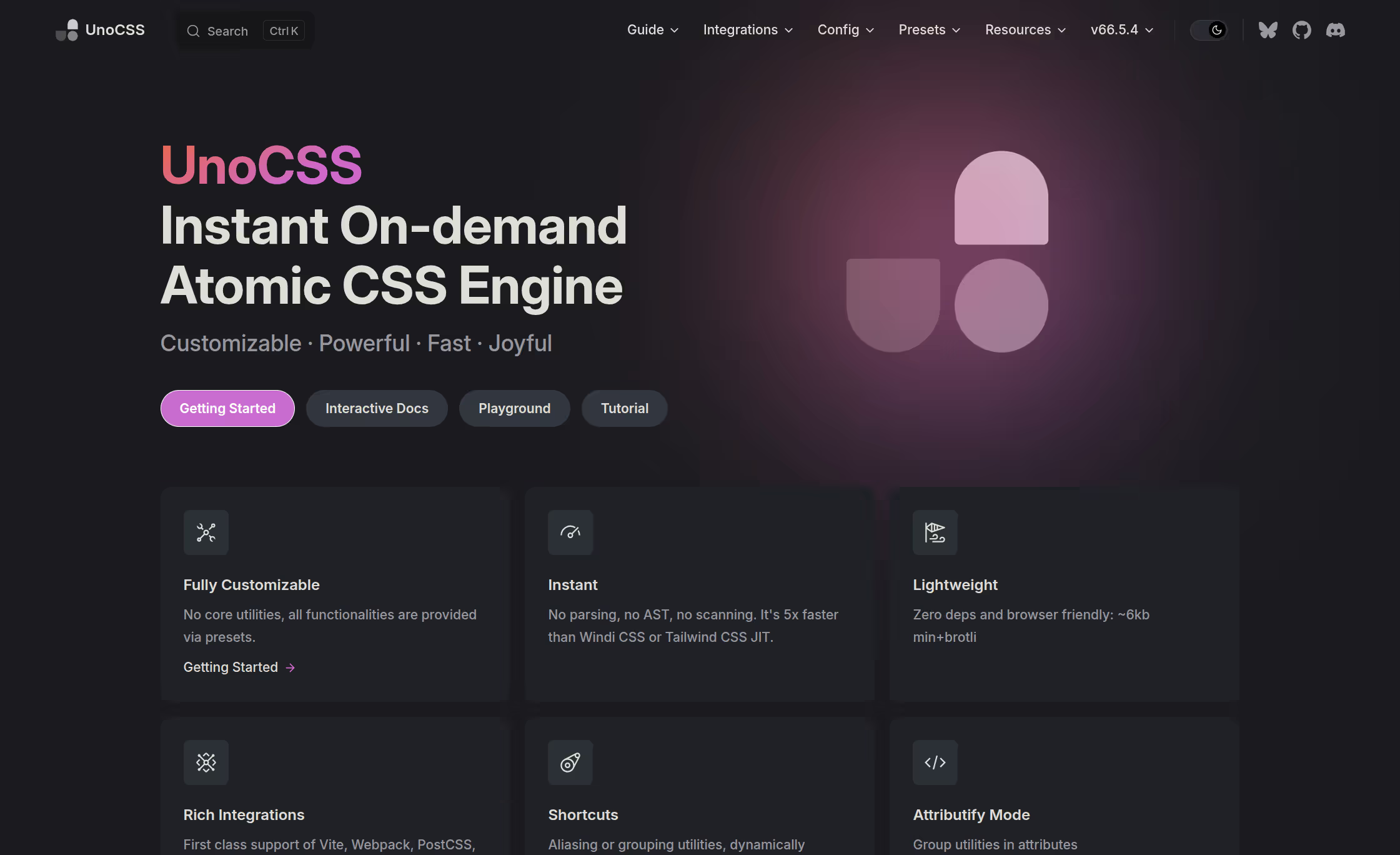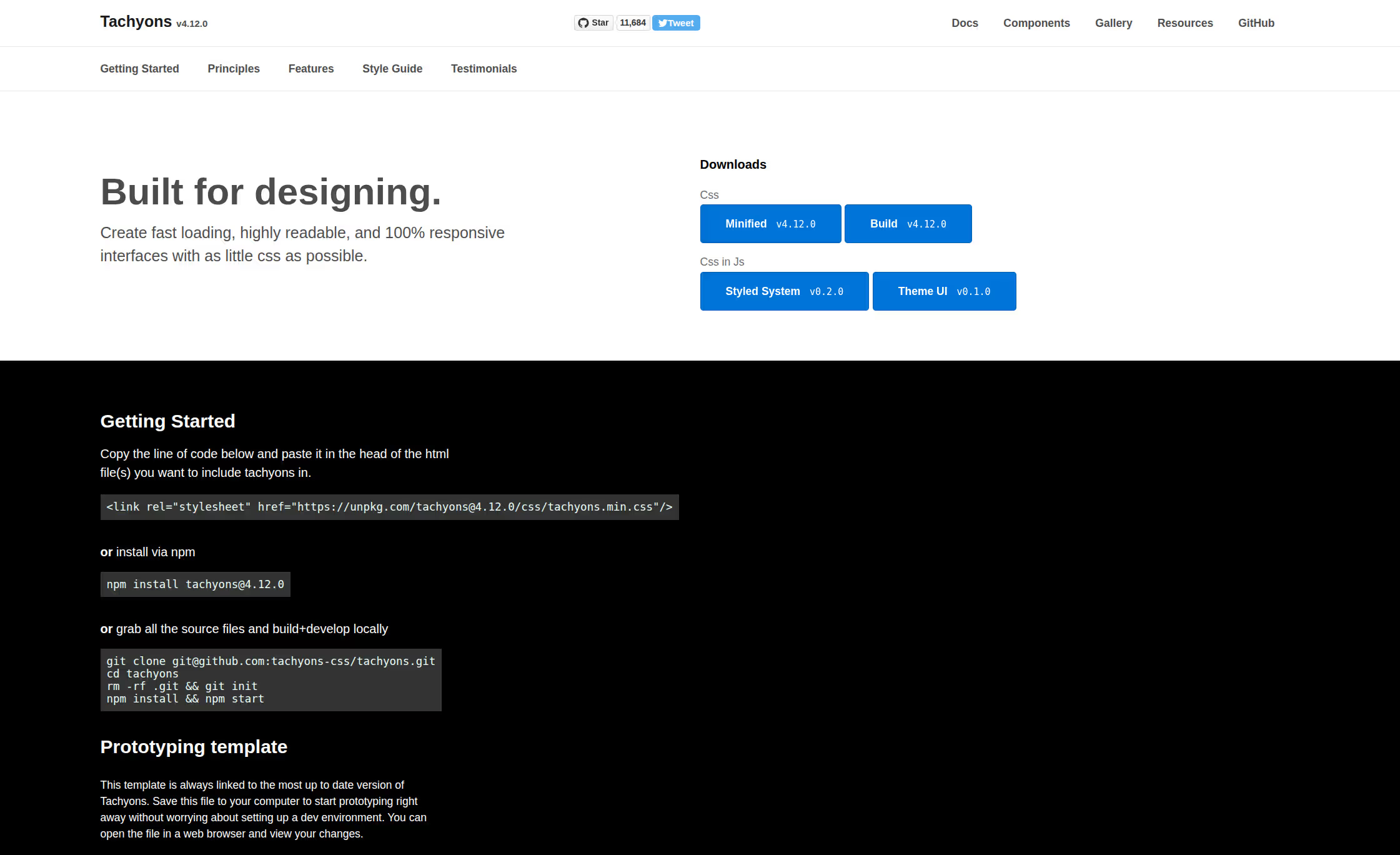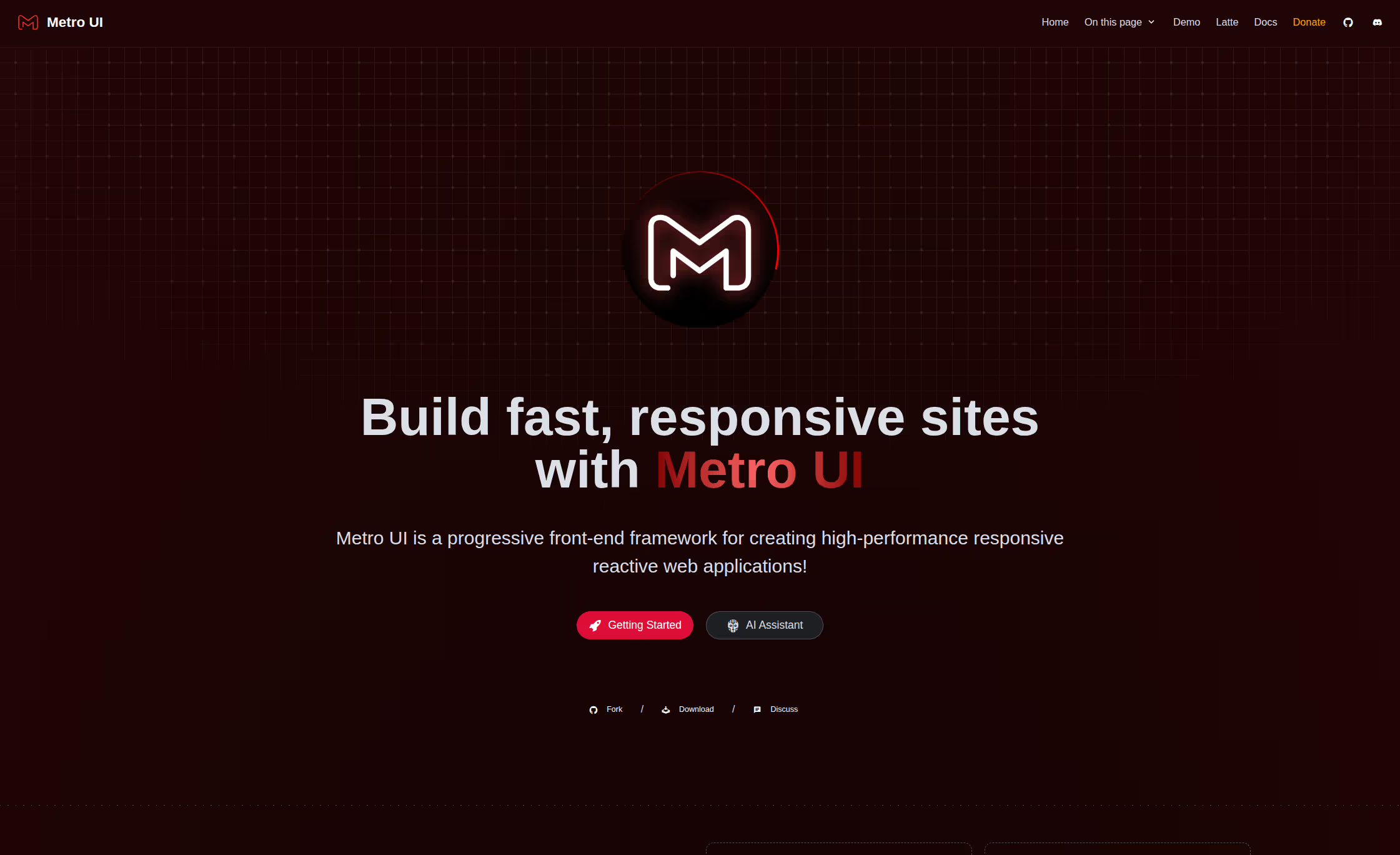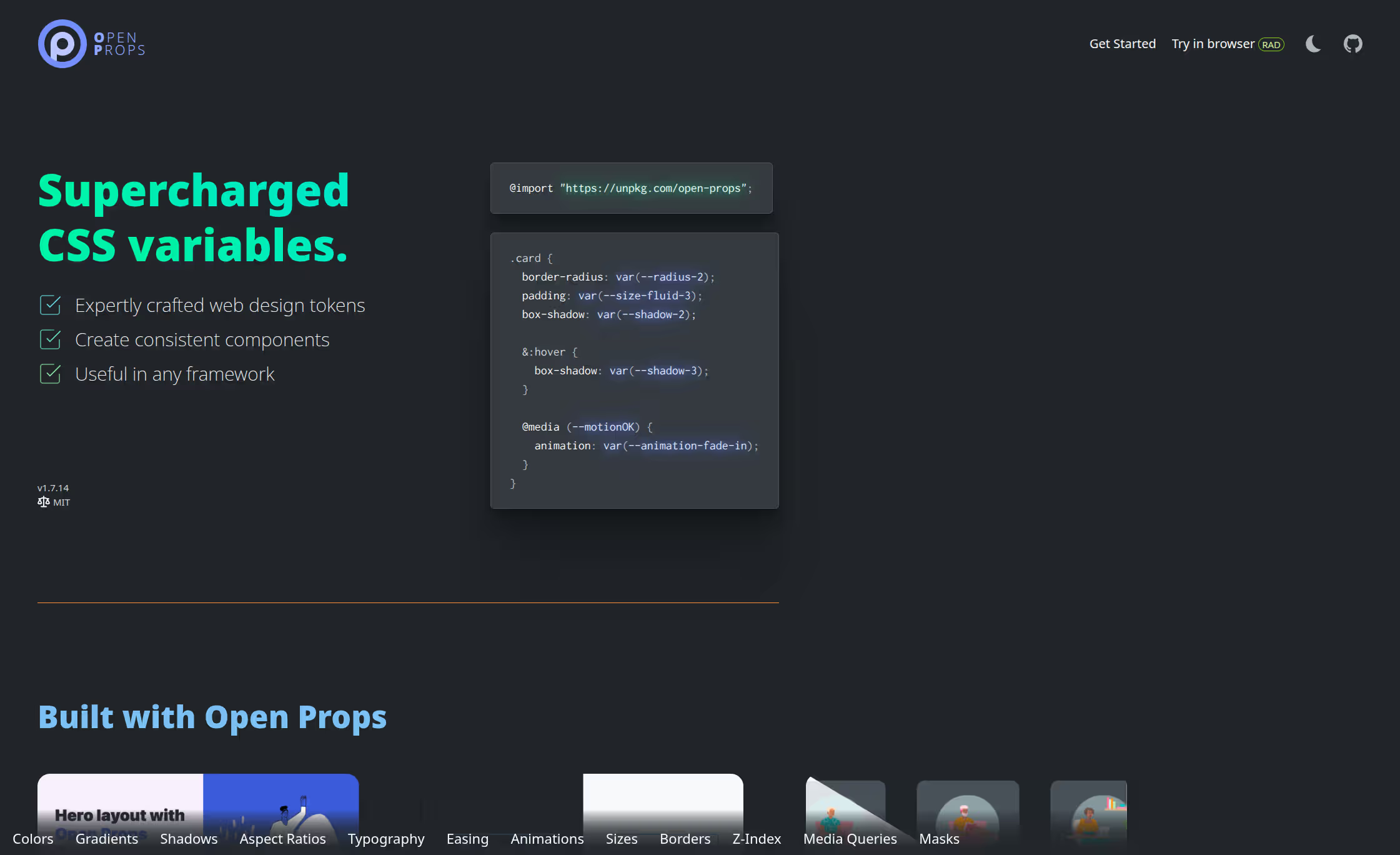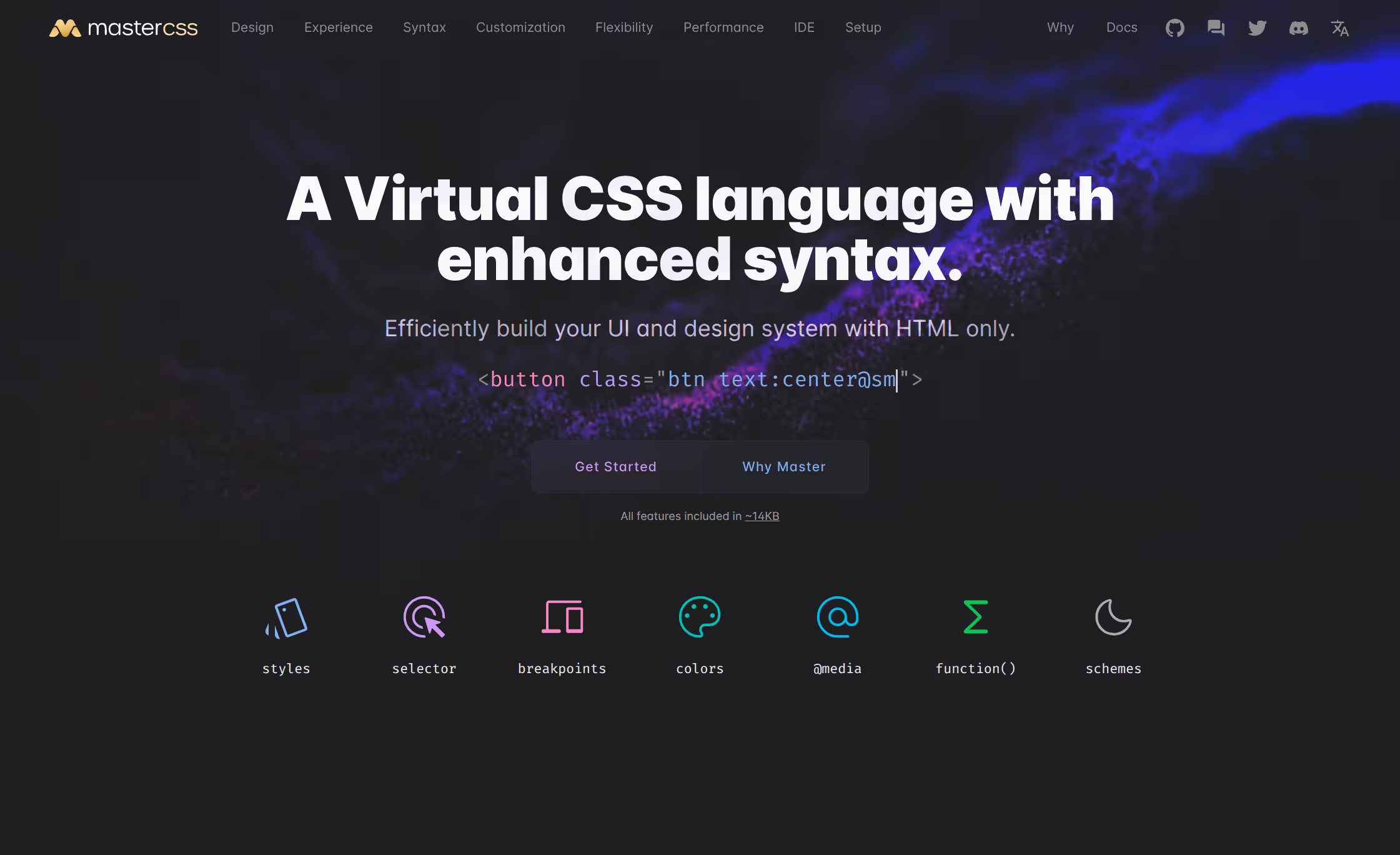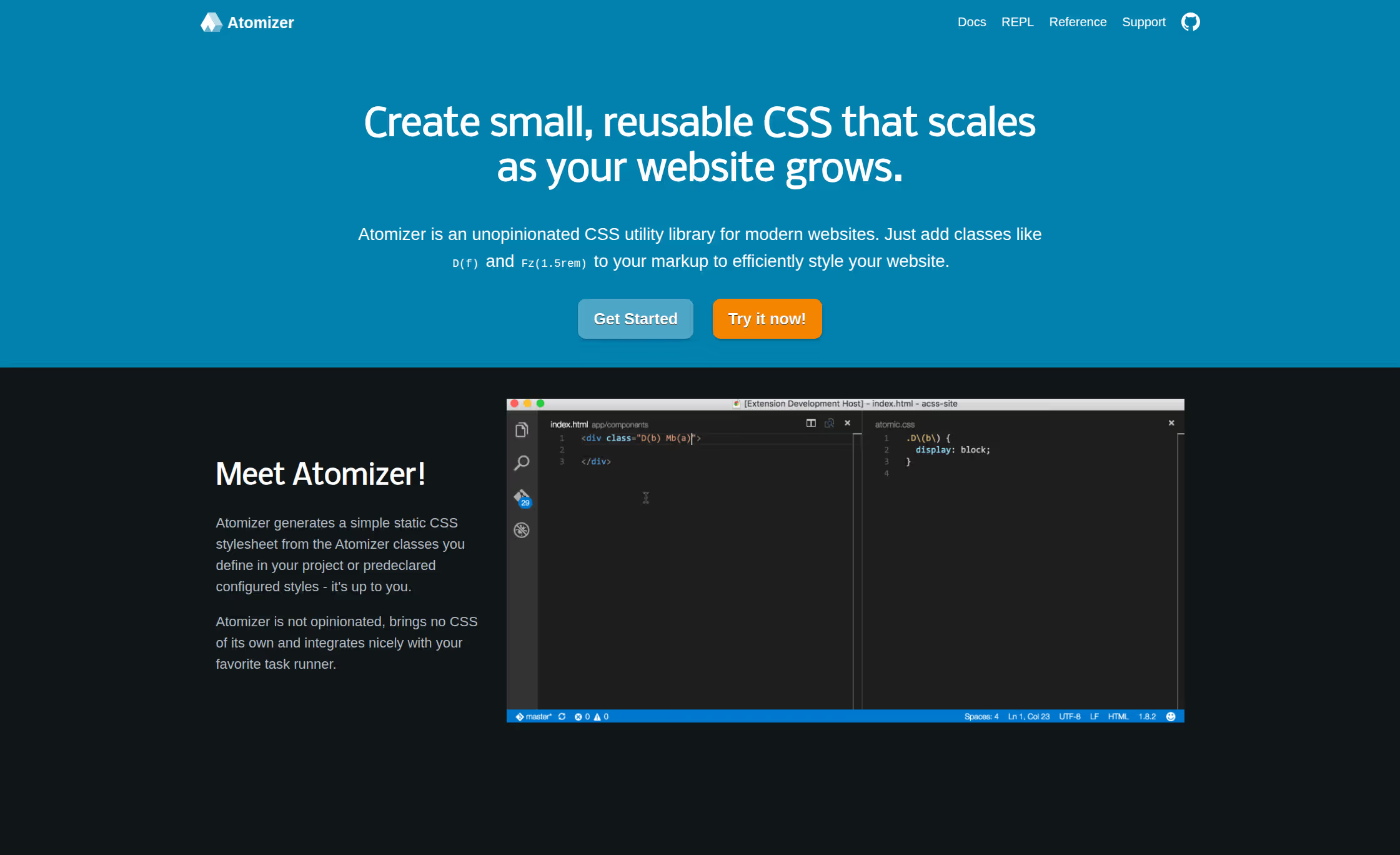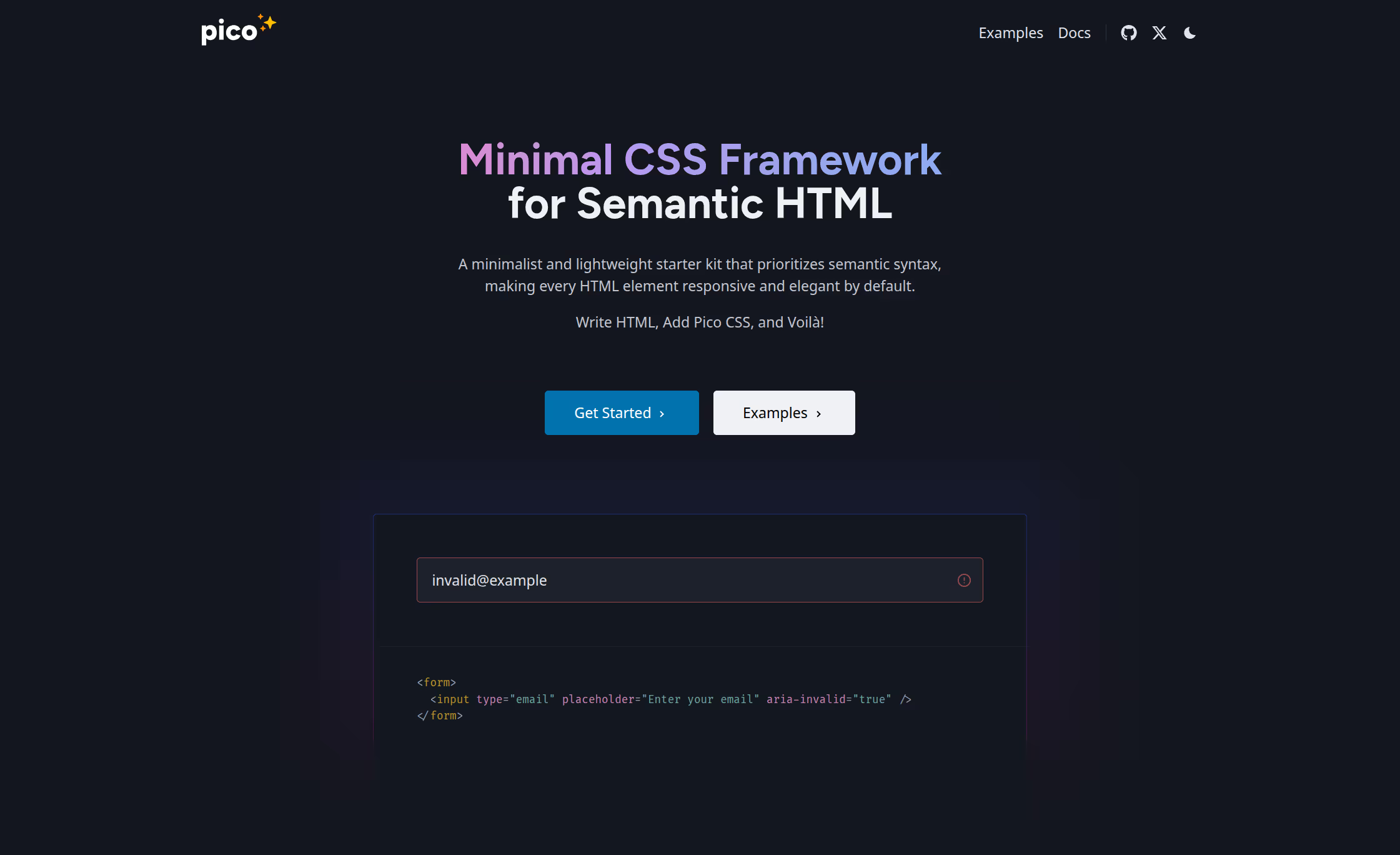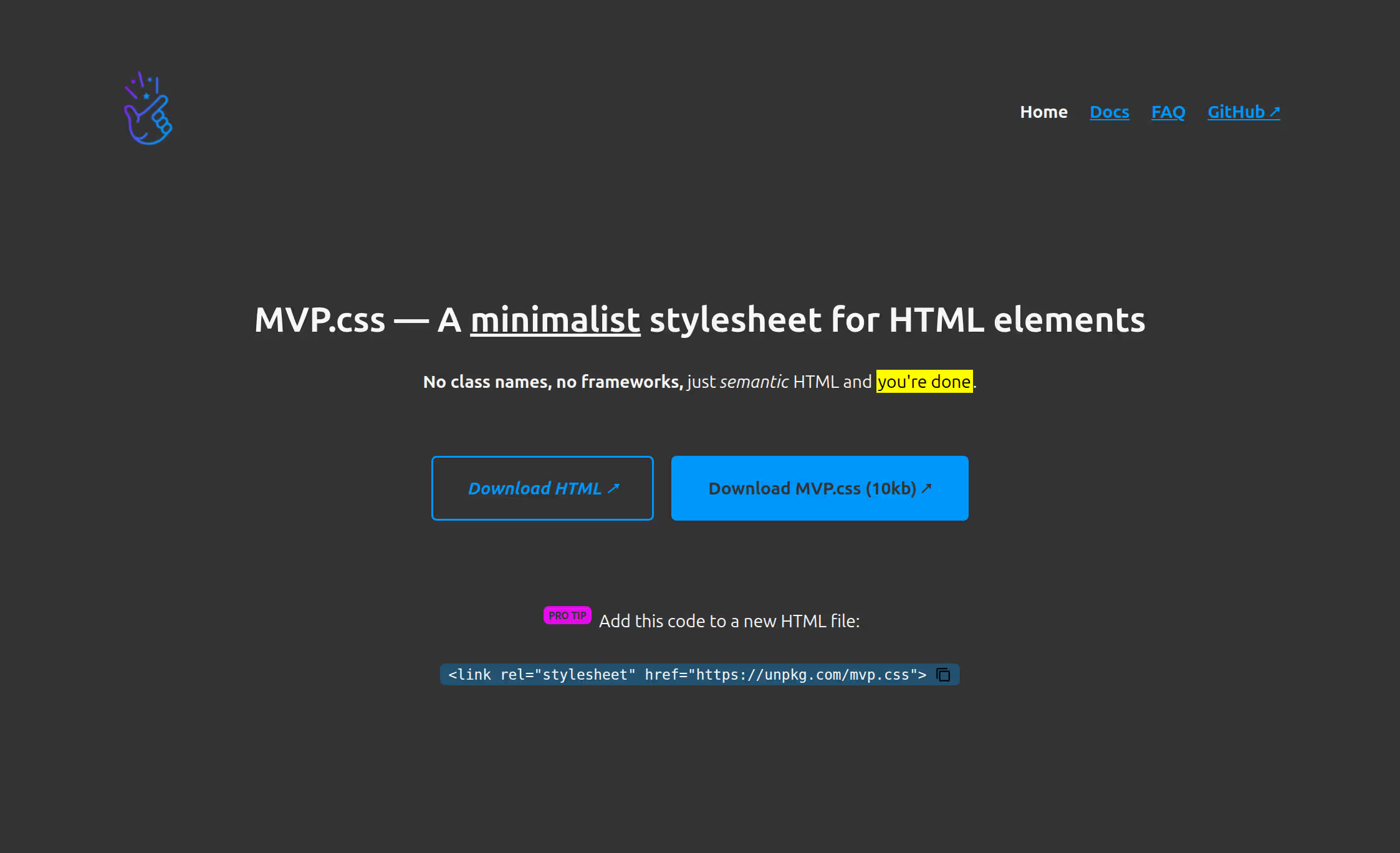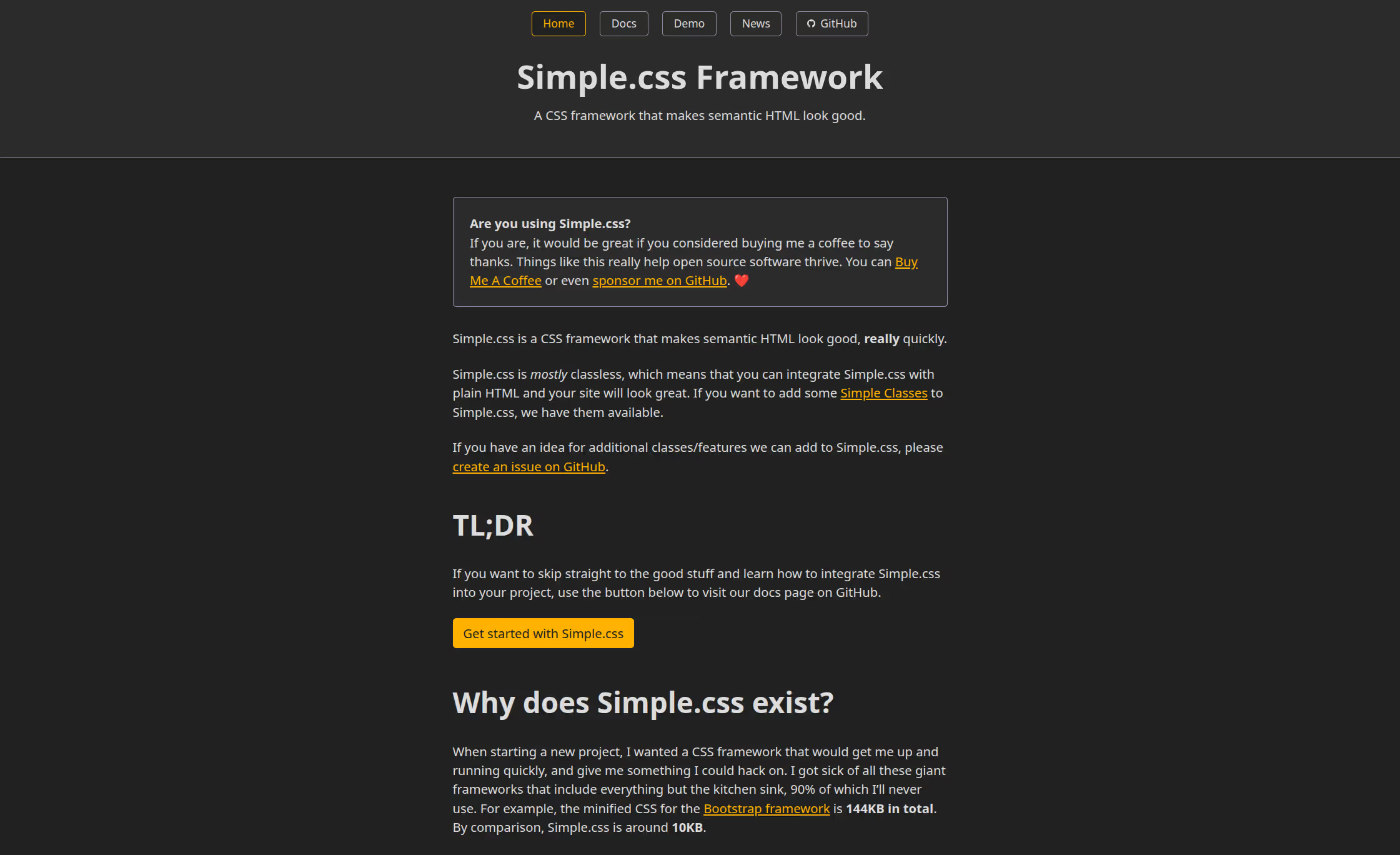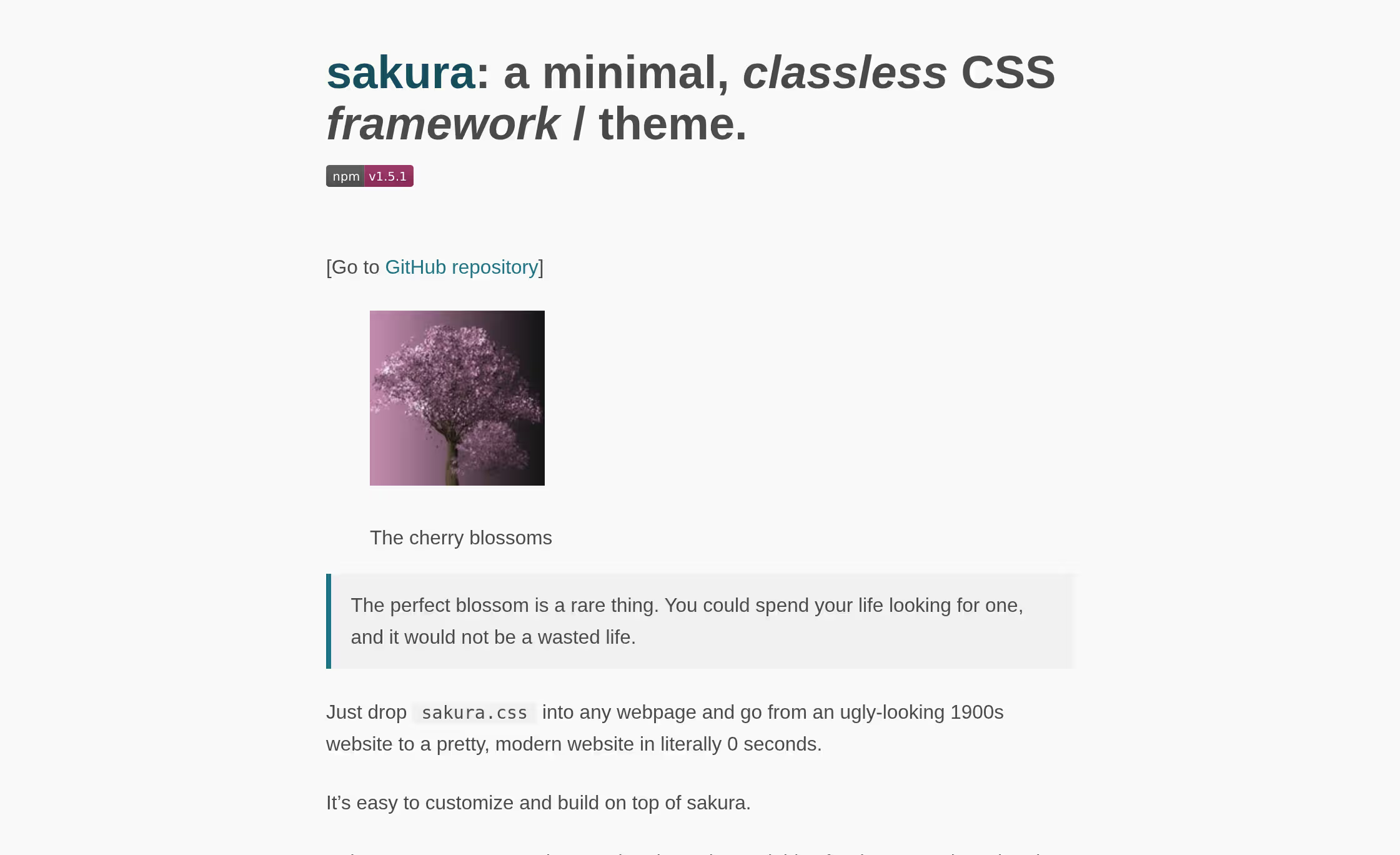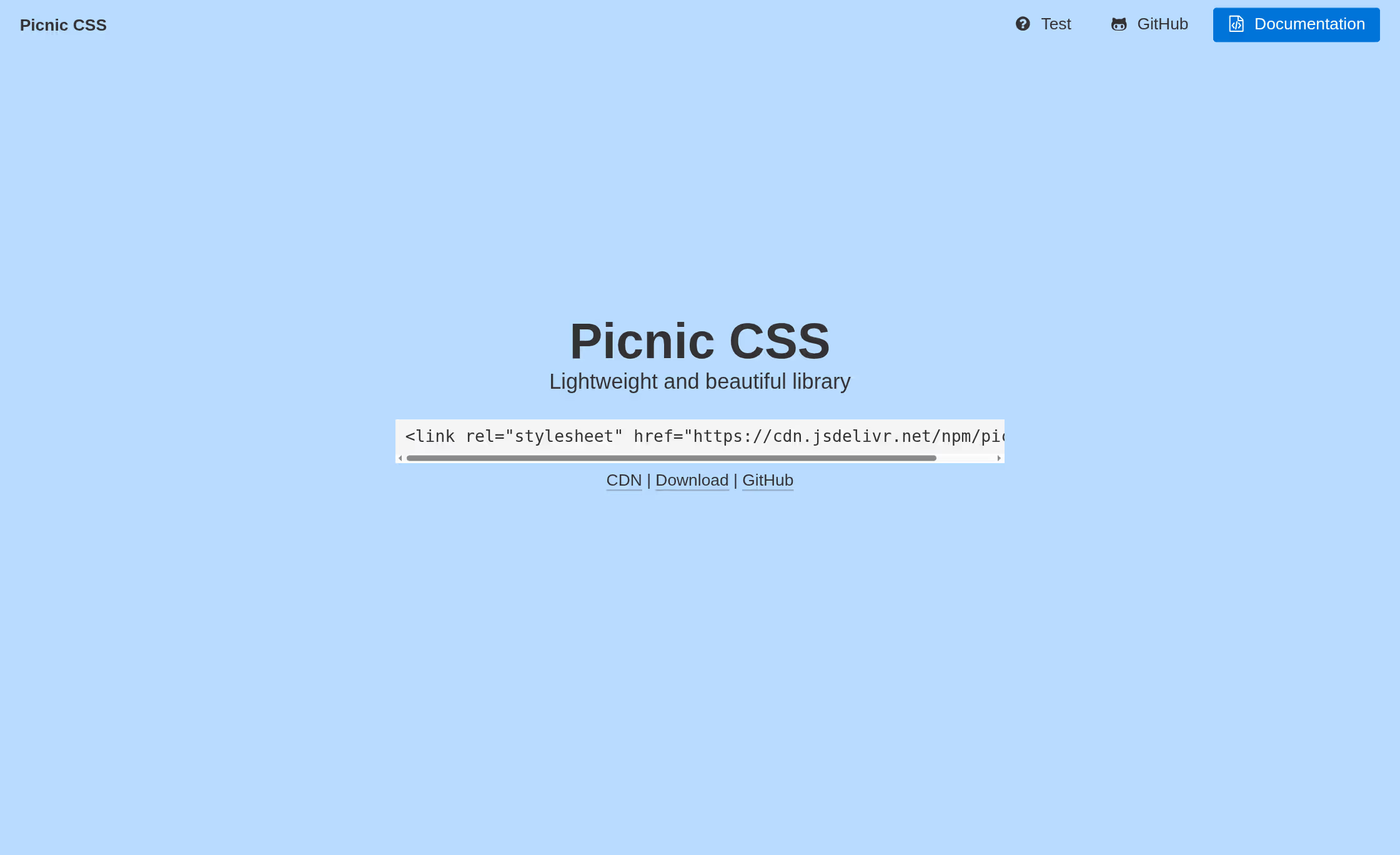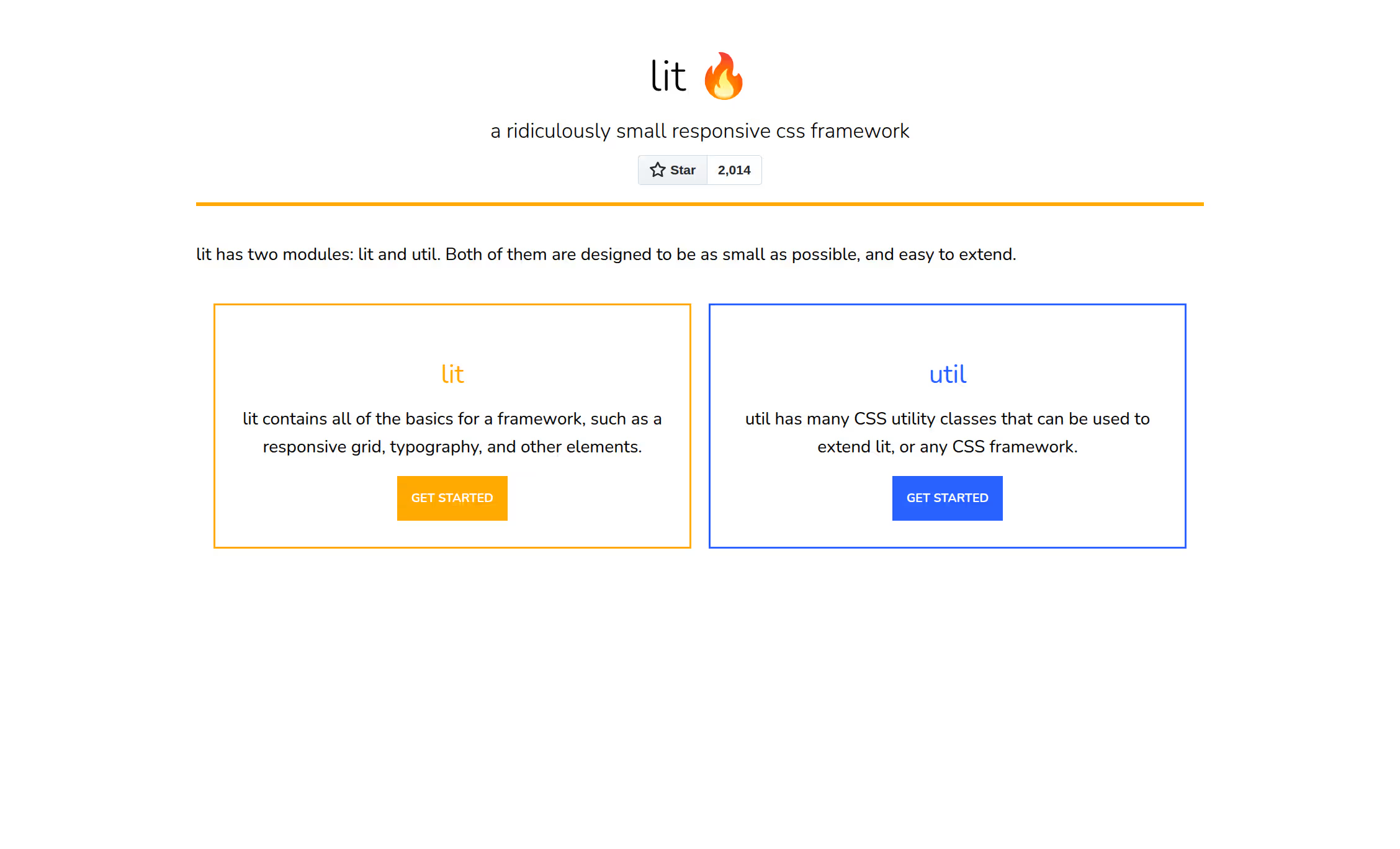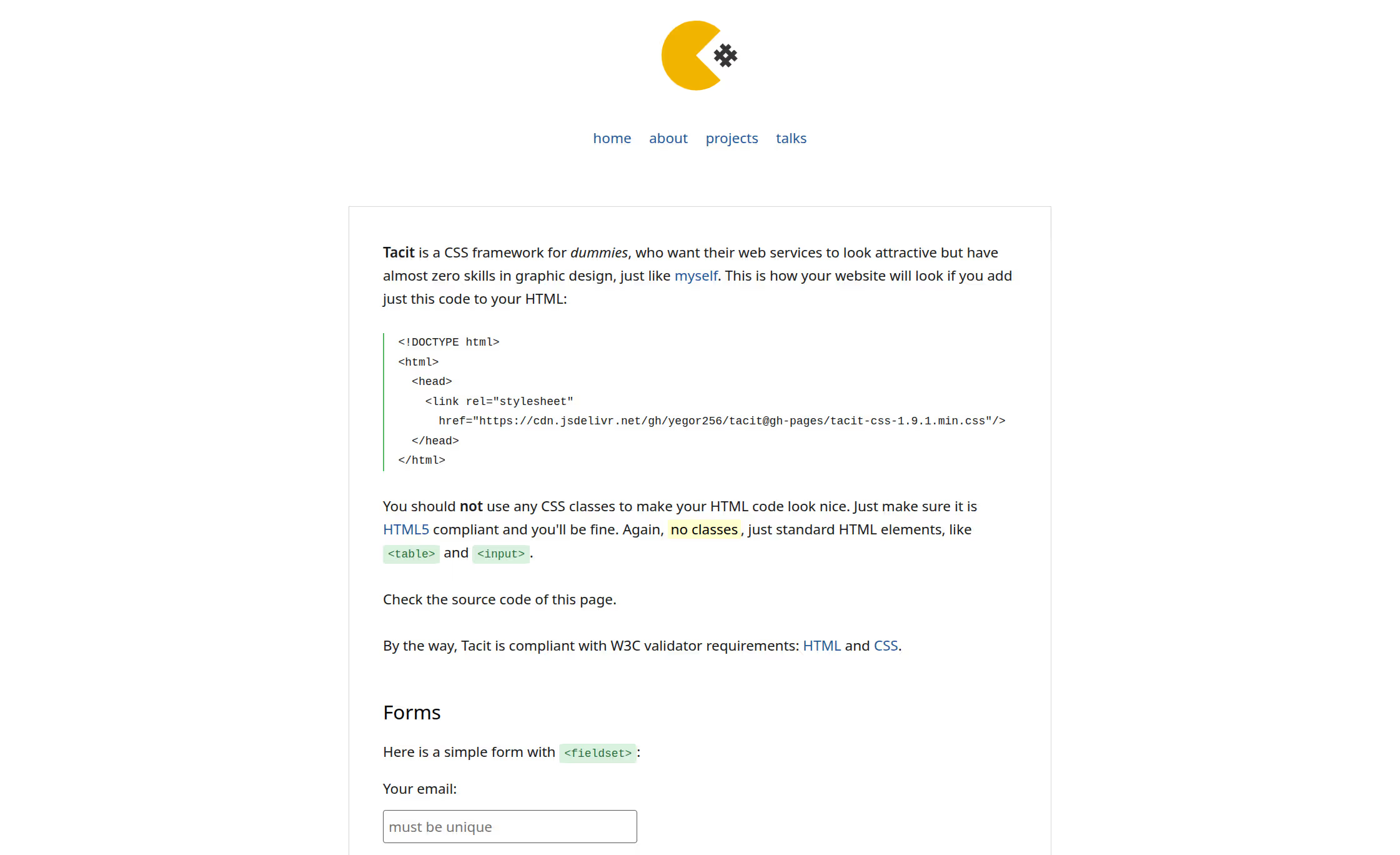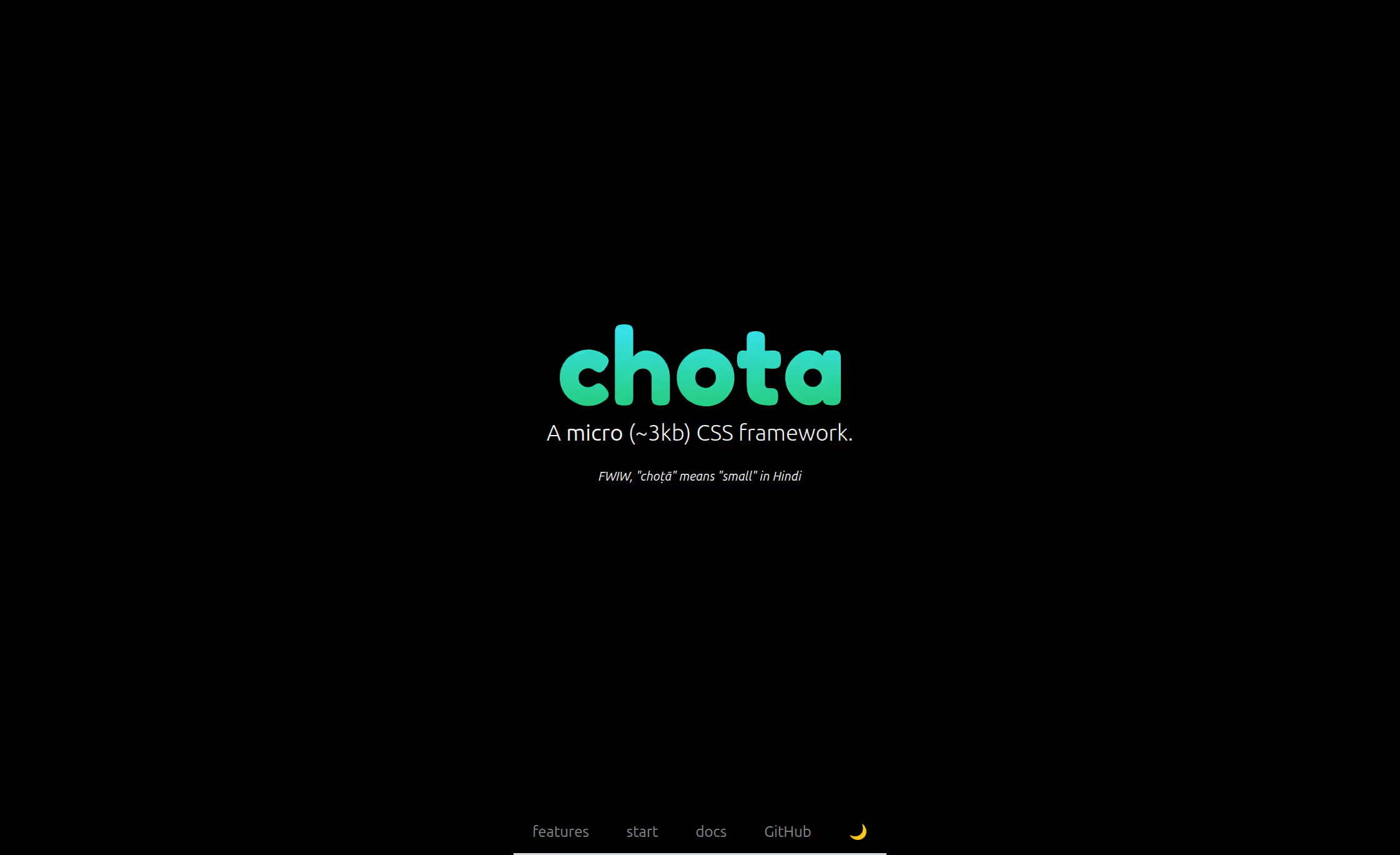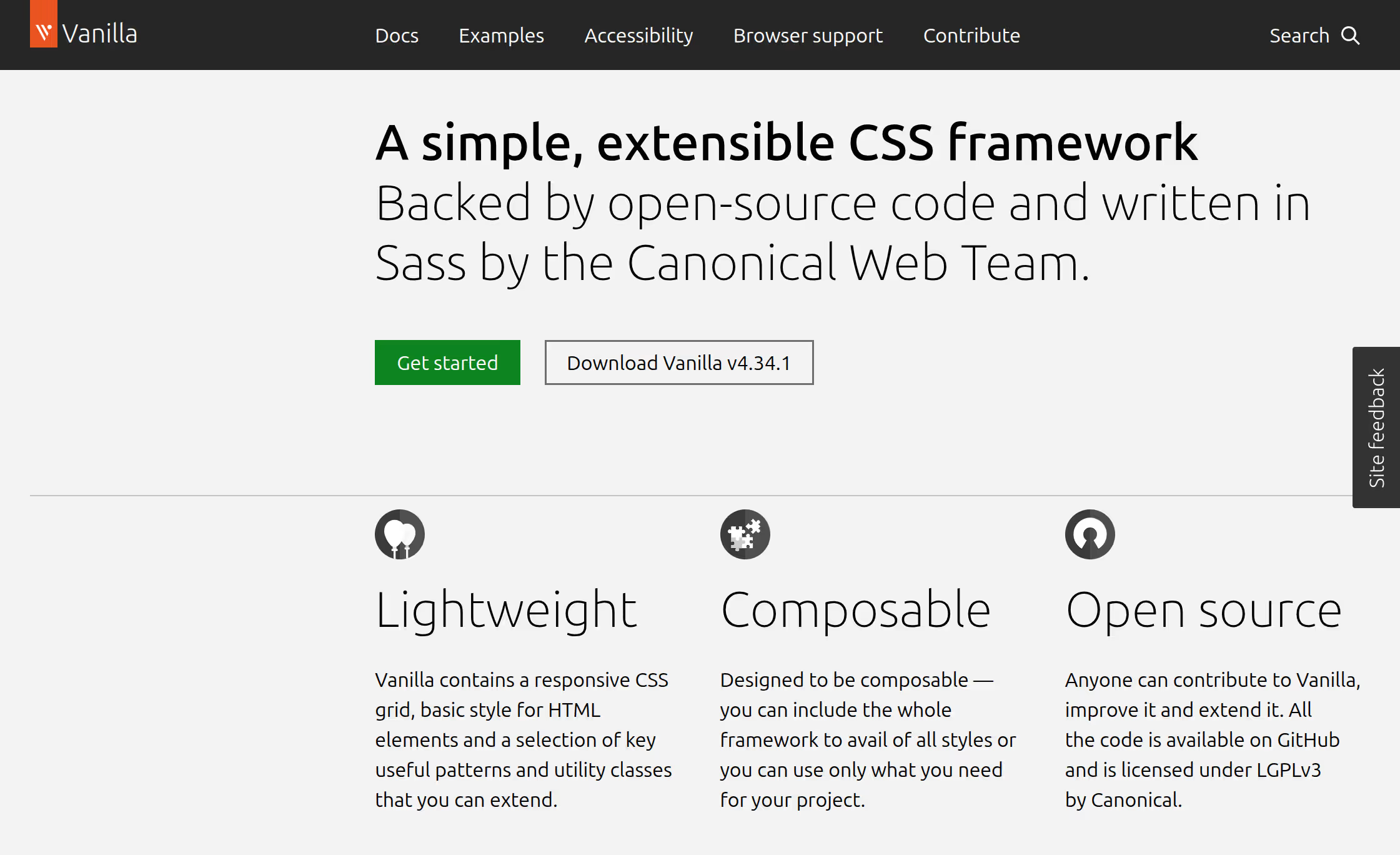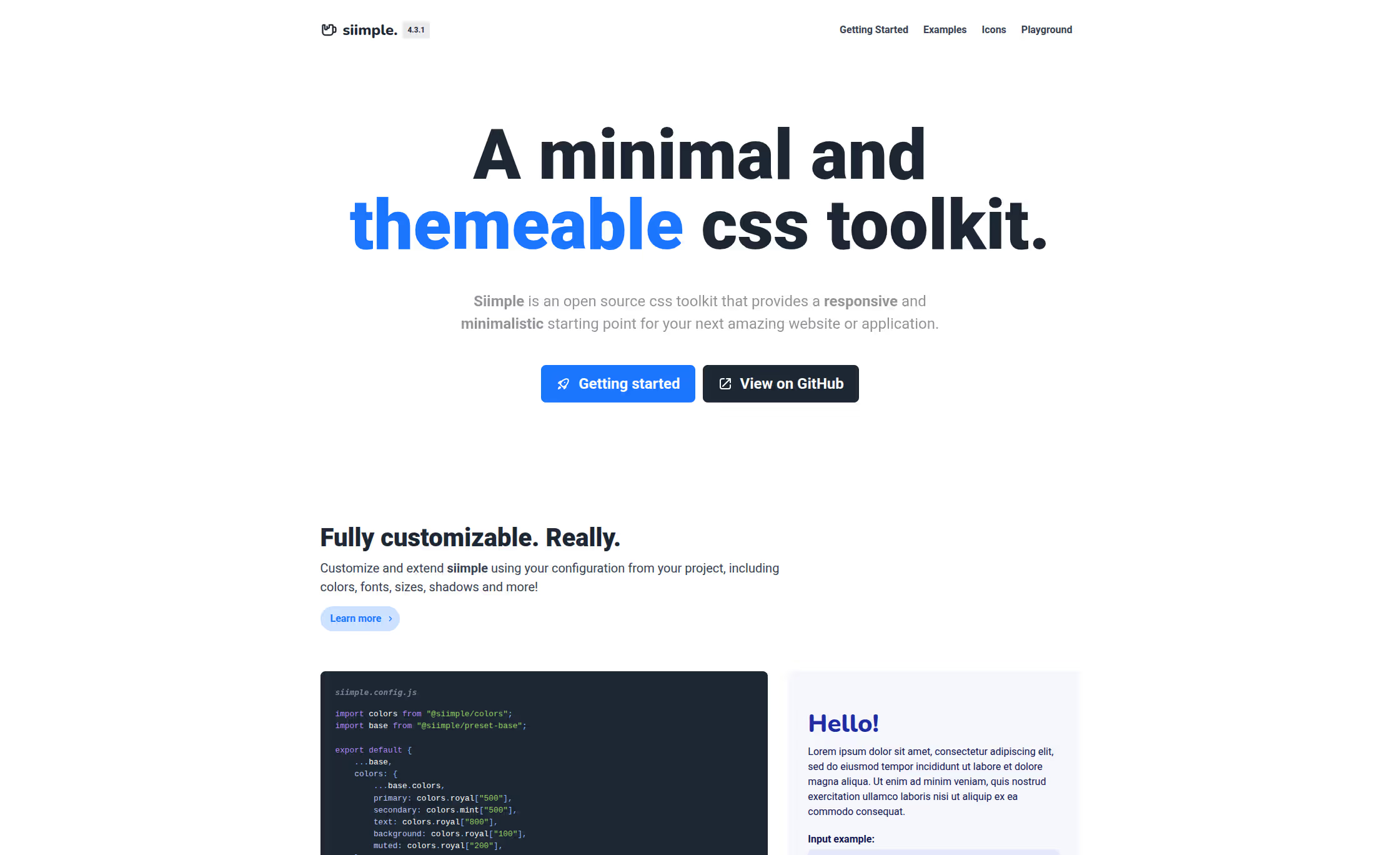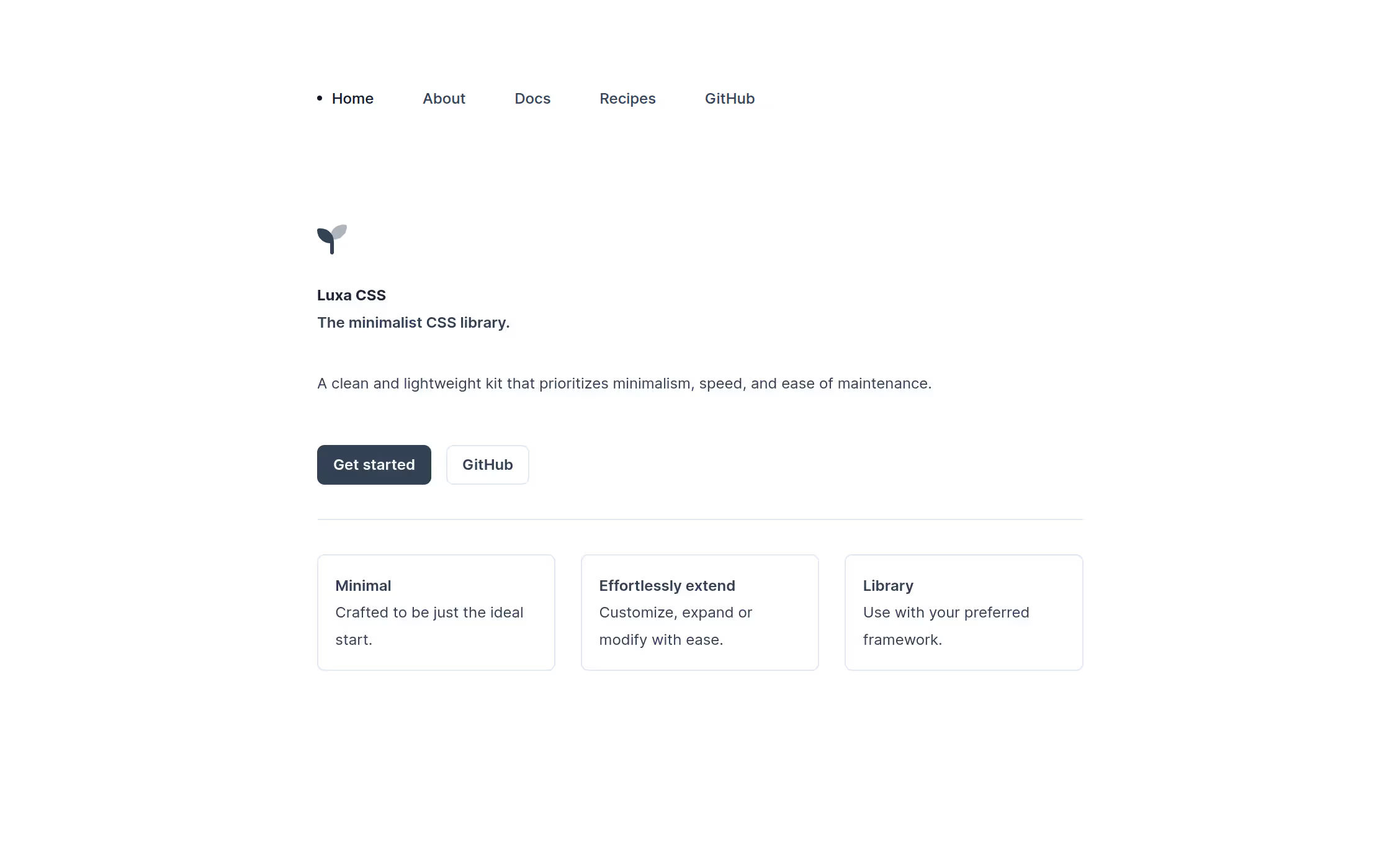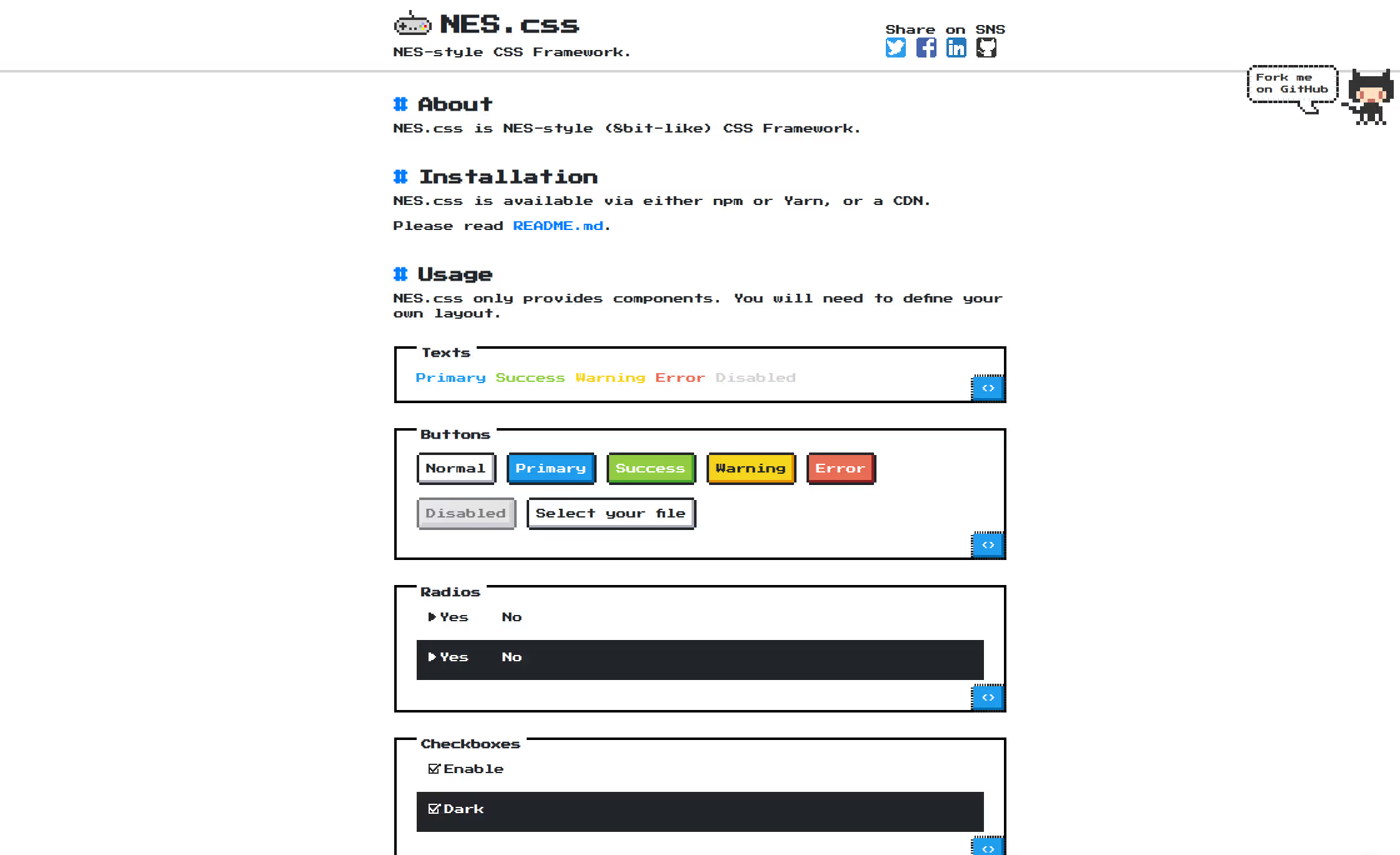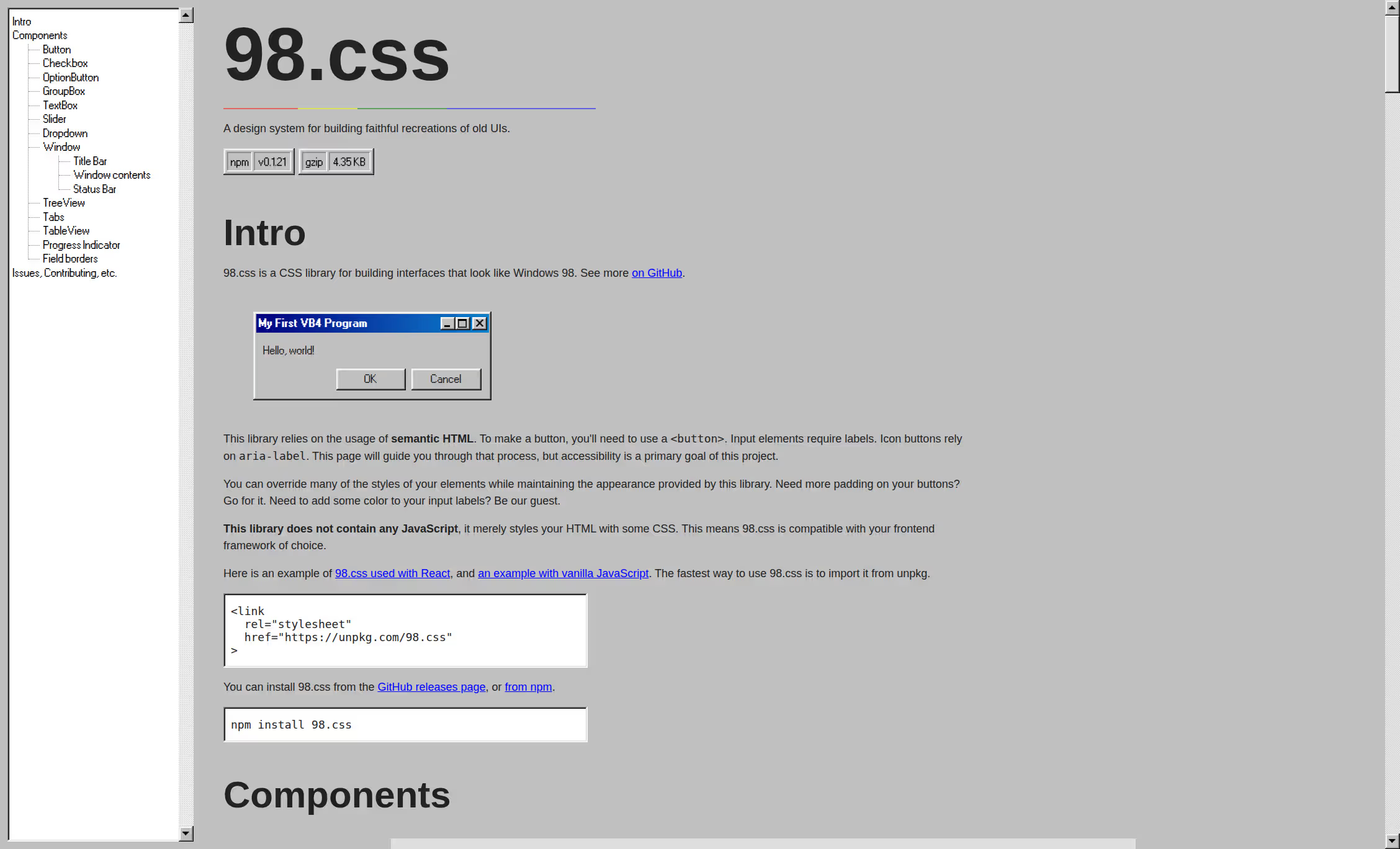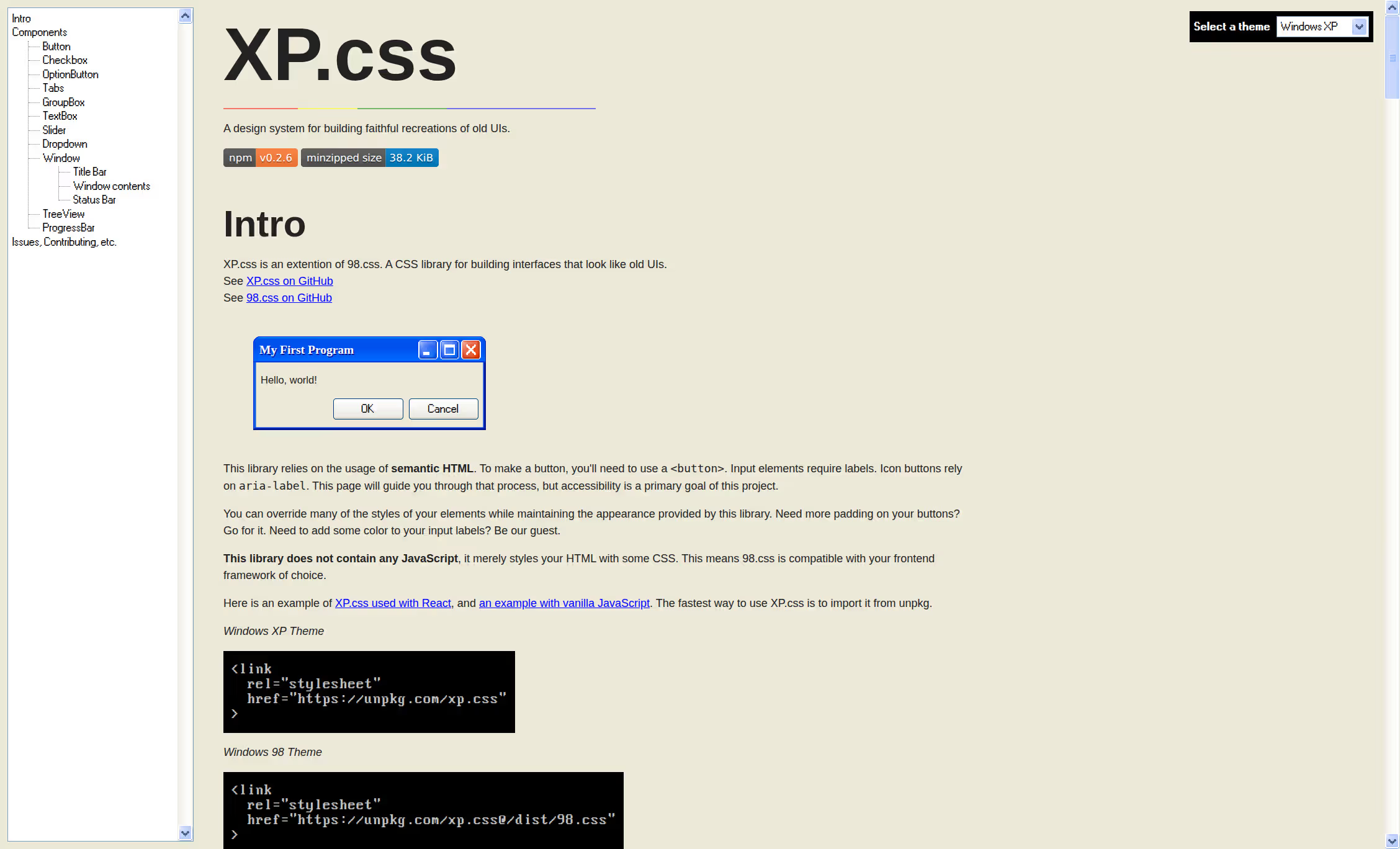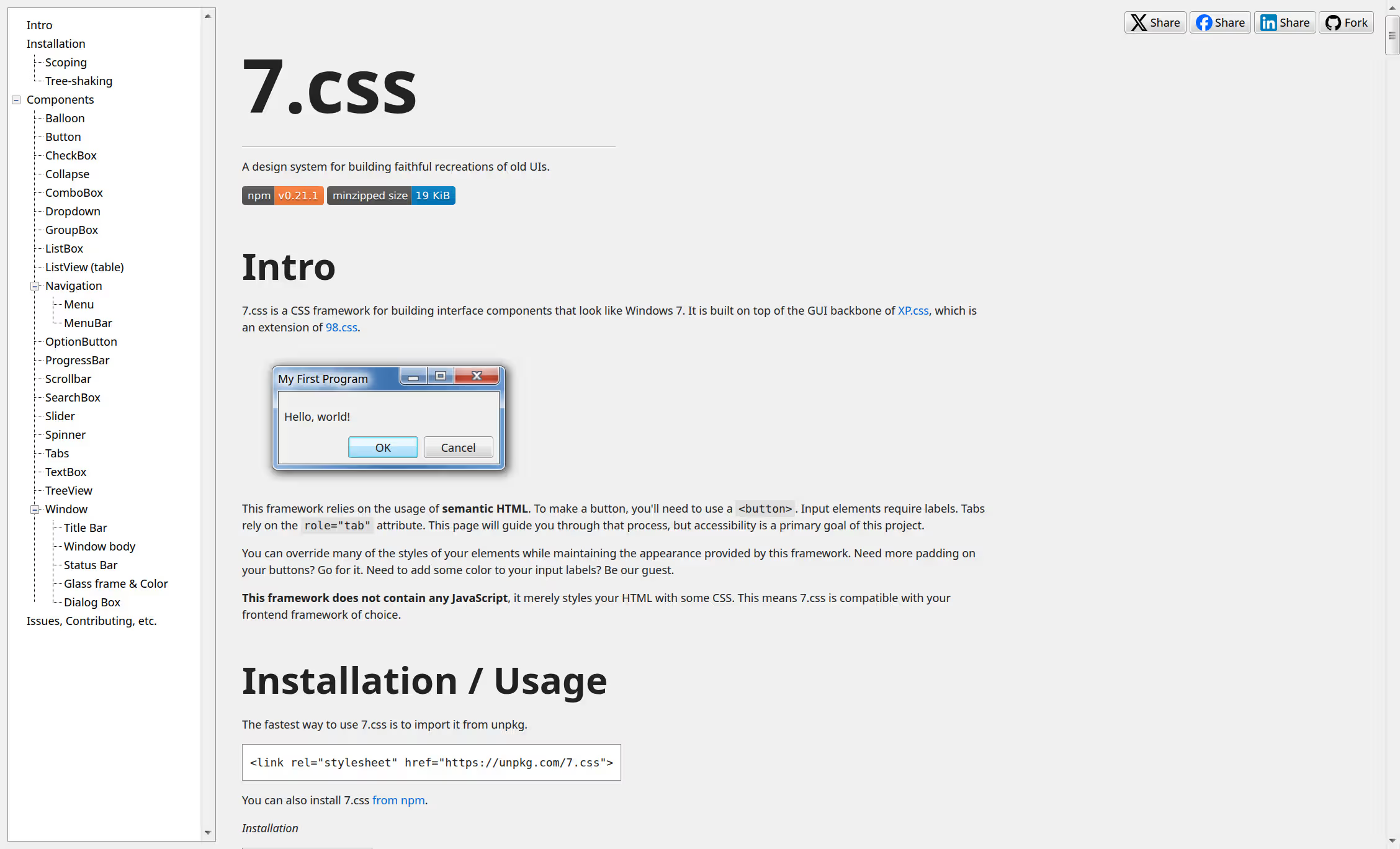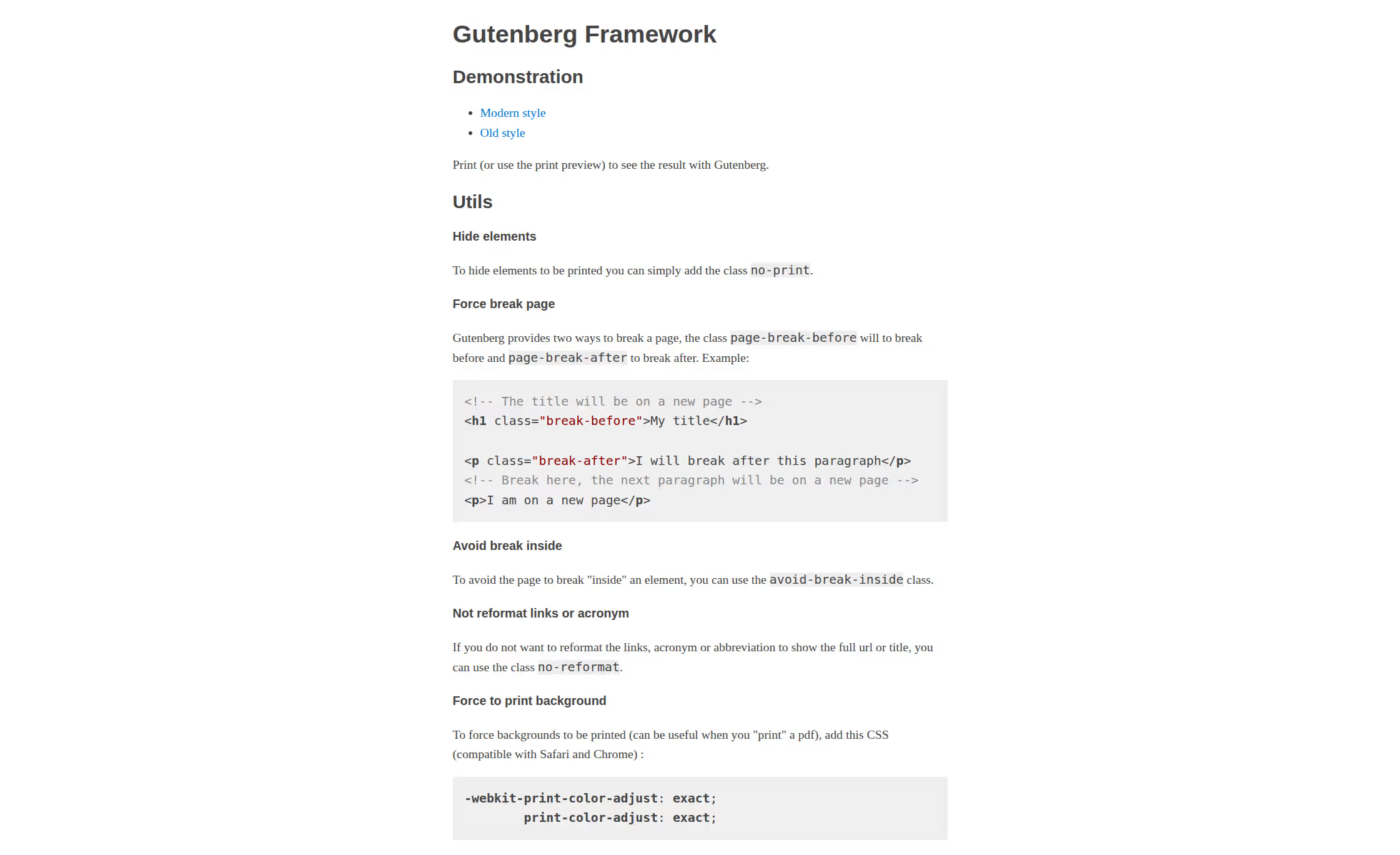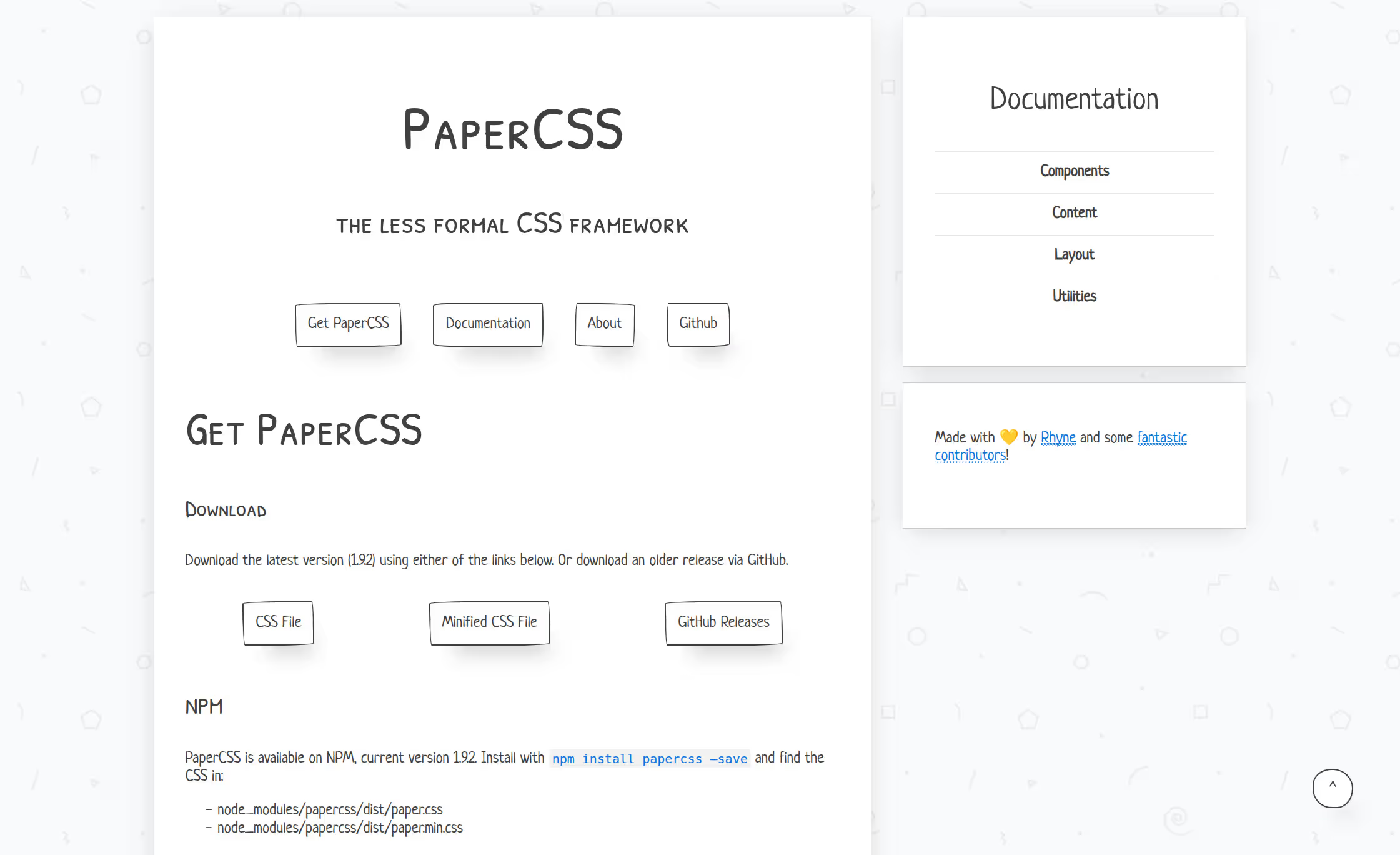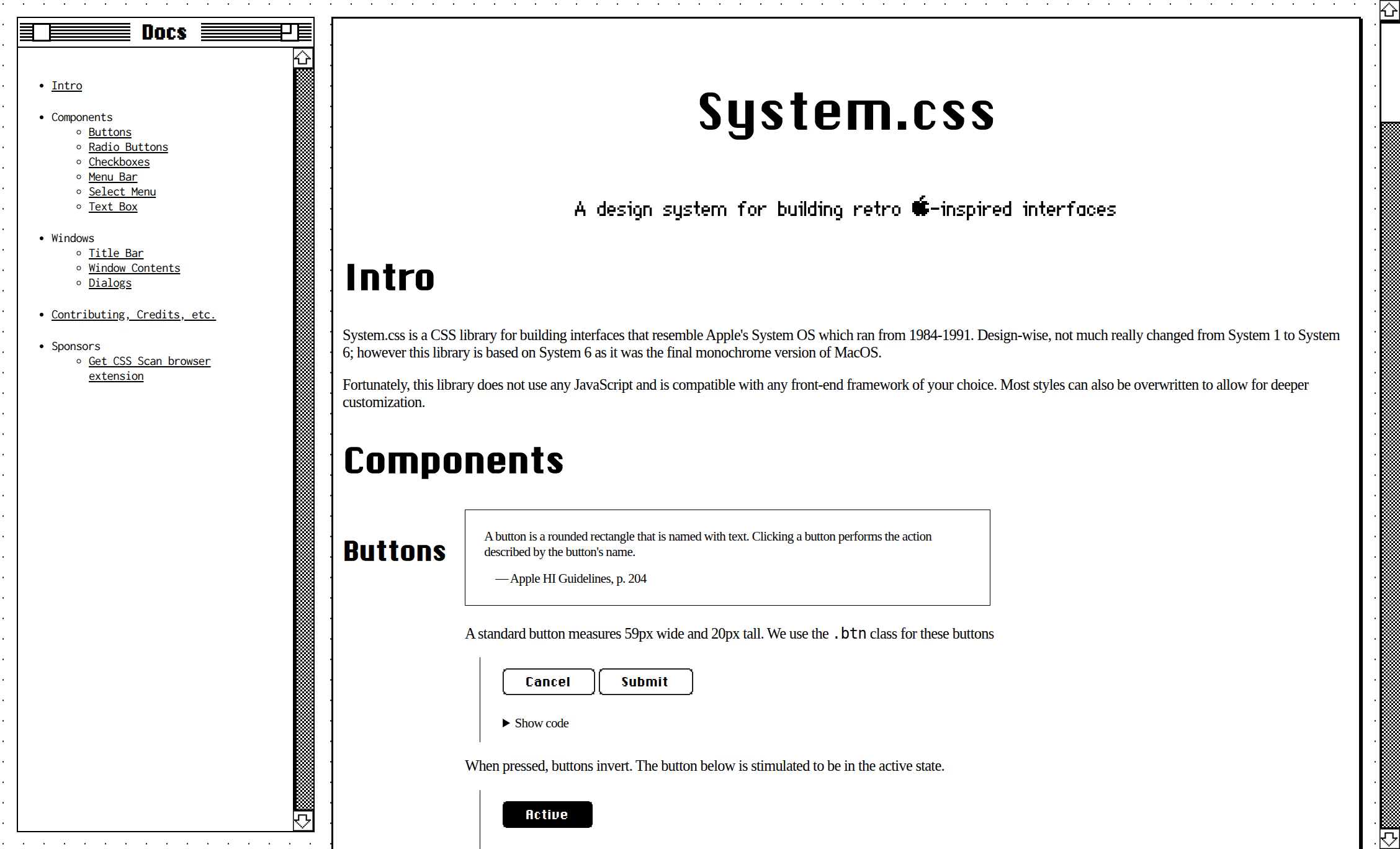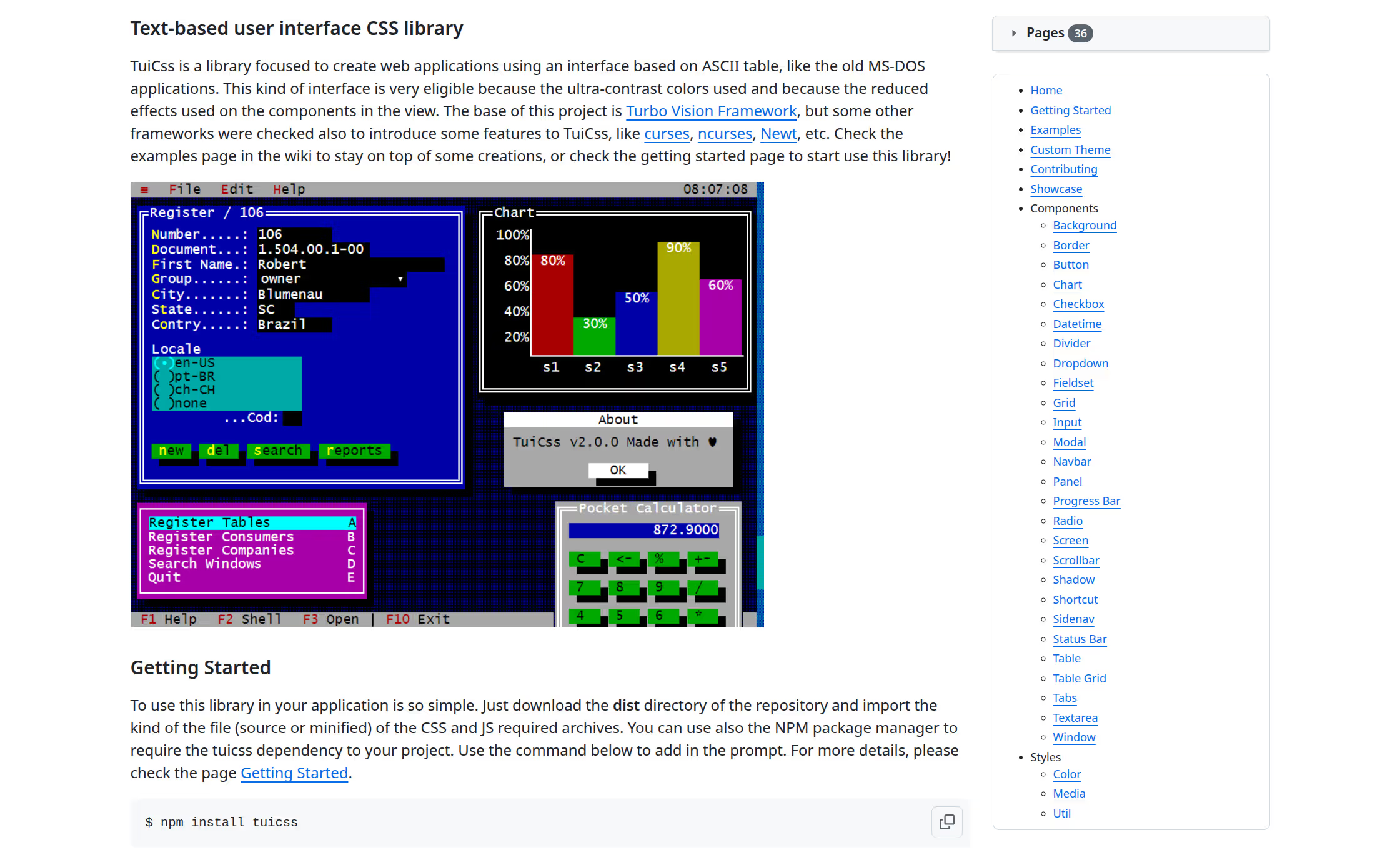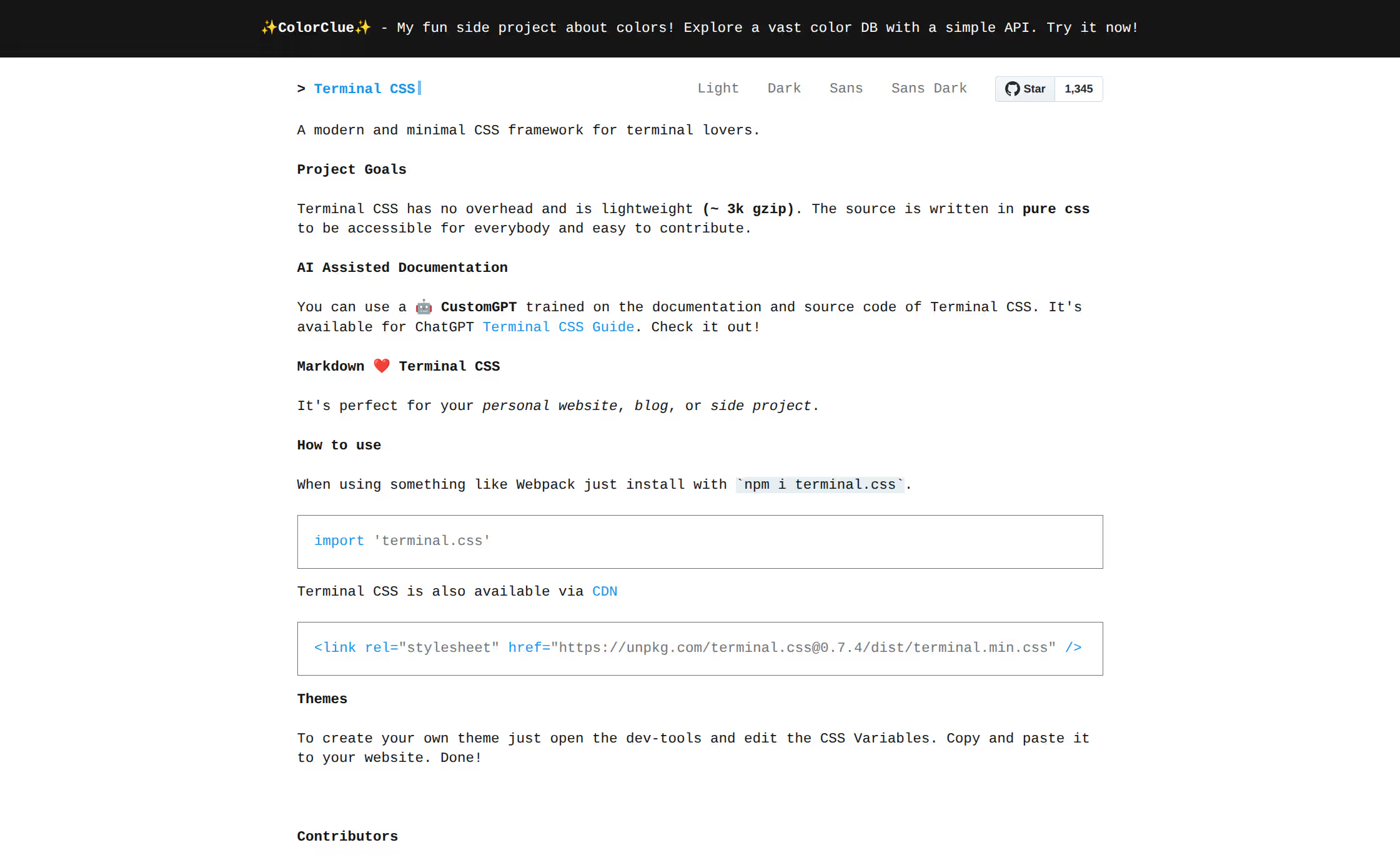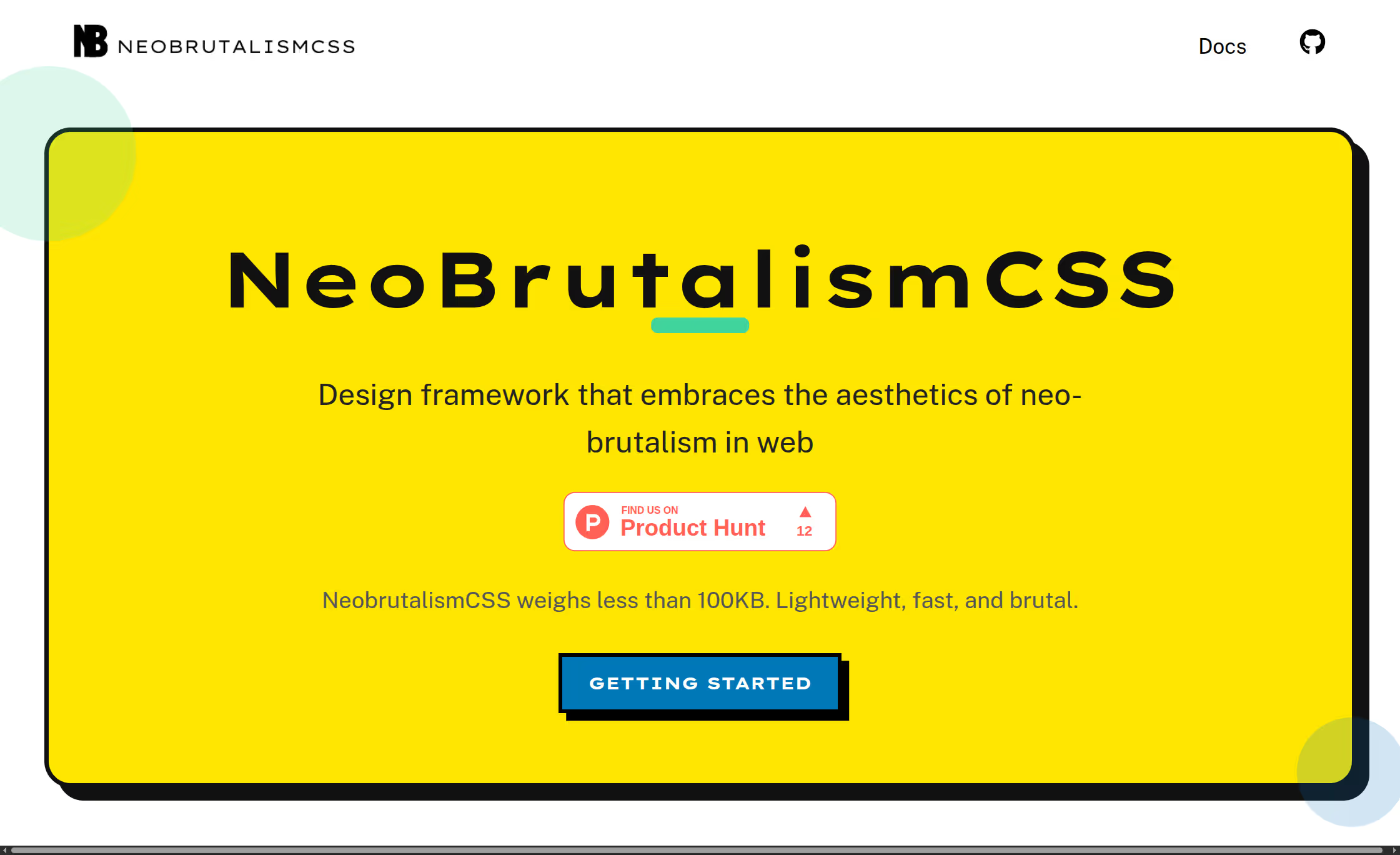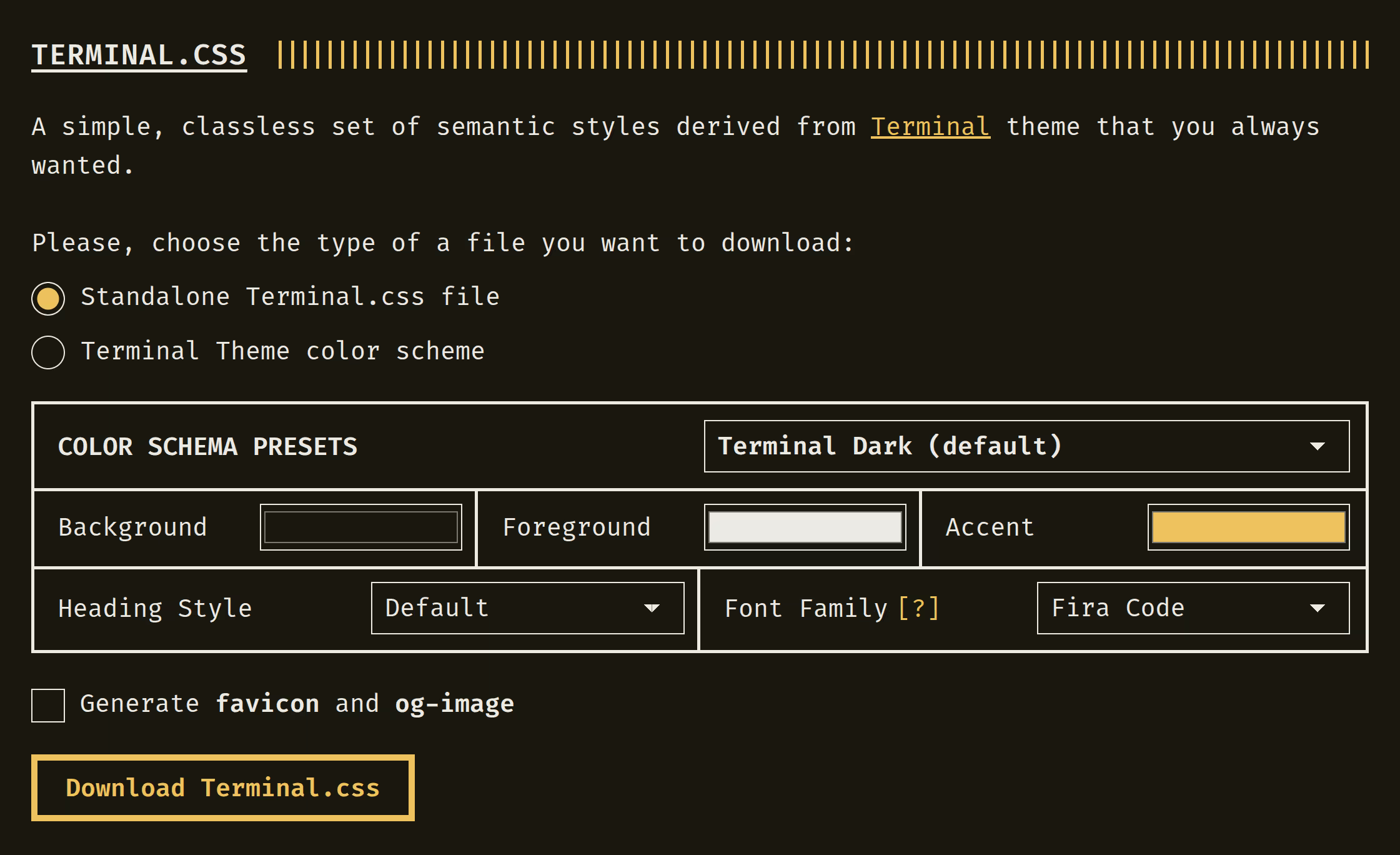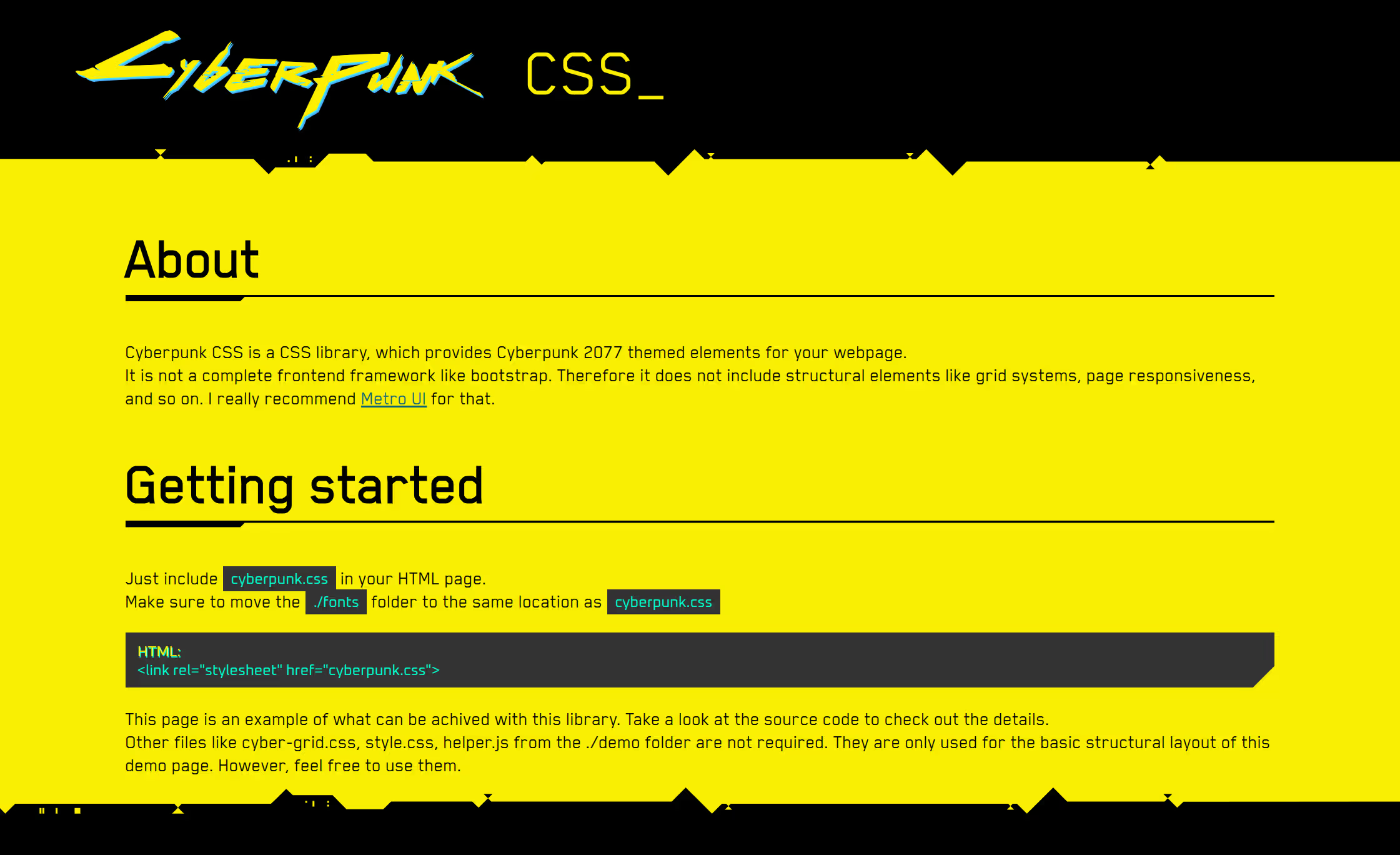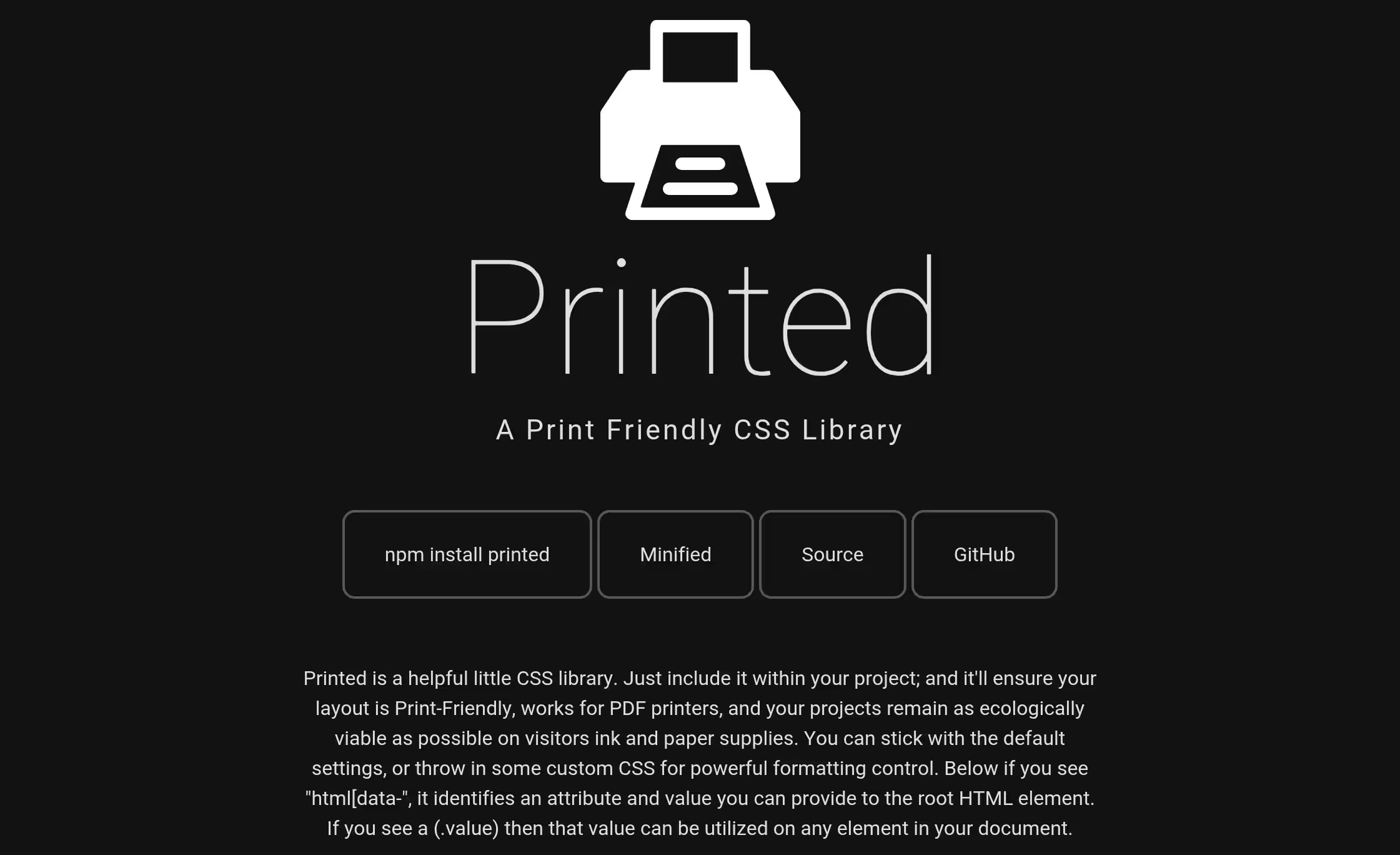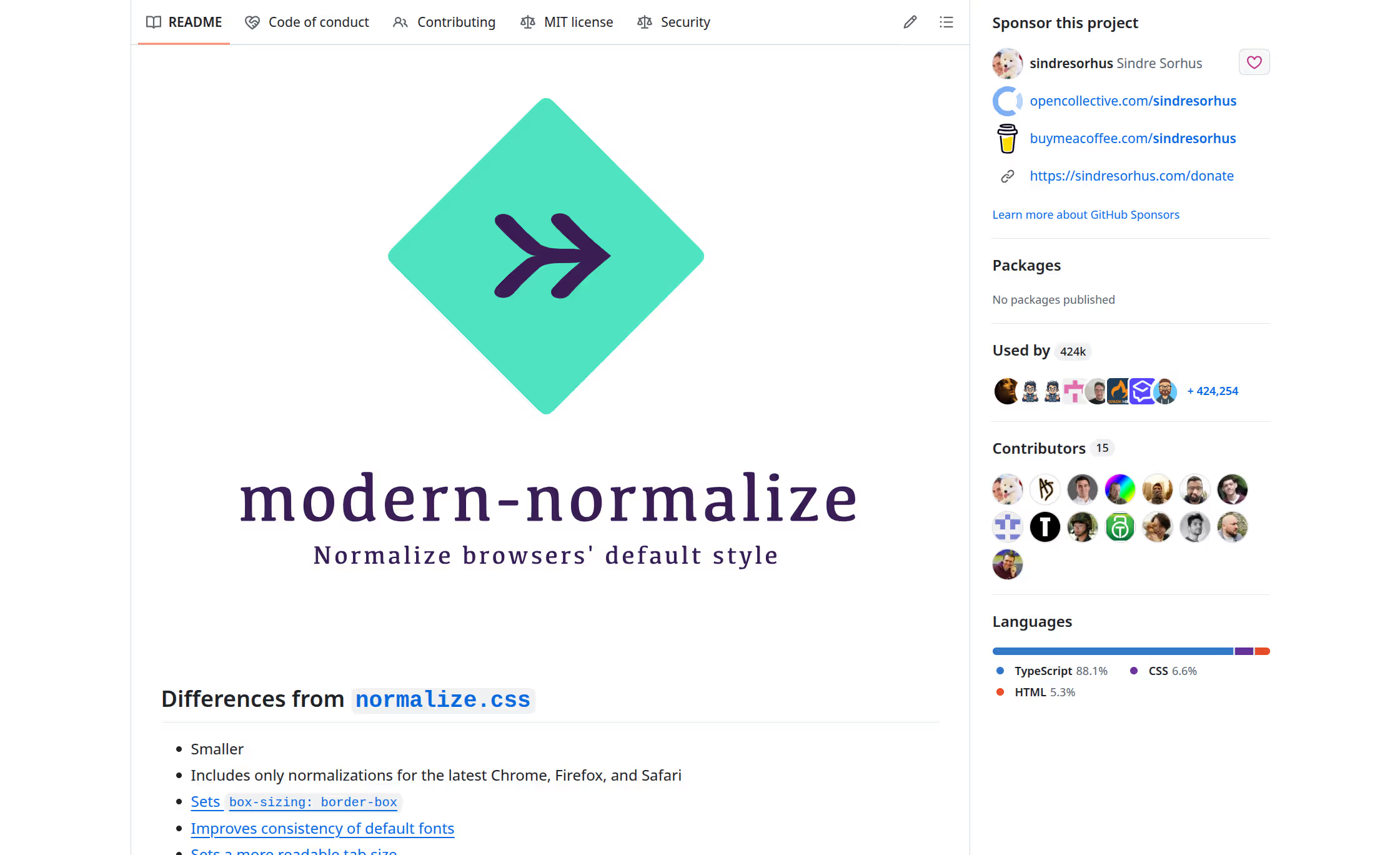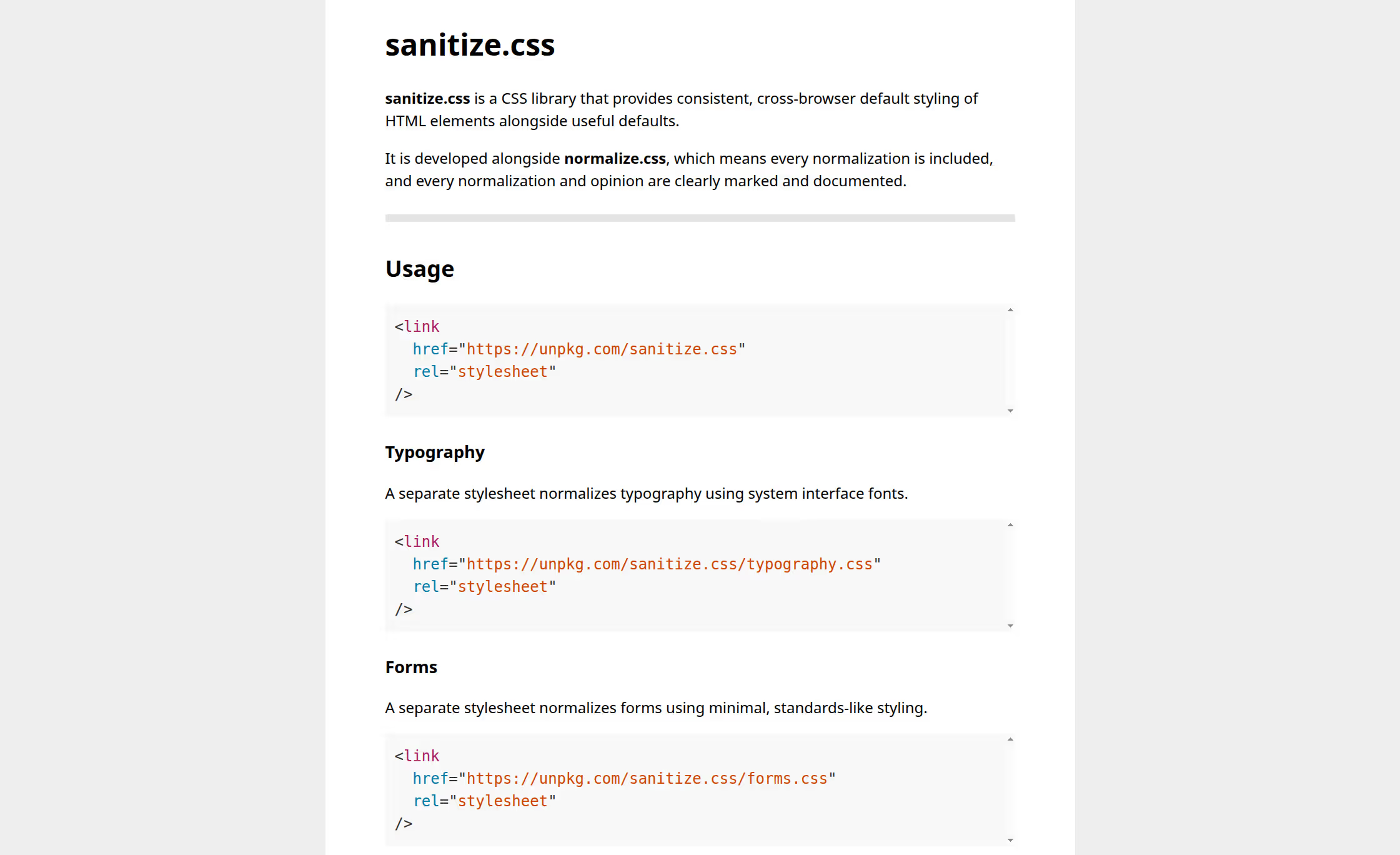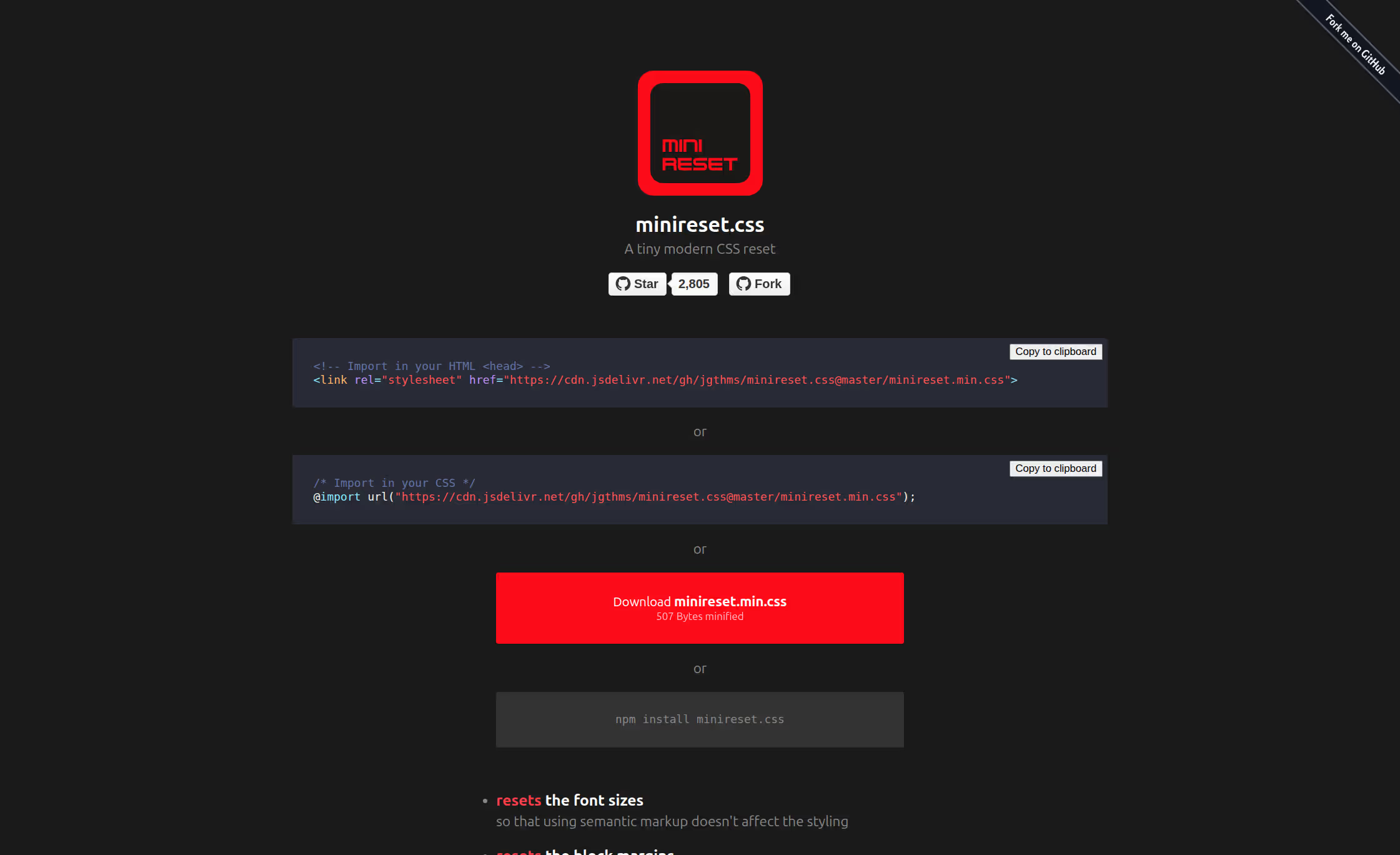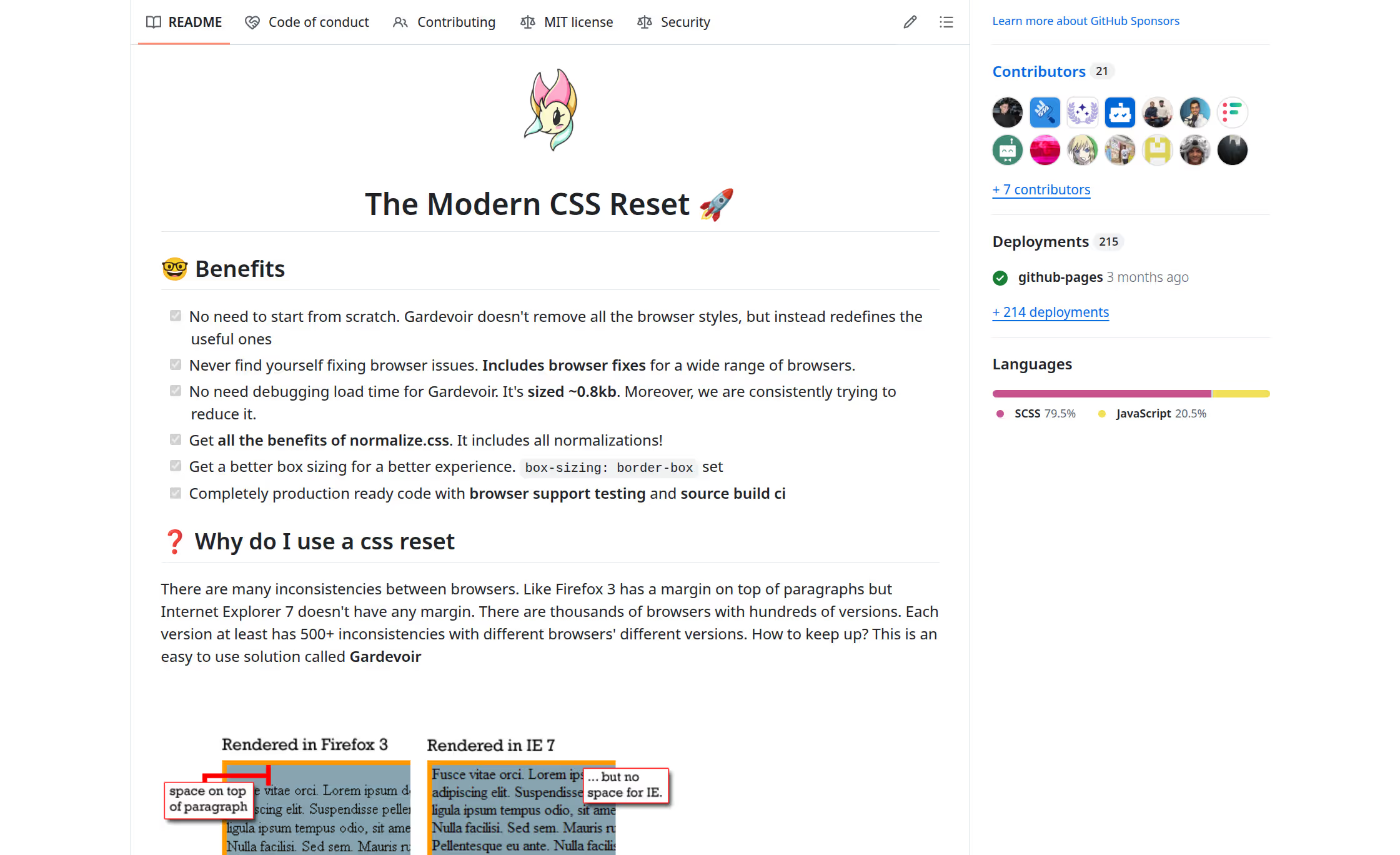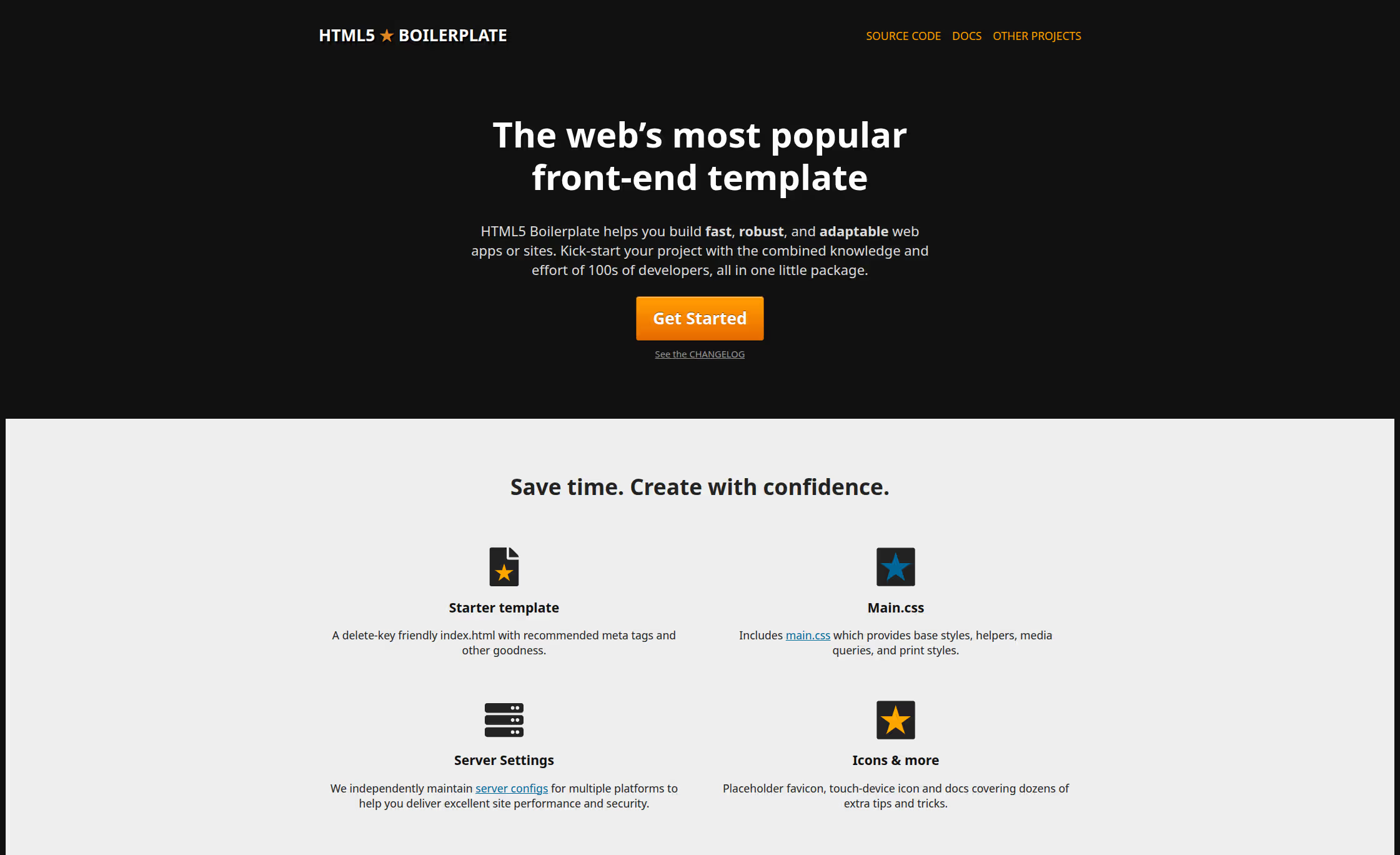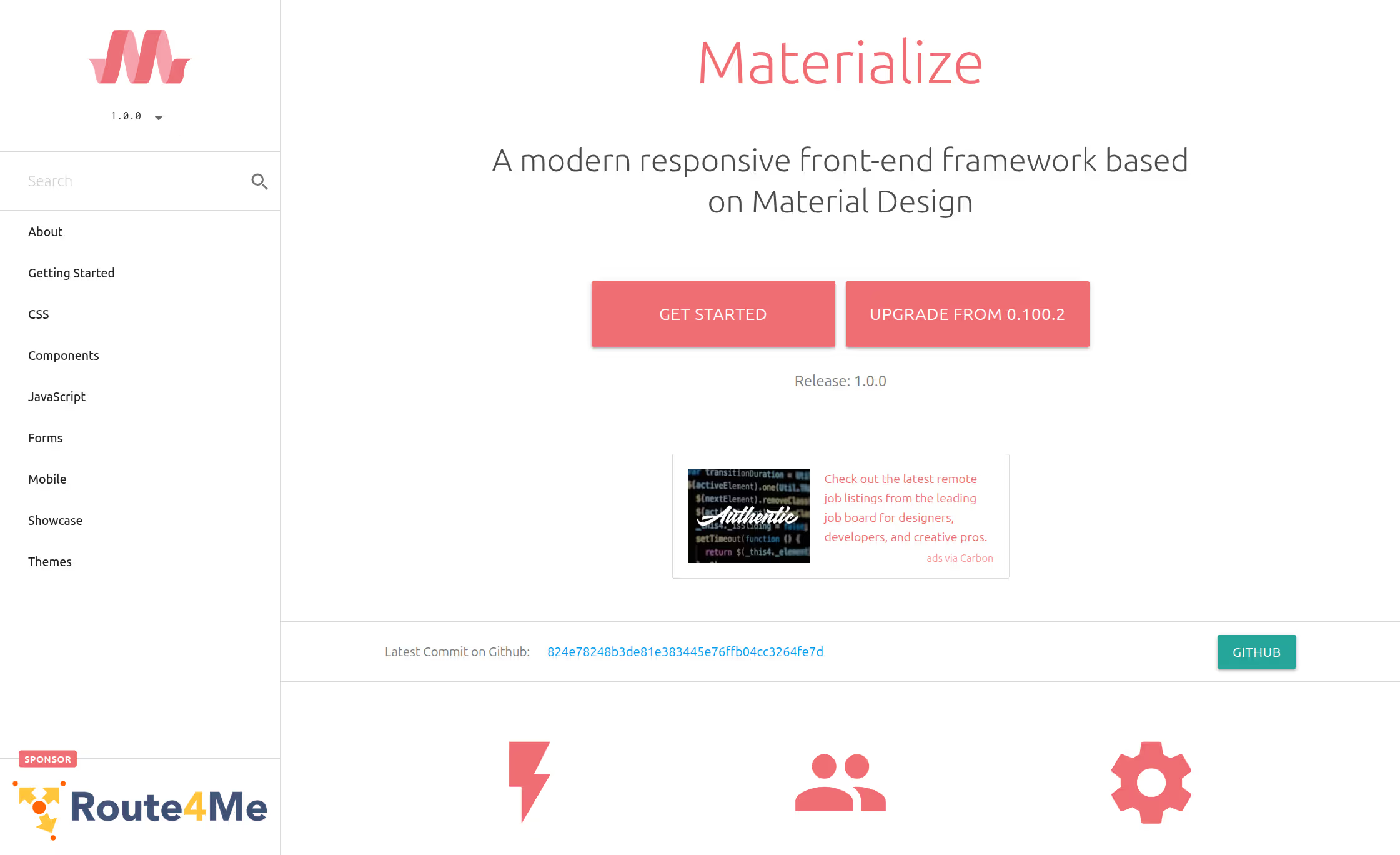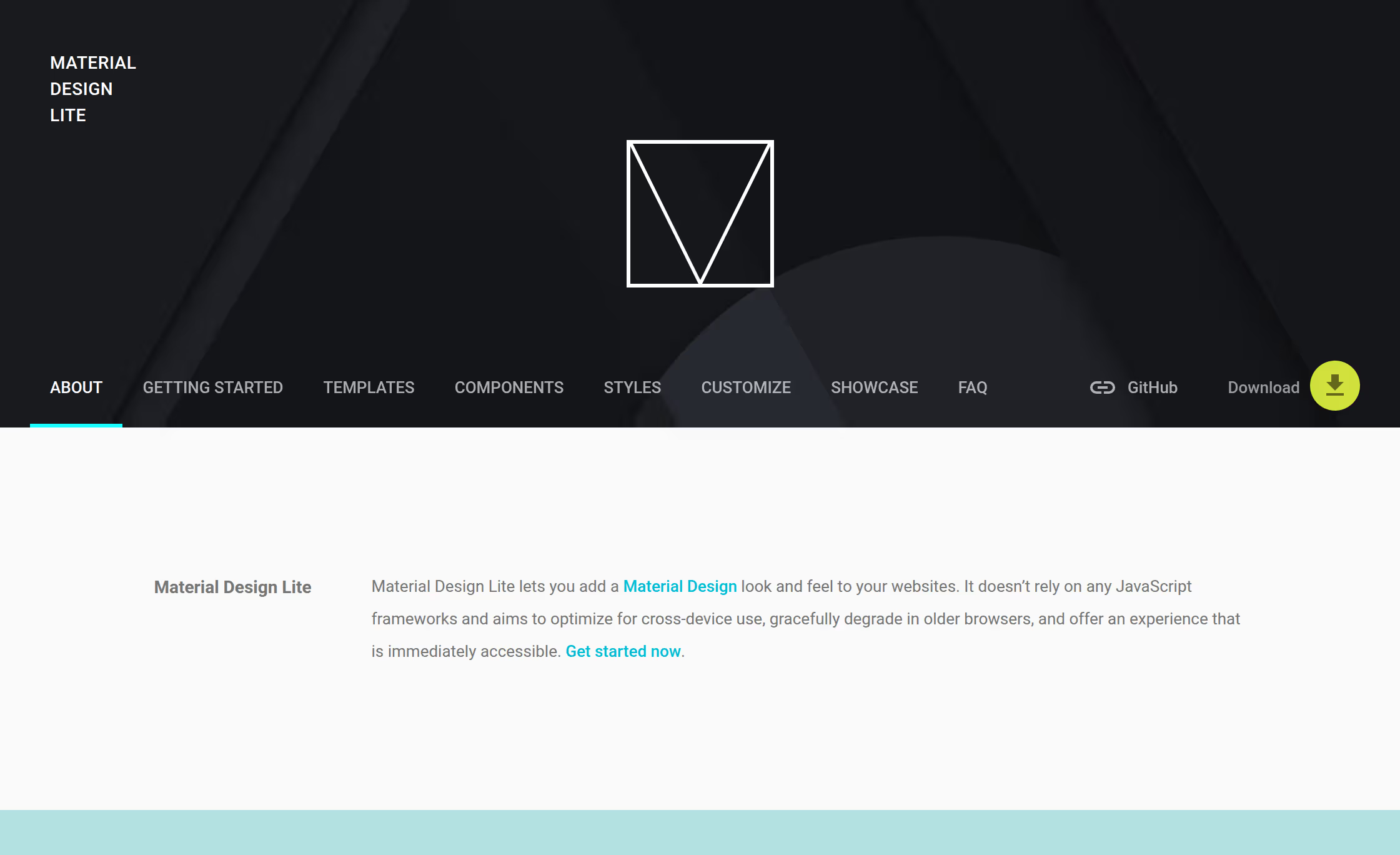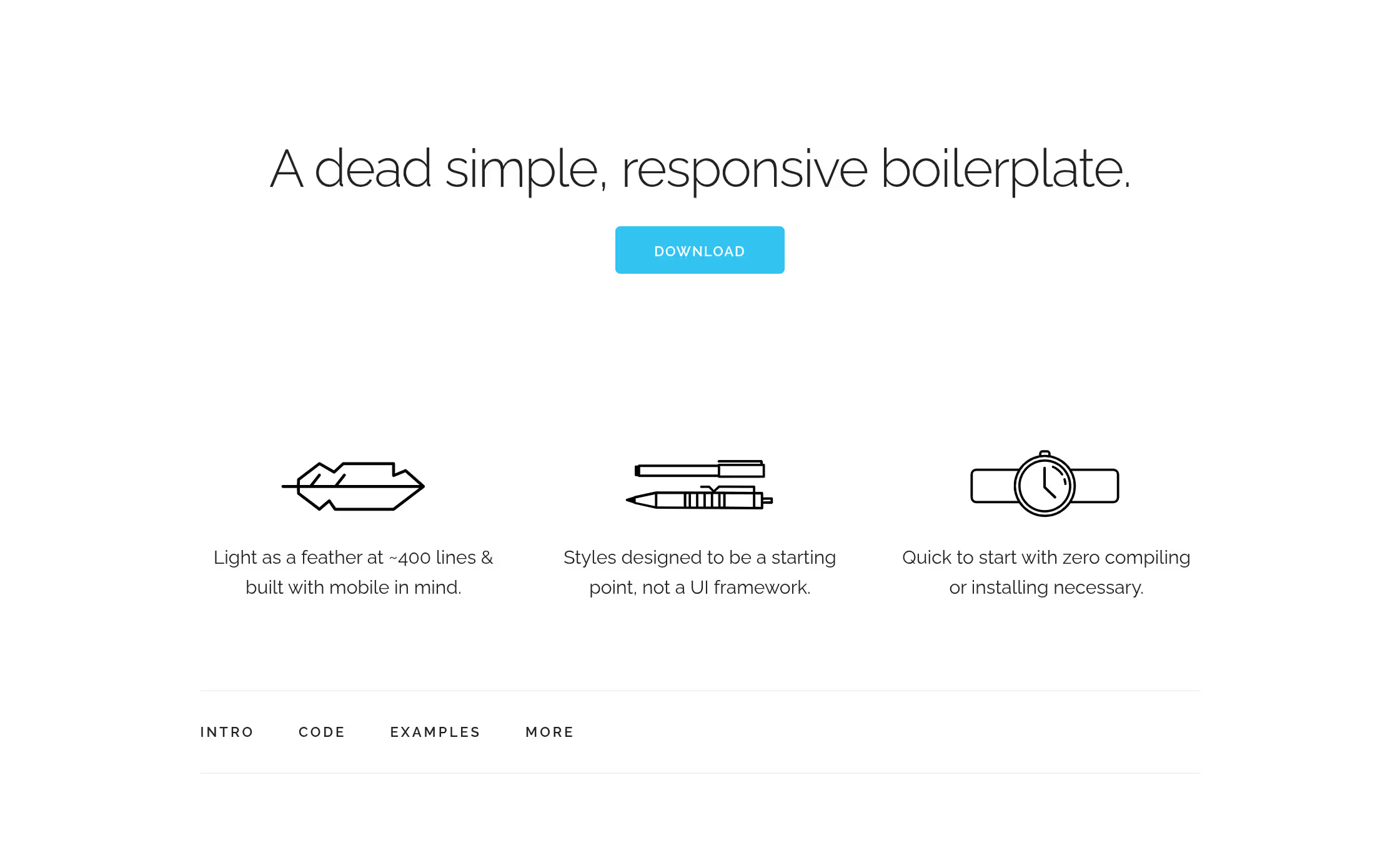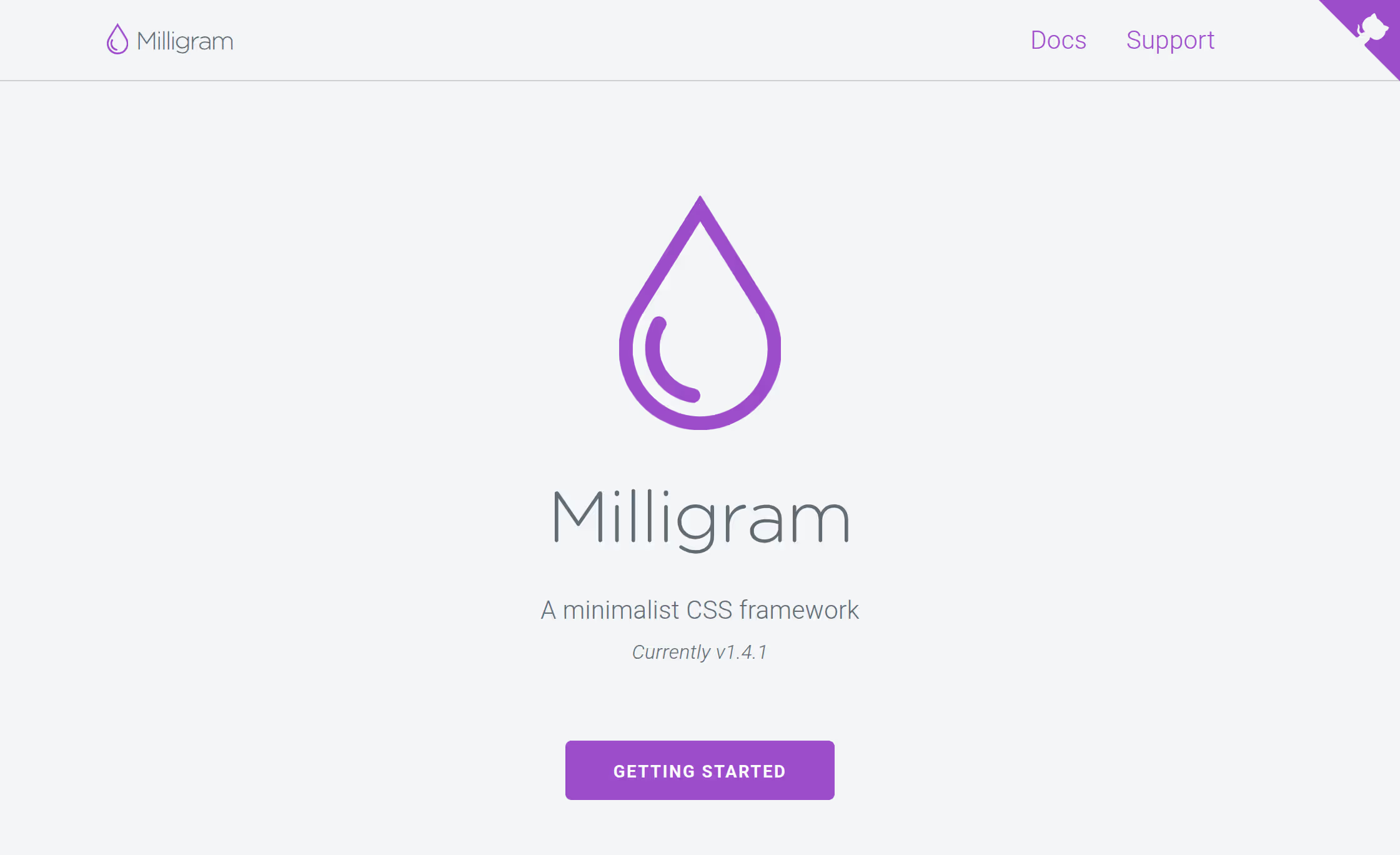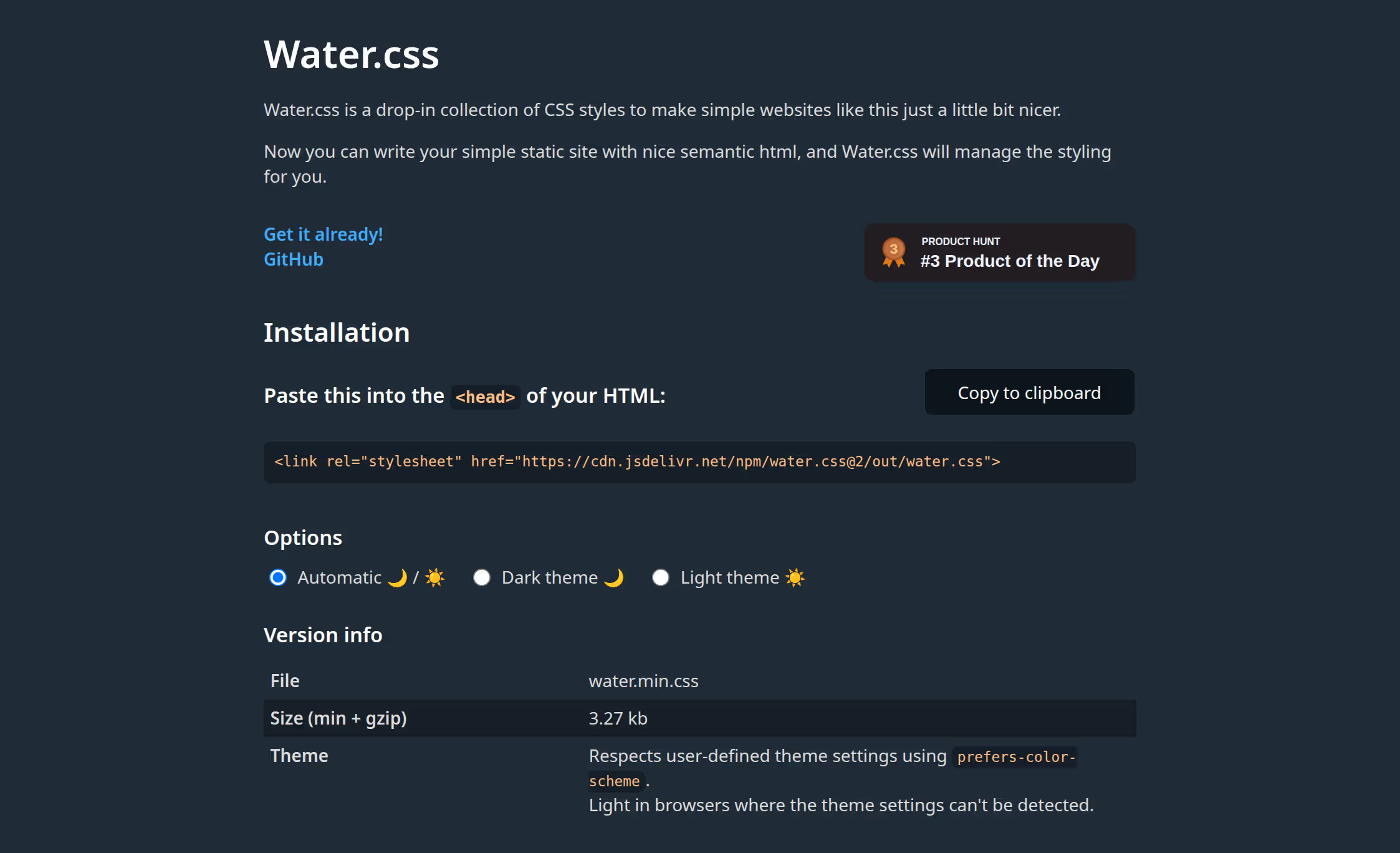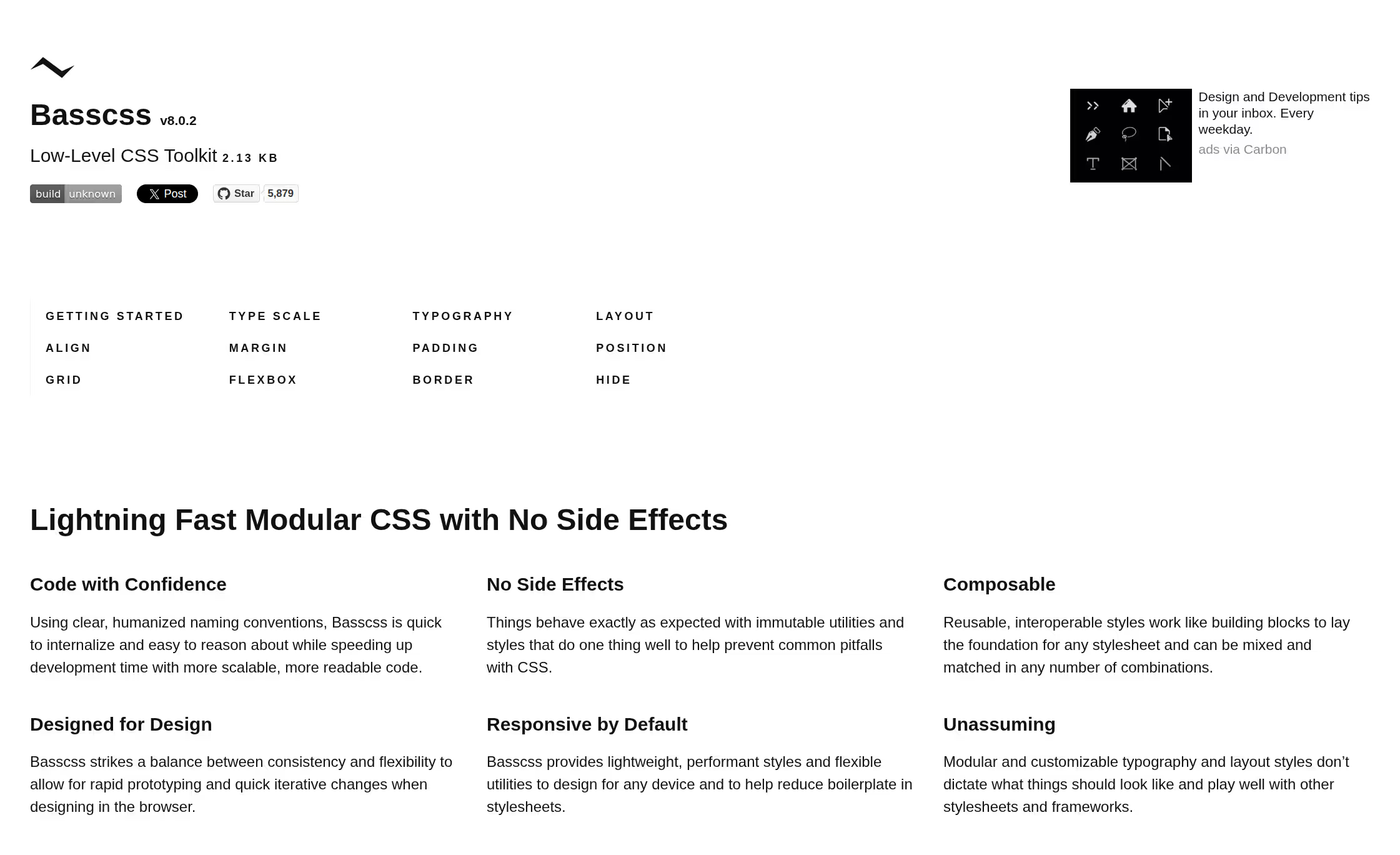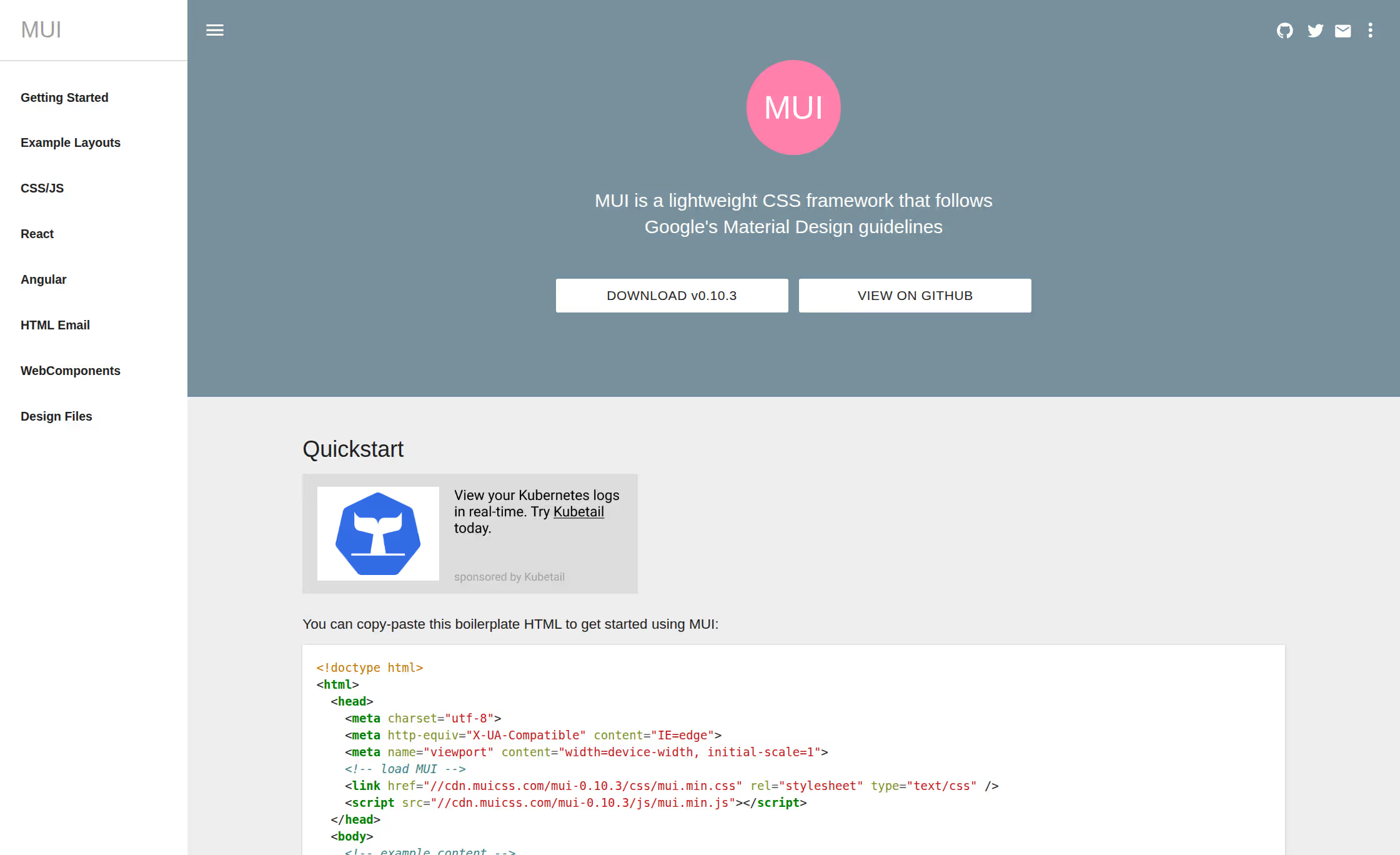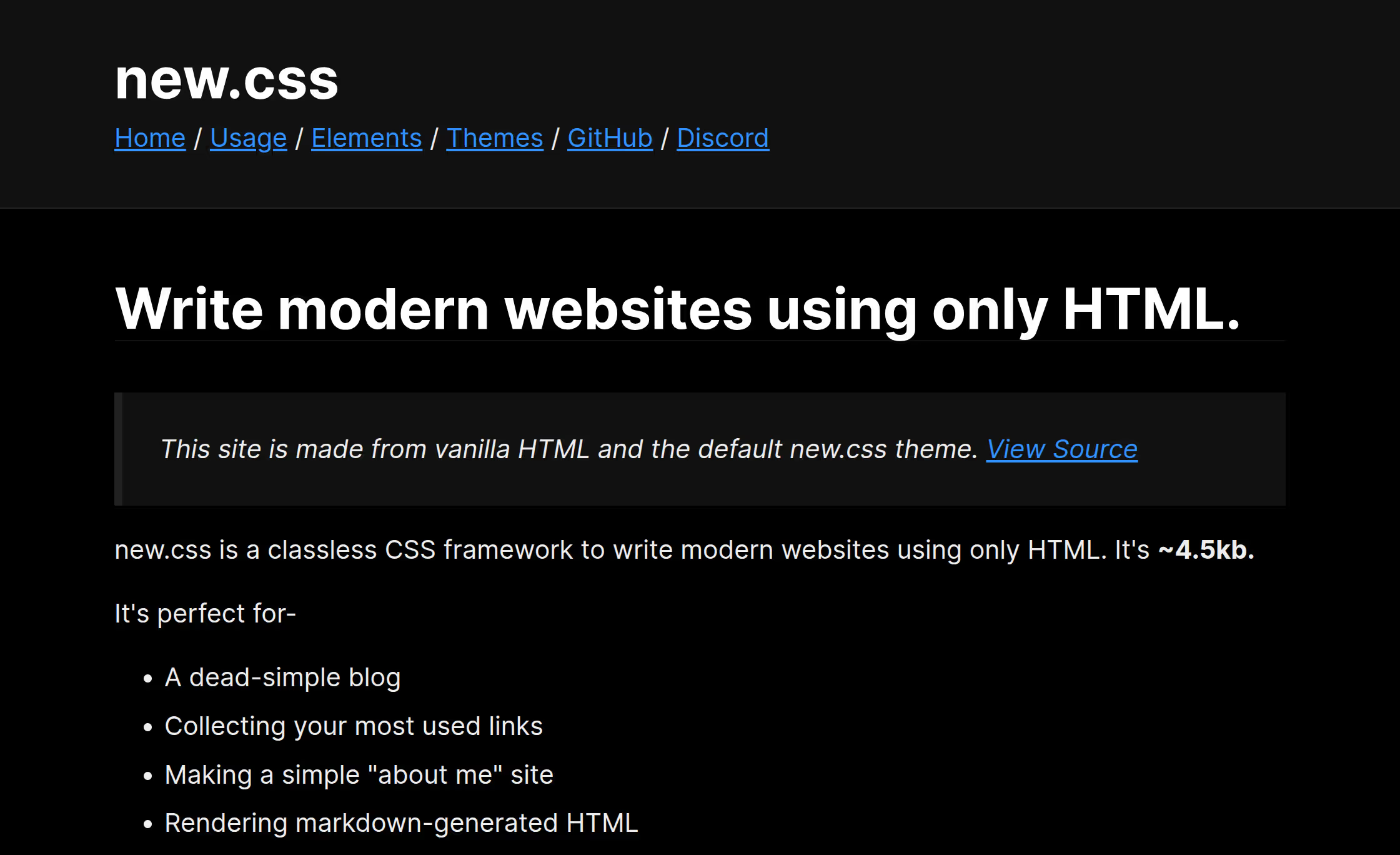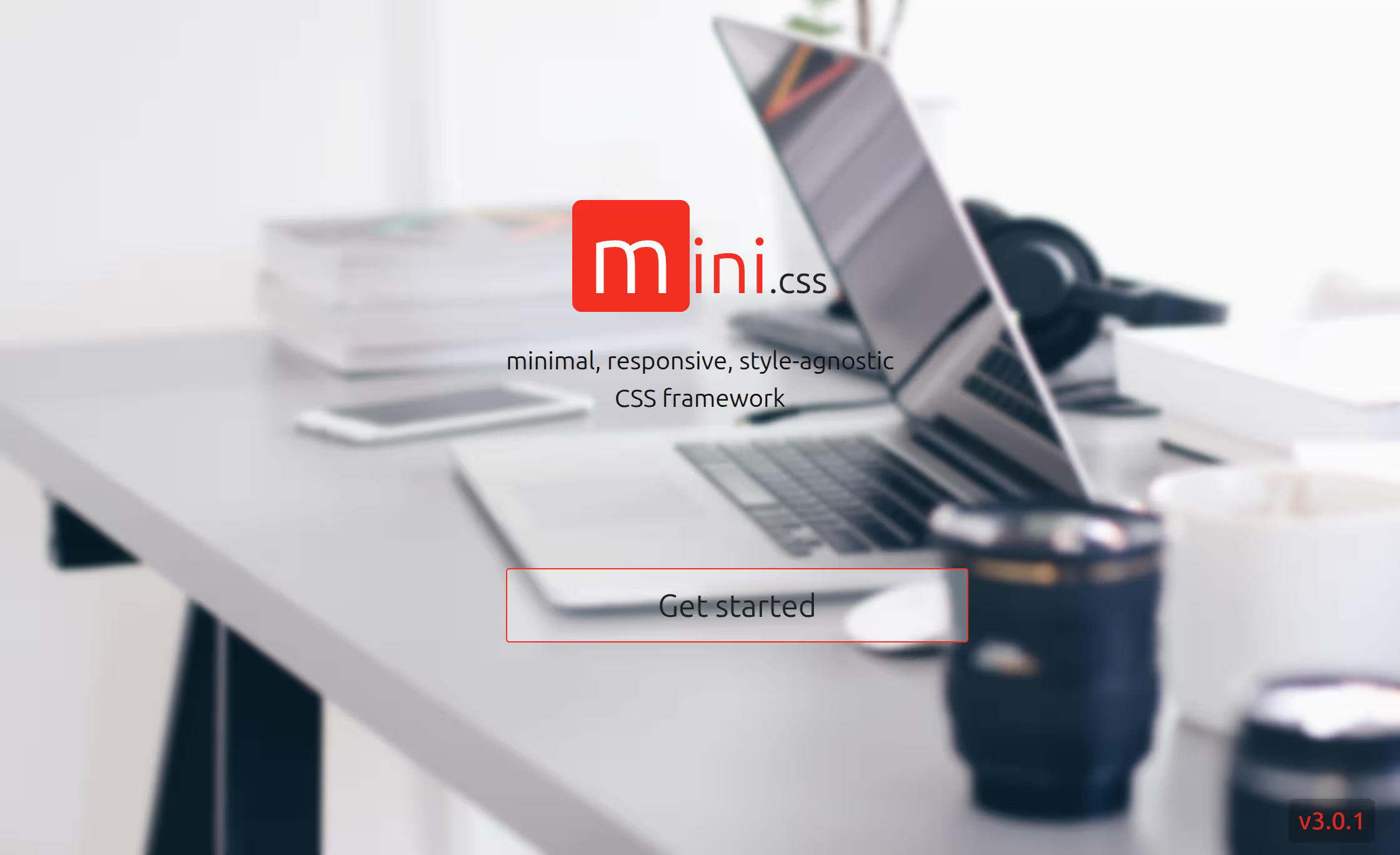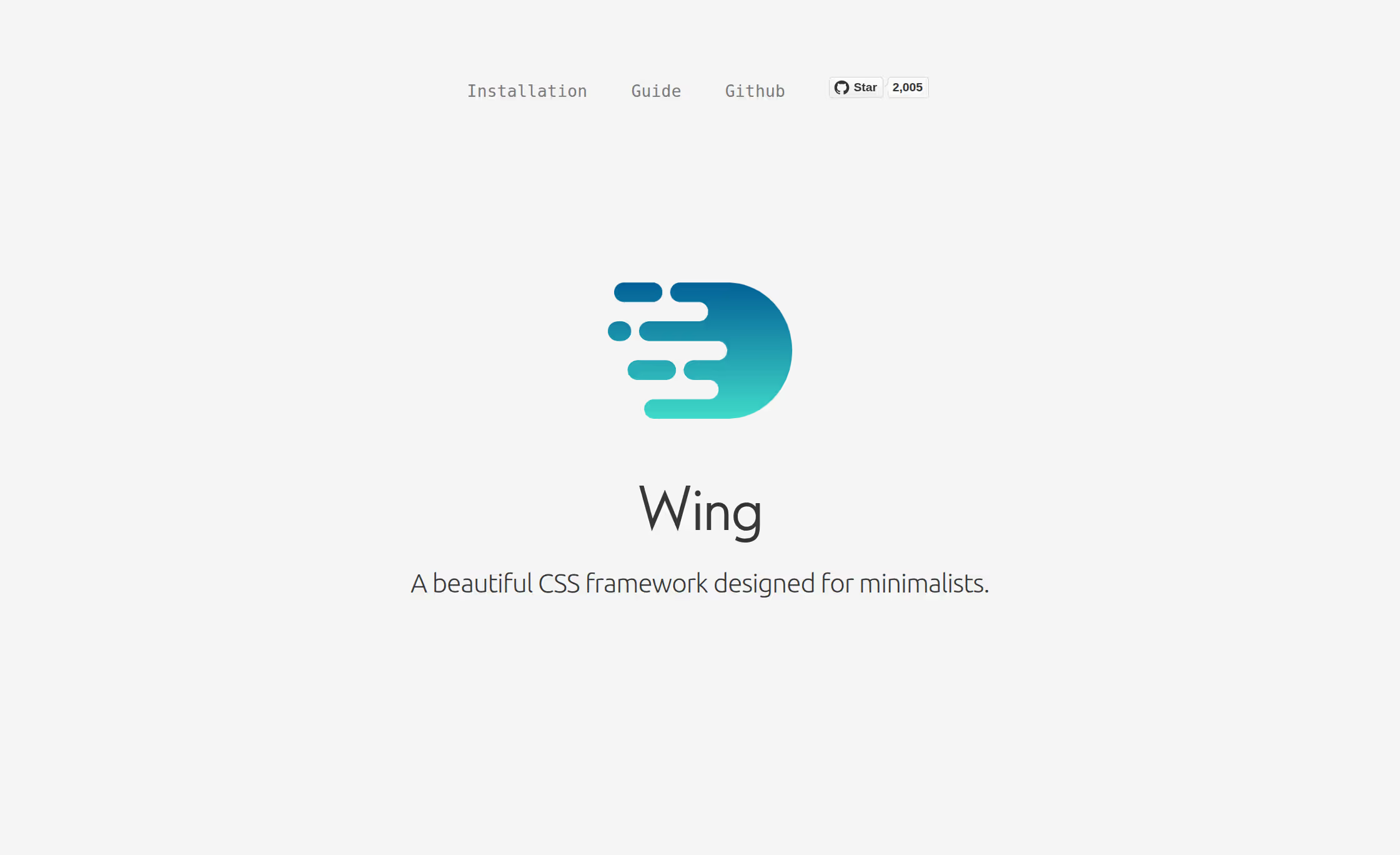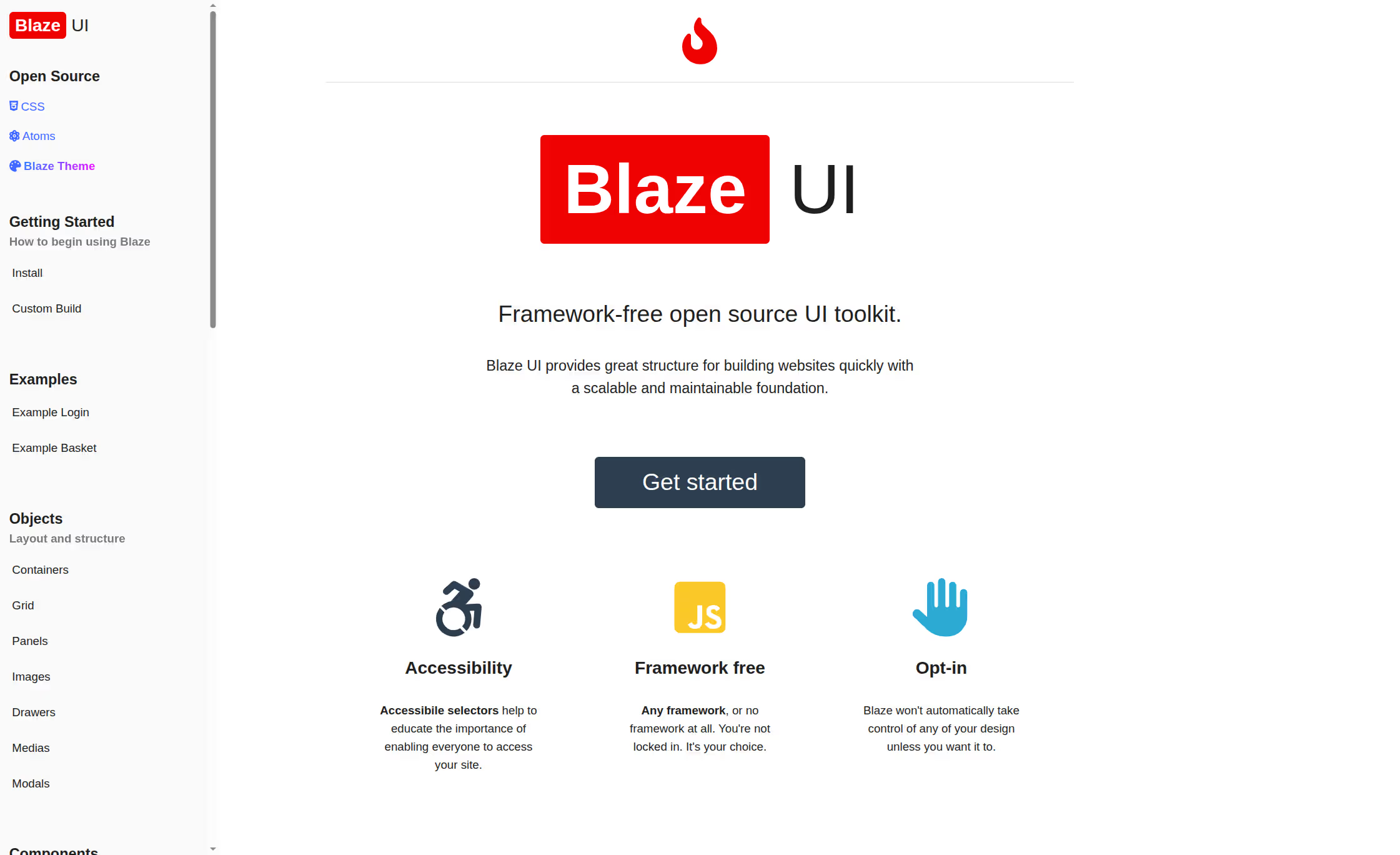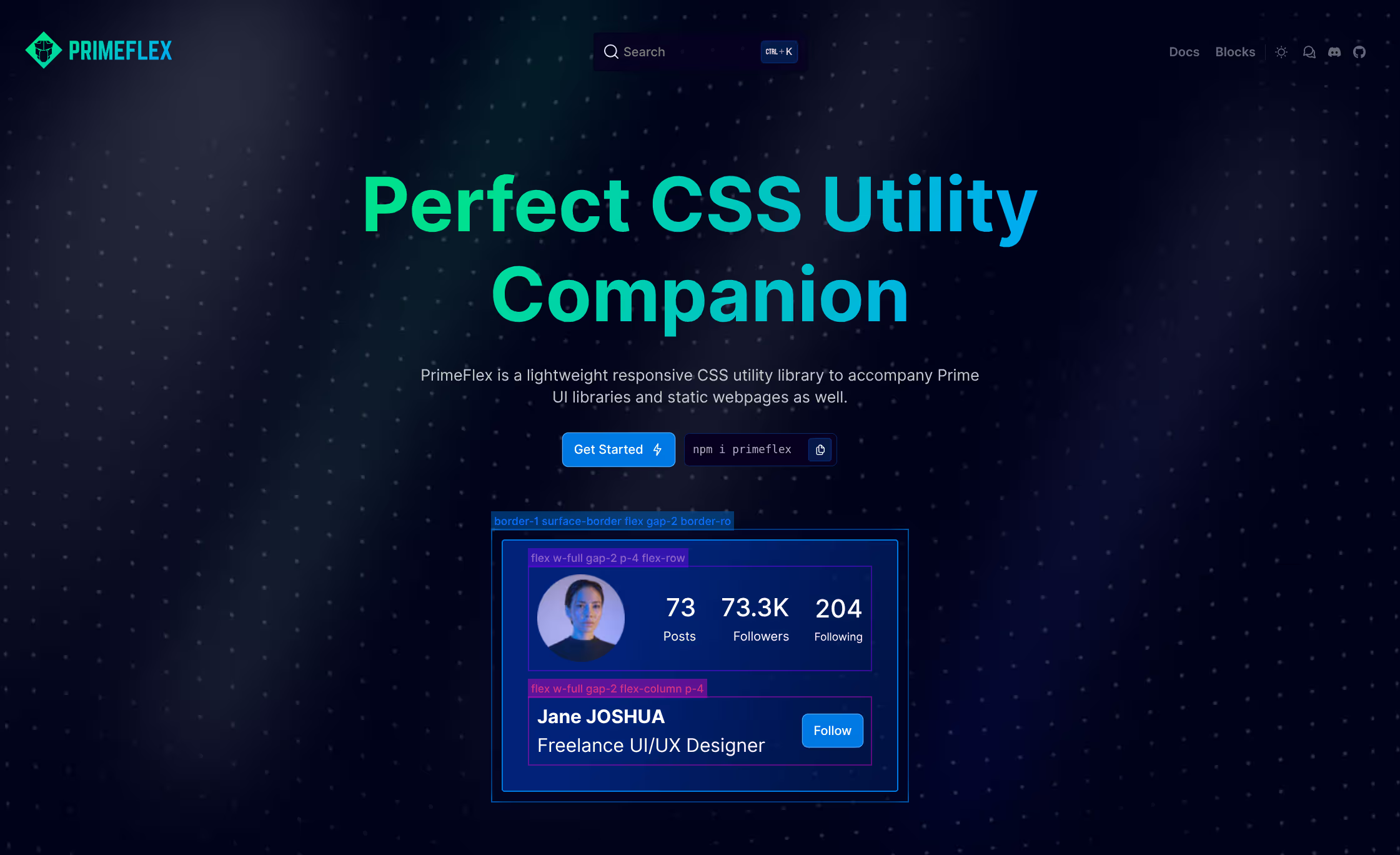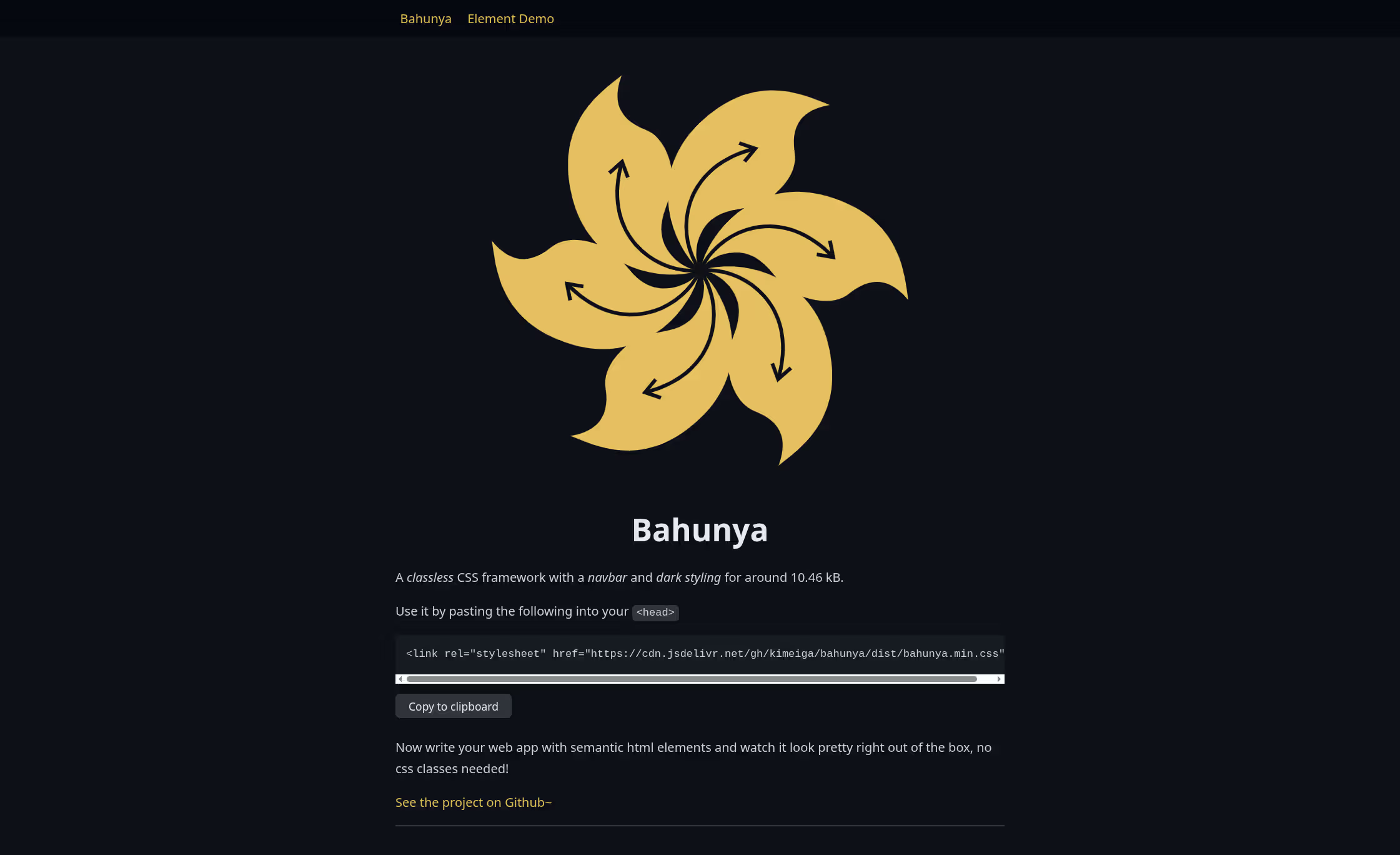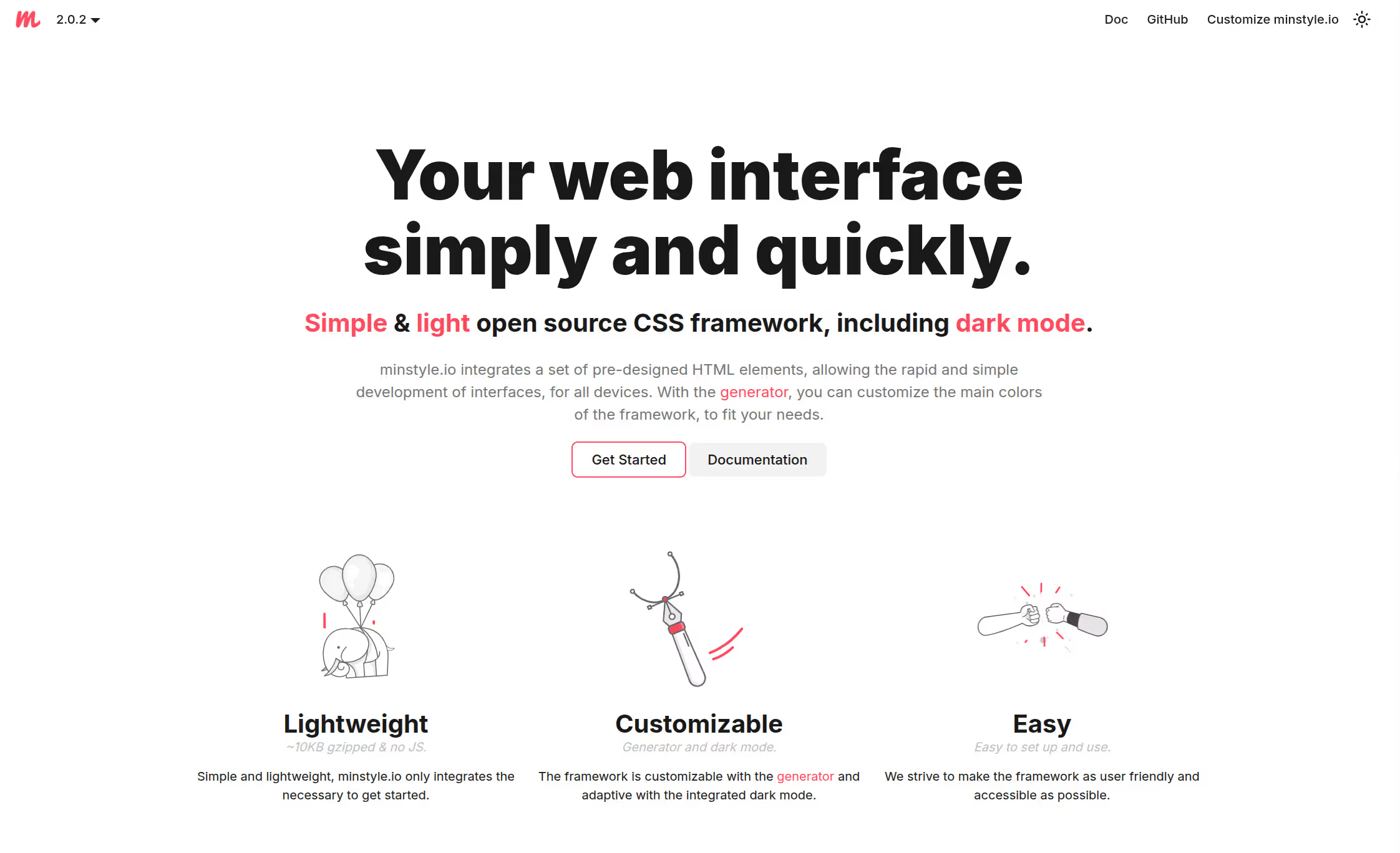Industry Standards
Tailwind
Rapidly build modern websites without ever leaving your HTML
Tailwind is a highly popular first CSS framework that allows for great flexibility without needing to write a lot of custom CSS. It integrates well with modern applications using React, Vue, and Svelte, making it suitable for quick prototyping and design systems.
As a utility-first framework, it provides low-level classes for nearly all CSS properties, instead of ready-made components. Combining these utilities allows for rapid development of custom interfaces. It enables easy customization through configuration files, automatically removes unused styles, has a vast number of plugins and extensions, and is supported by clear documentation and a large community.
Popularity: over 90,600 GitHub stars - Industry-leading utility framework with broad adoption, rapid growth, and massive ecosystem.
Bootstrap
Build fast, responsive sites with Bootstrap
Bootstrap is one of the oldest and most popular classic frameworks, with a comprehensive library of components and JavaScript plugins. It adheres to a mobile-first approach, provides extensive documentation, and offers a vast ecosystem of themes and extensions.
Bootstrap is a reliable and battle-tested choice, especially when quickly prototyping with standard components that don't require extensive customization. It is particularly well-suited for landing pages, dashboards, and administrative interfaces, thanks to thousands of pre-built templates available for every use case.
Popularity: over 174,000 GitHub stars - One of the oldest, best-established, and most widely used frameworks with a massive community.
Popular CSS Frameworks
Semantic UI
User Interface is the language of the web
Semantic UI treats words and classes as interchangeable concepts, using human-friendly HTML and intuitive class names following natural language patterns. It provides a comprehensive component library with extensive theming capabilities and integrations with popular frameworks.
Popularity: over 51,200 GitHub stars - Significant adoption and rapid growth, though maintenance concerns exist.
Bulma
The Modern CSS Framework
Bulma is a pure-CSS framework built on Flexbox and is entirely class-based, with no JavaScript dependencies. It features a clean and readable syntax with intuitive class names, along with a comprehensive library of components, including modals, navbars, and cards. Bulma comes with excellent documentation and benefits from an active community of users.
Bulma offers a well-organized set of UI components and responsive layout utilities. Since it does not include bundled JavaScript behavior, Bulma is an excellent choice for projects that need only styling, prefer to implement their own JavaScript, or integrate with other front-end JS frameworks like React or Vue. Bulma fits well in projects preferring semantic class names and a moderate level of abstraction while still wanting to maintain control over designs.
Popularity: over 50,000 GitHub stars - Most popular CSS framework after Tailwind and Bootstrap, with a large and active community.
Foundation
The most advanced responsive front-end framework in the world
Foundation is a professional-grade, highly customizable, and semantically structured responsive frontend framework. It offers robust UI components, grid systems, and JavaScript modules. The framework features Foundation for Sites and Foundation for Emails and includes advanced tools like the XY Grid, Motion UI, and built-in accessibility from the ground up.
While not as trendy as Bootstrap or Tailwind, it is still well-regarded in the industry. It is beneficial when preferring its grid and interaction patterns or when migrating from older Foundation-based sites. It is a robust option for creating responsive, enterprise-grade interfaces with built-in components.
Popularity: over 29,800 GitHub stars - Used by large companies like Adobe, eBay, and Disney.
Element Plus
A Vue 3 based component library for designers and developers
Element Plus is the Vue 3 version of the Element UI component library, offering a complete design system. Although it is primarily a component library rather than a traditional CSS framework, it provides over 70 components featuring a wide range of UI elements like tables, forms, and more complex components. All are styled with a consistent theme and are fully integrated with Vue 3.
This library is popular within the Vue ecosystem and is an excellent choice for building Vue 3 applications when needing ready-to-use UI components with advanced theming and seamless integration.
Popularity: over 26,700 GitHub stars - Standard choice for Vue 3 enterprise applications.
MDB (Material Design for Bootstrap)
Bootstrap 5 UI KIT - 700+ components, plain JavaScript, MIT license, simple installation
MDB is a UI kit that combines Bootstrap's functionality with Google's Material Design, offering a variety of pre-built components and templates. It features a rich library of components and utilities, and integrates with React, Vue, and Angular, as well as jQuery and vanilla JavaScript.
With a customizable grid system and extensive SASS customization, it's a great fit for developers seeking a blend of Bootstrap's structure and Material Design's aesthetics, making it perfect for dashboards, e-commerce, and enterprise applications.
Popularity: over 24,300 GitHub stars - One of the leading Material Design frameworks with a large community and detailed documentation.
Pure
A set of small, responsive CSS modules that you can use in every web project
Pure by Yahoo is a set of small, responsive CSS styles providing minimal styling for common UI elements. It's modular (you can include only what you need), extremely lightweight, and designed to work on every device and browser.
Popularity: over 23,700 GitHub stars - Well-established, maintained by Yahoo.
UIkit
Lightweight and modular front-end framework for developing fast and powerful web interfaces
UIkit is a lightweight and modular front-end framework for creating fast and powerful web interfaces. It serves as an excellent balance between a full-featured component library and a utility library, making it ideal for small to medium-sized projects that require modular components with flexibility.
UIkit offers a comprehensive collection of HTML, CSS, and JavaScript components, grid systems, layout utilities, and themeable styling to enhance the development experience. It is mobile-friendly and can be customized using LESS or Sass.
Popularity: over 18,500 GitHub stars - Solid community and regularly updated.
UnoCSS
Instant on-demand atomic CSS engine
UnoCSS is unlike traditional frameworks and has no core utilities - everything is provided via customizable presets. With zero parsing, AST, or scanning, it's incredibly fast (5x faster than Windi CSS or Tailwind JIT) while remaining tiny at around 6kb minified and brotli compressed with zero dependencies.
What sets UnoCSS apart is its innovative features, including shortcuts for aliasing utilities, attributify mode for grouping utilities in attributes, pure CSS icons from any icon set, variant groups for shorthand syntax, CSS directives with @apply support, and an interactive inspector. It also offers a runtime CDN build, VS Code extension, and CSS-in-JS capabilities, making it one of the most flexible utility-first solutions available.
Popularity: over 18,200 GitHub stars - Becoming the go-to successor to Windi CSS and a strong Tailwind alternative.
Tachyons
Built for designing
Tachyons is a functional CSS framework providing composable utilities for building interfaces directly in HTML. Each class represents a single style property, enabling rapid development by composing classes rather than writing custom CSS.
Popularity: over 11,700 GitHub stars - Influential in the utility-first movement, but overshadowed by Tailwind and not updated since 2024.
Less Popular Frameworks
Metro UI
Build fast, responsive sites with Metro UI
Metro UI is a sleek, intuitive front-end framework for creating high-performance responsive web applications inspired by Microsoft's Metro design language. As the modernized successor to MetroUI, it's the first component library built in Metro Style and continues to be actively maintained with frequent releases (typically weekly on Sundays). The framework offers a comprehensive set of components for building mobile-first projects with a distinctive flat, tile-based aesthetic.
Unlike its predecessor, Metro 4 is licensed under MIT, with an optional annual subscription support pack available for priority email support. The project maintains versions dating back to Metro-UI-CSS-1, with extensive documentation and demos available for each major version, showing its evolution and long-term commitment to the Metro design philosophy.
Popularity: over 7,100 GitHub stars - A respected niche project that's popular among those who appreciate the Metro/Modern UI aesthetic.
Open Props
Supercharged CSS variables
Open Props is a modern approach that provides CSS custom properties (variables) for design tokens instead of using a traditional framework. It offers supercharged CSS variables for colors, gradients, shadows, animations, and more, enabling customization without writing utilities.
Popularity: over 5,200 GitHub stars - Growing adoption, modern approach.
Halfmoon
Highly customizable, drop-in Bootstrap replacement
Halfmoon is a responsive frontend framework with built-in dark mode, designed specifically for building dashboards and tools. It features components optimized for complex interfaces, including sidebars, navbars, and modals that work seamlessly in both light and dark themes.
Popularity: over 3,100 GitHub stars - Growing community, gaining traction.
Master CSS
A Virtual CSS language with enhanced syntax
Master CSS is an atomic CSS framework that uses visual syntax and design tokens to provide an intuitive developer experience. Built with concepts inspired by SASS and TypeScript's enhanced syntax, plus Virtual CSS inspired by React's Virtual DOM, it aims to create a more powerful and flexible approach to styling. The framework emphasizes performance while maintaining readability through its visual syntax approach.
The project is actively developed with a growing community on Discord and GitHub Discussions, offering documentation in both English and Chinese. It represents a modern take on atomic CSS that prioritizes both developer experience and runtime performance, positioning itself as an alternative to traditional utility-first frameworks.
Popularity: over 1,900 GitHub stars - A newer entrant gaining traction in the atomic CSS space but still building its community.
Atomizer
Create small, reusable CSS that scales as your website grows
Atomizer is an unopinionated, utility-first CSS framework that generates atomic styles from classes defined in the project, similar to Tailwind but with a unique syntax. It uses abbreviated class names (for example, Bgc(#4A2D76) for background color) and supports contextual selectors, pseudo-classes, and custom variables, making it highly flexible for those who prefer configuration-driven styling.
Popularity: 1,600 GitHub stars - Primarily used by Yahoo and designers familiar with atomic CSS methodology, still in active development.
Cirrus UI
Spend more time building and less time worrying about CSS
Cirrus UI is a component and utility-centric SCSS framework designed for rapid prototyping and development. It combines utility classes with pre-built components, supports dark mode, and emphasizes modern design patterns with extensive customization options through SCSS variables.
Popularity: over 1,400 GitHub stars - Growing and active, but still a relatively small community.
Light, Mini & Micro CSS Frameworks
Pico CSS
Minimal CSS framework for semantic HTML
Pico CSS is a minimal, semantic CSS framework for rapid prototyping that styles HTML directly with elegant defaults. It's class-light (using fewer than 10 classes), mobile-first, and includes both light and dark modes that automatically adapt to user preferences.
Popularity: over 15,900 GitHub stars - Rapidly growing and gaining significant traction.
MVP.css
A minimalist stylesheet for HTML elements
MVP.css is a minimalist classless CSS stylesheet that provides out-of-the-box styling for semantic HTML elements without requiring any custom class names or framework knowledge. Link the stylesheet, and your plain HTML immediately gets clean, modern styling with good typography, form elements, and responsive layout - perfect for quick prototypes, simple blogs, or documentation sites.
The philosophy behind MVP.css is radical simplicity: no classes to remember, no framework to learn - write semantic HTML and get beautiful results. It's ideal for developers who want their content to look professional without investing time in design or for projects where semantic HTML and accessibility are priorities.
Popularity: over 5,100 GitHub stars - Well-loved in the minimalist community, often recommended for rapid prototyping and simple sites.
Simple.css
A CSS framework that makes semantic HTML look good
Simple.css is a classless CSS framework that makes semantic HTML look good without requiring any classes. It provides beautiful defaults for standard HTML elements with automatic dark mode support and excellent readability focus.
Popularity: over 4,800 GitHub stars - Growing popularity among minimalist developers and actively developed.
Sakura
A minimal, classless CSS framework and theme
Sakura is a minimal, classless CSS framework that transforms ugly 1900s-style HTML into a pretty, modern website in literally zero seconds. Just drop sakura.css into any webpage, and semantic HTML automatically gets beautiful typography, proper spacing, and a cohesive color scheme - no classes, no configuration needed.
The framework supports extremely easy theming using CSS variables for duotone color schemes, ships with several built-in themes, and includes dark mode support via media queries. It's perfect for quick prototyping, backend developers who don't want to fiddle with CSS, markdown-generated sites, and anyone who wants reasonable defaults without learning a framework. It can even be added to existing 90s-era websites via a bookmarklet.
Popularity: over 4,300 GitHub stars - One of the more popular classless frameworks, used for blogs, documentation, and simple sites.
Picnic CSS
Lightweight and beautiful library
Picnic CSS is a lightweight, small (under 10KB) yet beautiful framework, providing essential components with clean, modern styling. It focuses on semantic HTML with minimal classes needed, offering a good balance between functionality and simplicity.
Popularity: over 3,900 GitHub stars - Relatively small community, limited recent updates.
Lit
A ridiculously small responsive CSS framework
Lit is an ultra-lightweight (395 bytes) CSS framework that provides minimal styling for fundamental HTML elements, plus a utility module for extension. It focuses on simplicity with a responsive grid, clean typography, and essential components, deliberately avoiding opinionated styling to give developers maximum flexibility.
Popularity: over 2,000 GitHub stars - Small community, limited recent updates.
Tacit
CSS framework for dummies
Tacit is a classless CSS framework that styles semantic HTML5 elements without requiring classes. It provides sensible defaults, making HTML beautiful automatically while remaining extremely lightweight and respecting semantic HTML principles.
Popularity: over 1,800 GitHub stars - Simple and easy-to-use framework, actively developed.
Chota
A micro (~3kb) CSS framework
Chota is a micro CSS framework that packs a 12-column grid system, a handful of components and utilities, reasonable semantic markup, and easy customization through CSS variables - all despite its tiny size. With no preprocessor required, it's truly plug-and-play and supports icons from Icongram.
The framework emphasizes minimalism and ease of use, making it perfect for developers who want a lightweight structure without sacrificing essential features. It supports all modern browsers and provides just enough functionality for small to medium projects without bloat. A SASS fork is also available for those who prefer preprocessor workflows.
Popularity: over 1,500 GitHub stars - Strong appreciation for minimalism and functionality in the lightweight framework space.
Vanilla Framework
A simple, extensible CSS framework
Vanilla Framework is Canonical's (Ubuntu) extensible, lightweight, responsive CSS system built with Sass. Designed for consistency across community websites and web applications in the Ubuntu/Canonical ecosystem, it uses a modular approach that allows you to import specific components or the entire framework based on your needs.
Canonical actively maintains the framework with ongoing community support via Matrix chat and the Ubuntu Blog. It can be used directly via CDN or integrated into projects using Sass, making it flexible for both quick prototyping and complex applications. The LGPL v3 license allows for broad usage while ensuring contributions remain open.
Popularity: over 900 GitHub stars - A specialized framework primarily used within by Canonical/Ubuntu but available for general use.
Siimple
A minimal and themeable CSS toolkit
Siimple is a minimal, flat CSS framework with a focus on simplicity and ease of use. It provides essential components with modern, clean styling and a straightforward API for building responsive interfaces.
Popularity: less than 700 GitHub stars - Limited adoption and small community.
Spruce CSS
A minimalistic, low-level CSS framework
Spruce CSS is a modern, minimal CSS framework/design system built on Sass for developing scalable, maintainable styles. It provides a foundation of tokens, utilities, and base styles using modern CSS features with excellent documentation.
Popularity: less than 300 GitHub stars - Relatively new framework with a growing community.
Luxa CSS
The minimalist CSS library
Luxa CSS is a minimalist, elegant CSS framework with a focus on typography and spacing. It provides clean, modern styles with excellent readability and a sophisticated aesthetic that prioritizes content over decoration.
Popularity: over 200 GitHub stars - Minimal adoption at the time of writing.
Specialty & Novelty CSS Frameworks
NES.css
An NES-style (8bit-like) CSS framework
NES.css is an NES-style (8-bit) CSS framework recreating the aesthetic of classic Nintendo Entertainment System games. It provides pixelated components with nostalgic 8-bit styling, including pixel fonts, chunky borders, and retro color palettes.
Popularity: over 21,500 GitHub stars - Popular for nostalgic/creative projects, viral appeal, though development stopped in 2021. There is also an updated, but unrelated React package.
98.css, XP.css & 7.css
98.css and its siblings XP.css and 7.css are design systems for building faithful recreations of Windows 98/XP/7 interfaces using semantic HTML and pure CSS. They provide pixel-perfect components like windows, buttons, checkboxes, and status bars that recreate the nostalgic Windows aesthetic without JavaScript.
Popularity: over 10,600 GitHub stars for 98.css, over 2,700 GitHub stars for XP.css and over 2,200 GitHub stars for 7.css - Strong niche community, viral on social media, with active ongoing development.
Gutenberg
Gutenberg is a typography-focused utility framework designed for long-form reading and print-like layouts. It provides sane typographic defaults, proper baseline grids, and print-optimized styles, treating web content with the approach of traditional book design.
Popularity: over 4,900 stars on GitHub - Moderate adoption among publishers and bloggers, though not updated since 2023.
PaperCSS
The less formal CSS framework
PaperCSS is a whimsical, hand-drawn CSS framework that makes websites look like they're crafted from paper with informal, sketchy borders and playful aesthetics. It provides unique components styled to look handmade and organic rather than digital.
Popularity: over 4,100 GitHub stars - Niche adoption for creative projects.
system.css
A design system for building retro Mac-inspired interfaces
system.css recreates retro Apple's System OS aesthetics with semantic HTML and pure CSS. It provides nostalgic UI components styled like vintage operating system interfaces from the 1980s and 90s (similar to 98.css/XP.css), complete with window chrome, buttons, and controls.
Popularity: over 2,700 GitHub stars - Popular niche novelty framework.
TuiCSS
Text-based user interface CSS library
TuiCSS is a framework for creating terminal/text-based user interfaces based on the ASCII table, like the old MS-DOS applications. It provides components styled like classic command-line interfaces. It recreates the aesthetic of Turbo Vision text user interfaces reminiscent of DOS and early Unix systems.
Popularity: over 1,800 GitHub stars - Highly niche, novelty framework, not updated since 2023.
Terminal CSS
A modern and minimal CSS framework for terminal lovers
Terminal CSS provides styling to make websites look like terminal/command-line interfaces, recreating the aesthetics of vintage computer terminals with monospace fonts, phosphor glow effects, and retro color schemes.
Popularity: over 1,300 GitHub stars - Niche framework for terminal aesthetic enthusiasts.
PSone.css
PlayStation 1 style CSS Framework, inspired by NES.css
PSone is a nostalgic CSS framework that recreates the PlayStation 1 user interface aesthetic, featuring its distinctive polygon-based 3D look, memory card styling, and iconic PS1 design elements. It brings 90s gaming console nostalgia to web interfaces.
Popularity: with less than 500 GitHub stars - Novelty framework, very niche, and not updated since 2020.
NeoBrutalismCSS
Design framework that embraces the aesthetics of neo-brutalism in web
NeoBrutalismCSS is a modern framework that implements the NeoBrutalist design trend, characterized by bold borders, stark contrasts, and intentionally raw aesthetics. It provides components styled with thick black borders, bright colors, and deliberate roughness, rejecting minimalist smoothness.
Popularity: less than 200 GitHub stars - Emerging trend with very limited adoption.
TERMINAL.css
A simple, classless set of semantic styles derived from the Terminal theme that you always wanted
TERMINAL.css is a simple, classless set of semantic styles derived from the Hugo Terminal Theme. Created because not everyone wanted to switch to Hugo to use the Terminal theme's aesthetic, it provides retro terminal/command-line styling for standard HTML elements. The framework comes with a collection of color presets and is designed to be easily customizable.
The project encourages community contributions of new color schemes through pull requests, making it easy to customize the terminal aesthetic to match different preferences. It's perfect for developer portfolios, technical blogs, or projects that want a nostalgic command-line interface look.
Popularity: less than 100 GitHub stars - A small niche project appealing primarily to developers who appreciate retro terminal aesthetics.
Cyberpunk CSS
A CSS library which provides Cyberpunk 2077 themed elements for your webpage
Cyberpunk CSS is a pure CSS library providing Cyberpunk 2077-themed elements for webpages. It delivers a futuristic, glowing aesthetic with neon colors, glitch effects, and the distinctive visual style of the cyberpunk genre. This is a highly specialized, thematic framework designed for projects that want an eye-catching, unconventional look rather than traditional web design.
It may be a perfect fit for creative projects, portfolios, game-related websites, or any project where a bold cyberpunk aesthetic fits the content. The framework is open to community contributions for missing features and components.
Popularity: less than 100 GitHub stars - A niche, experimental project appealing to a specific aesthetic.
Printed
A print friendly CSS library
Printed is a CSS framework and collection of styles designed explicitly for creating print-friendly layouts and print stylesheets. It addresses the unique challenges of web-to-print conversion, including page breaks, typography, and layout considerations.
Popularity: less than 50 GitHub stars - Highly specialized use case.
Reset & Base Libraries
Normalize.css
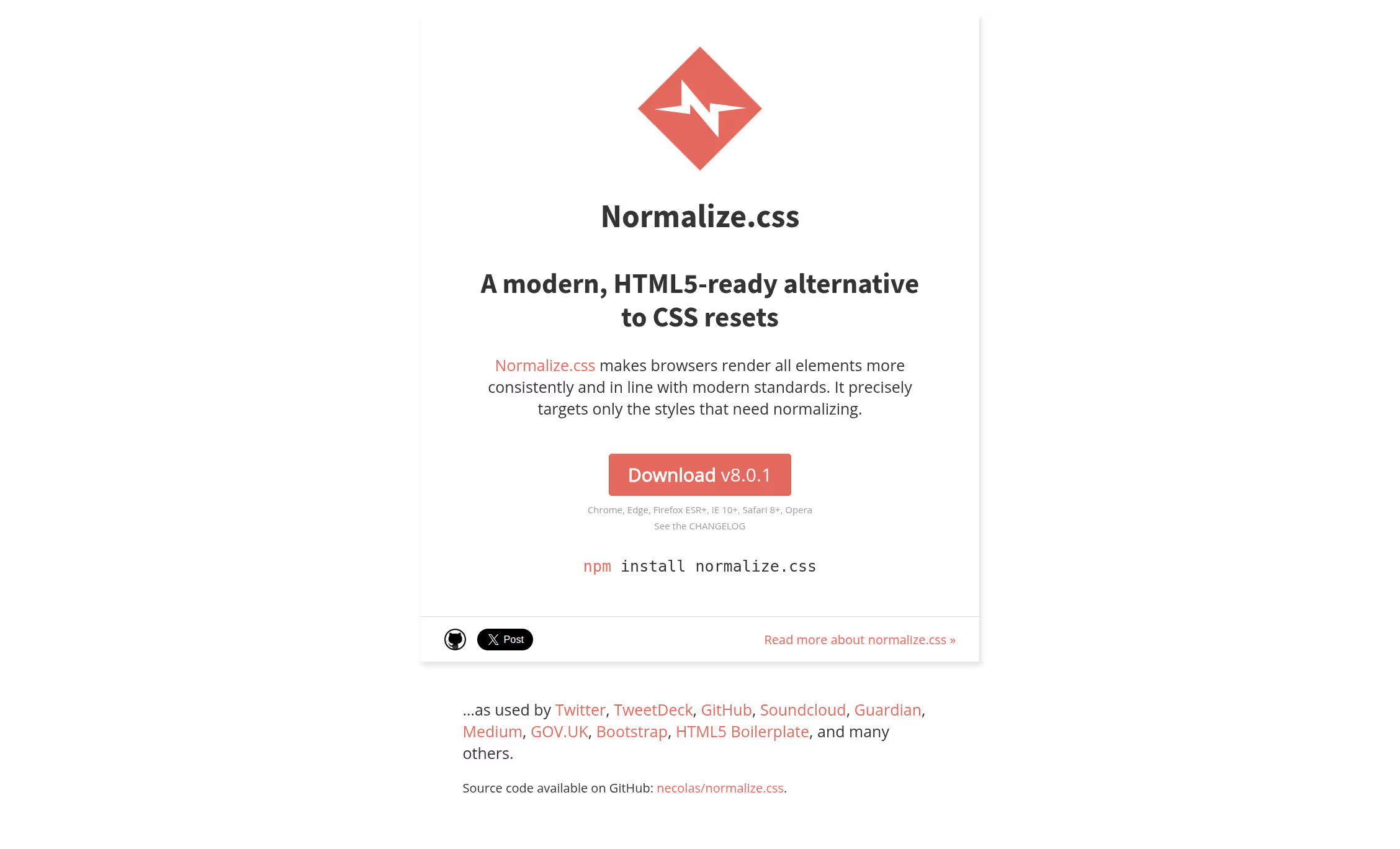
A modern, HTML5-ready alternative to CSS resets
Normalize.css is a CSS resetting tool for normalizing cross-browser defaults. While not a framework, it helps render elements across different browsers and maintain useful defaults. As a foundational layer within other frameworks, it is widely adopted in numerous web projects, offering a battle-tested baseline before applying additional styling or components on top.
While highly influential and widespread in the early days of web design, when inconsistencies in browser styling were typical, it has become less relevant with improved and more consistent CSS support across all major browsers.
Popularity: over 53,600 GitHub stars - Still used in millions of projects as an integral ingredient within other frameworks.
modern-normalize
Normalize browsers' default style
modern-normalize is a streamlined alternative to normalize.css that focuses exclusively on the latest versions of Chrome, Firefox, and Safari. It takes a pragmatic approach by dropping support for older browsers, resulting in a smaller file size and more modern defaults. Key improvements include sizing, font consistency, and readability.
The project's stated goal is to eventually make itself obsolete as browsers continue to improve their consistency. It's thoroughly tested, actively maintained, and provides a focused solution for modern web development where legacy browser support isn't a concern. This makes it ideal for projects targeting evergreen browsers or applications where you control the browser environment.
Popularity: over 7,000 GitHub stars - Popular in modern development, especially among developers building for contemporary browsers.
sanitize.css
A best-practices CSS foundation
sanitize.css is a best-practices CSS foundation that provides consistent, cross-browser styling alongside opinionated defaults. Developed by the same team behind [normalize.css](#normalizecss], it includes all normalizations while going further with thoughtful defaults, system fonts, and improved accessibility features. Every decision is clearly documented, making it transparent which styles are normalizations versus opinionated choices.
What sets it apart is its modular approach, featuring separate stylesheets for forms, typography, assets, reduced-motion support, and more. It also uses zero-specificity selectors, making it easier to override styles. The library corrects browser bugs, provides sensible defaults like resizable text areas and touch manipulation improvements, and includes extensive accessibility enhancements for ARIA attributes.
Popularity: over 5,300 GitHub stars - Well-respected in the developer community, particularly popular among developers who want normalize.css benefits plus sensible modern defaults.
minireset.css
A tiny modern CSS reset
minireset.css is a tiny modern CSS reset created by Jeremy Thomas (creator of Bulma CSS framework). It takes a minimalist approach by only resetting the essentials: font sizes to preserve semantic markup, block margins for better spacing control, tables for cleaner tabular data, and setting border-box sizing. Unlike more comprehensive solutions, it deliberately preserves inline paddings and sets responsive media elements without imposing opinionated styles.
At less than 1KB minified, it's one of the smallest reset options available and is particularly well-suited for projects where you want a clean slate without the overhead of a full-fledged normalization library. It's available in multiple formats, including CSS, minified CSS, SASS, and even as a LitElement CSSResult for Web Components.
Popularity: over 2,800 GitHub stars - A respected option in the CSS reset space, though less widespread than normalize.css or sanitize.css.
Marx
The classless CSS reset
Marx is a classless CSS reset styled atop Sanitize.css, ensuring consistent browser rendering with beautiful typography, forms, tables, buttons, and navigation out of the box. It requires no JavaScript, no classes - just raw CSS that makes your semantic HTML look gorgeous immediately.
Built for small projects where heavy frameworks are overkill, Marx is responsive, mobile-friendly, and "just works" with existing HTML. It can be used as-is from the minified CDN or customized through HTML classes if needed. The framework provides several quick-start options, including NPM, CDN, and direct downloads.
Popularity: over 1,700 GitHub stars - A solid classless option, appreciated for its clean styling and zero-configuration approach.
Gardevoir
The modern CSS reset
Gardevoir combines the benefits of normalize.css with additional elemental styles and browser fixes. At approximately 0.8KB, it provides comprehensive browser normalization while remaining lightweight. The project includes fixes for a wide range of issues and allows customization of browser support, making it production-ready out of the box.
The library is designed to bridge the gap between traditional resets and more opinionated solutions, offering normalizations alongside basic elemental styles. It's focused on easy integration and optimal loading performance for static websites.
Popularity: over 1,200 GitHub stars - A newer CSS reset entrant, gaining traction, but not yet as established as the more mature alternatives.
Honorable Mention: HTML5 Boilerplate
The web's most popular front-end template
HTML5 Boilerplate is a professional front-end template for building fast, robust, and adaptable web apps or sites. Unlike pure CSS resets, it's a comprehensive starting template that includes a carefully crafted index.html, main.css (with normalize.css, helper classes, media queries, and print styles), server configuration examples, and extensive documentation. The project represents over 10 years of iterative development and contributions from hundreds of developers.
What makes it unique is its "delete-key friendly" philosophy - it doesn't impose a specific framework or development philosophy, allowing you to strip out what you don't need while providing battle-tested defaults for what you keep. It includes progressive enhancement practices, performance optimizations, accessibility features, Open Graph meta tags, and even server configurations for multiple platforms. The template is designed with modern web standards in mind while remaining practical and production-ready out of the box.
Popularity: over 57,200 stars - Widely recognized as an early standard for starter templates and still used by countless developers.
Legacy Frameworks
Materialize
A modern responsive front-end framework based on Material Design
Materialize is a CSS framework that implements Google's Material Design guidelines through CSS and JavaScript components, like buttons and cards. It is ideal for achieving the Material Design aesthetic without having to build it from scratch.
This framework is designed for mobile-first, cross-platform applications and offers a wide range of comprehensive components and established patterns. Materialize supports both Bootstrap integration and standalone usage, making it versatile for different UI approaches.
Popularity: over 39,100 GitHub stars - Wide use among early adopters of Material Design, but has not been updated since 2020.
Material Design Lite
Add a Material Design look and feel to your websites
Material Design Lite is Google's implementation of Material Design components in vanilla CSS, JavaScript, and HTML. Built without dependencies on JavaScript frameworks or libraries, it provides an accessible, cross-device Material Design experience that gracefully degrades in older browsers. The framework was optimized for static content websites and offers a comprehensive set of components styled according to Google's Material Design specifications.
MDL is now in limited support mode, with development having moved to Material Components for the Web (MCW). The core team no longer actively develops new features, though they continue to fix critical bugs. This makes it a stable but legacy choice for projects that need Material Design without the complexity of modern frameworks.
Popularity: over 32,200 GitHub stars - Still widely recognized, though considered legacy software with no updates since 2017.
Skeleton
A dead simple, responsive boilerplate
Skeleton is a minimal, responsive boilerplate with only ~400 lines of CSS. It provides a minimal grid system and basic styling for HTML documents, explicitly designed for small projects that don't need the overhead of larger frameworks.
Popularity: over 19,700 GitHub stars - Well-respected and widely adopted a decade ago, but it has not been updated since 2014.
Spectre.css
A lightweight, responsive and modern CSS framework
Spectre.css is a lightweight, responsive, modern CSS framework that provides an extensive component library and a Flexbox-based grid. It's designed as a foundation for modern web projects with clean code and vast customization options through SCSS.
Popularity: over 11,300 GitHub stars - Widely used in the past, but no updates since 2020.
Milligram
A minimalist CSS framework
Milligram is a CSS framework providing a minimal, clean starting point with only ~2KB gzipped. It uses Flexbox, provides basic components with elegant defaults, and focuses on performance with minimal CSS reset overhead.
Popularity: over 10,200 GitHub stars - Popular among developers wanting minimal frameworks, but has not been updated since 2020.
Water.css
A drop-in collection of CSS styles to make simple websites a little bit nicer
Water.css is a drop-in collection of CSS styles making simple websites beautiful without classes. It's designed to make semantic HTML look good with zero configuration, including automatic dark mode support and excellent typography defaults.
Popularity: over 8,500 GitHub stars - Popular for its simplicity, though development has stopped in 2021.
Windi CSS
Next generation utility-first CSS framework
Windi CSS is a next-generation utility-first CSS framework designed as a faster, more flexible alternative to Tailwind. By scanning HTML and CSS to generate utilities on demand rather than processing everything up front, it provides significantly quicker load times and instant hot module replacement during development without requiring purging in production. The framework is fully compatible with Tailwind but offers additional features like variant groups, attributify mode, and pure CSS icons.
The project is now officially sunsetting, with the development team recommending that new projects seek alternatives like UnoCSS. While it represents a milestone of innovation in utility-first CSS with its on-demand generation approach, active development has ceased, and migration to maintained alternatives is advised for new projects.
Popularity: over 6,500 GitHub stars - Popular during its active period, but now sunset with no future updates planned.
Basscss
Low-Level CSS toolkit
Basscss is a low-level, functional CSS toolkit with immutable utilities and reusable components. It follows atomic design principles with single-purpose class names that can be composed together, providing a foundation for building responsive interfaces without writing custom CSS.
Popularity: over 5,900 GitHub stars - Well-regarded, but superseded by Tailwind, and has not been updated since 2020.
MUI CSS
A lightweight CSS framework that follows Google's Material Design guidelines
MUI CSS (not to be confused with Material UI) is a lightweight framework that follows Google's Material Design guidelines with minimal JavaScript. It provides essential Material Design components optimized for performance and ease of use.
Popularity: over 4,500 GitHub stars - Often confused with Material-UI, limited standalone adoption, no updates since 2020.
new.css
Write modern websites using only HTML
new.css is a classless CSS framework designed for writing modern websites using only HTML. At just 4.8kb, it sets sensible defaults and styles semantic HTML to look reasonable without any configuration. It's perfect for dead-simple blogs, link collections, "about me" sites, and rendering markdown-generated HTML with minimal fuss.
The framework pairs well with the Inter font (recommended but optional) and supports easy theming using CSS variables for duotone color schemes. However, development has been inactive since 2021, which means no updates for modern CSS features or bug fixes, making it a stable but frozen option.
Popularity: over 4,000 GitHub stars - Has not been updated since 2021, limiting relevance to ongoing projects.
mini.css
A minimal, responsive, style-agnostic CSS framework
mini.css is a lightweight, responsive framework built with modern CSS features, providing a comprehensive component library optimized for file size. It includes flavors (themes) and utilizes CSS variables for easy customization while maintaining a small bundle size.
Popularity: over 3,000 GitHub stars - Small community, has not been updated since 2019 and the repository was archived in 2022.
Wing
A beautiful CSS framework designed for minimalists
Wing is a minimal, responsive CSS framework designed to simplify development by providing sensible defaults for HTML elements. It's classless, meaning it styles semantic HTML directly without requiring utility classes or specific markup patterns.
Popularity: over 2,000 GitHub stars - Small community, has not been updated since 2019.
Blaze UI
Framework-free open source UI toolkit
Blaze is a modular, framework-free UI toolkit providing scaffolding for building websites with a mobile-first approach. It offers a comprehensive component library including buttons, cards, navs, and modals, with customizable themes and a focus on performance and accessibility.
Popularity: over 1,600 GitHub stars - Limited adoption, small community, and no updates since 2023.
PrimeFlex
Perfect CSS utility companion
PrimeFlex is a lightweight responsive CSS utility library designed to accompany Prime UI libraries (like PrimeReact, PrimeVue, PrimeNG) as well as static webpages. It provides a straightforward set of utility classes for common layout and styling needs without the complexity or file size of larger frameworks, making it particularly suitable for projects already using the PrimeTek ecosystem.
The framework offers essential utilities for Flexbox layouts, spacing, typography, and responsive design. However, the last update was in 2023, which is a concern for projects requiring ongoing maintenance and modern CSS features.
Popularity: Low over 650 GitHub stars - A niche utility library primarily for the PrimeTek ecosystem but not actively developed since 2023.
Bahunya
A classless CSS framework with a navbar and dark styling for under 11kB
Bahunya is a 10KB classless CSS framework that provides attractive styling for semantic HTML elements, including a functional navbar and dark mode support. Created with the philosophy that most common UI elements can be described using semantic HTML rather than divs with classes, it aims to improve both accessibility for screen readers and code readability for developers.
The framework supports both simple link-based navigation and nested list structures in the navbar, all without requiring any CSS classes. It was bootstrapped from Water.css and inspired by Tacit, representing a practical middle ground between completely unstyled HTML and class-heavy frameworks. However, it has not been updated since 2023.
Popularity: over 300 GitHub stars - A smaller project appreciated by those who need classless CSS with navbar support, but not widely adopted, and has not been updated since 2023.
mono/color
Very small, responsive, dual-themed CSS-only framework
mono/color is a minimalist, monochromatic CSS framework that emphasizes simplicity through a single-color design approach. It provides basic styling with a focus on typography and spacing, using various shades of a single hue to create visual hierarchy without the complexity of multi-color systems.
Popularity: less than 100 GitHub stars - Extremely niche with low activity and no updates since 2020.
minstyle.io
Your web interface simply and quickly
minstyle.io is a minimal CSS framework focusing on providing utility classes for rapid development while maintaining a small file size. It provides essential utilities for layout, typography, and styling without prescriptive component design.
Popularity: less than 100 GitHub stars - Minimal adoption and not updated since 2023.

